This week in the Writing Inspirations series I’m excited to welcome Rural Romance writer, Cathryn Hein to the blog.
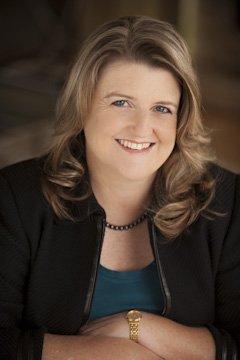
Cathryn is well known to readers of the genre and her latest novel, The Falls, is flying off the shelves.
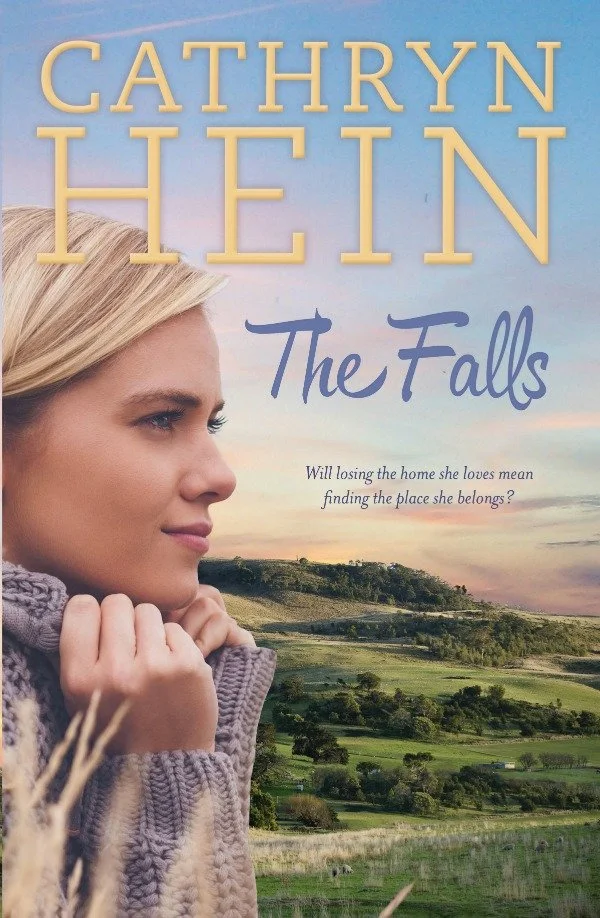
THE FALLS
by Cathryn Hein
Will losing the home she loves mean finding the place she belongs?
For as long as she can remember, Teagan Bliss has wanted to manage her family’s property. She’s invested everything in the farm, knowing that when her parents retire she’ll be ready to take the reins. But when a family betrayal leaves her reeling, Teagan is forced to rethink her entire future.
Heartbroken, Teagan flees to her aunt’s property in the idyllic Falls Valley. Vanessa is warm and welcoming and a favourite of the locals who drop in regularly for cocktail hour. Teagan soon catches the attention of sexy local farrier Lucas Knight, and with a new job, new friends and the prospect of a new relationship, she slowly begins to open up again.
But the village is a hotbed of gossip and division and when Teagan gets caught up in town politics, Lucas and Vanessa become concerned. As the tension in town escalates, Teagan must decide who to trust. But when she realises those close to her have been keeping secrets, the fallout may split Teagan apart forever.
The Falls is an uplifting story of healing and hope from the author of Promises, Heart of the Valley, Heartland, and Rocking Horse Hill.

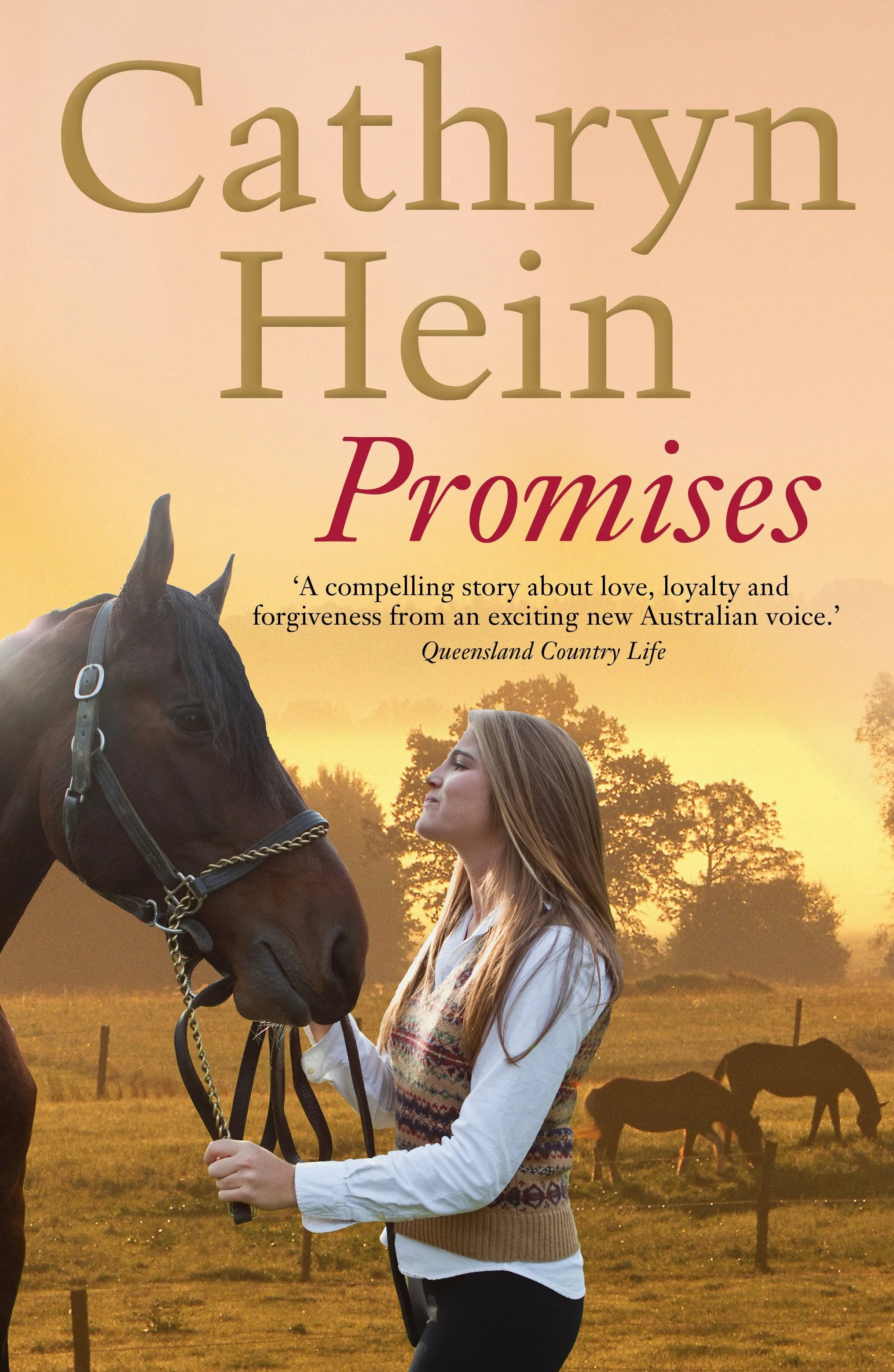
***
- What – or who – first inspired you to write?
I’ve always written – short stories and awful poetry at school, followed by umpteen attempts at full length fiction in my 20s that never made it past the 10,000 word mark. I still have a short story I wrote as a teenager titled A Day In The Life of a Feminist Cockroach. Bonkers is a barely adequate description for that story but I did earn a B+ for it, so perhaps it’s all my English teacher’s fault.But I think the real inspiration came from reading. Growing up I was an avid bookworm and – other than being around horses – there was nothing better I loved than curling up with a juicy story. I’m also lucky to have been blessed with a pretty active imagination. I’m a fantastic daydreamer. Writing was a way to capture those daydreams and make them real.
- Is there a place and time of day when you feel most inspired?
I am absolutely a morning person when it comes to writing. That’s definitely the time when I produce my best work. But I also find that walking and showering are brilliant for snapping those synapses. I can be completely stumped by something but a walk or a shower will have it solved in no time.As far as place goes, I prefer the quiet of my office, with all my props close at hand. I feel a bit lost without my whiteboards and stickynotes, but not as lost as when I don’t have my “book bible”. My book bibles are basically scrapbooks filled with scribbles about characters and settings and anything else that captures my attention. Think newspaper clippings, photographs, house plans, brochures, descriptions, plot ideas, timelines, property and town names, handwritten scenes, corrections to be made in edits. Anything and everything that helps build the book. I also keep a folder for research material that’s too thick to paste into the scrapbook. I protect those two things fiercely. They’re as much a part of the book as the manuscript.
- When you’re feeling uninspired what sort of creative activities help you get your writing mojo back?
As mentioned above, showering and walking helps a lot. But I also believe reading is a wonderful way to reclaim your mojo. Certainly it works for me. Reading a favourite author, one whose writing, storytelling and voice I admire is hugely inspiring. They make me want to be better.If it’s more story/plot ideas or character inspiration I’m after, then I find watching documentaries helpful. Real life and history is mine of stories, often more incredible than the stuff that goes on in my head, which is saying something!
- Can you tell us about one of your characters (current or past) who has been inspired by a real person or a situation in one of your stories that was inspired by a real life event?
There are many. And I mean MANY. I think every book I’ve ever written, published and unpublished, has had at least something in it that came from a real life event. In my debut Promises, for example, there’s a scene where Sophie, on her first day working in the hero Aaron’s yard, has one of the racehorses bolt on her. That happened to me on my first day at a racing stable and Sophie’s solution is exactly what my dad, a former jockey, told me to do should that ever happen. My current rural romance release, The Falls, features a crazy ram that is based on one my parents once kept. The list of real-life inspirations is huge.
- What was the inspiration for your current book?
In January of 2013 we relocated from Melbourne to the foot of the Blue Mountains. At the time I’d already begun writing Rocking Horse Hill and it was always my aim to give each of the female friends in the book their own story. Emily’s story was told in Rocking Horse Hill, with Teagan’s in The Falls, and Jasmine’s in what will one day be Admella Beach.When, in Rocking Horse Hill, Teagan needed a place to escape the area we’d moved to provided the perfect inspiration. The Falls Valley and village isn’t actually real, it’s a heavily fictionalised version of the area, but it has a similar landscape. The land is dotted with hobby farms and horse properties, which meant plenty of opportunities for Teagan to find employment and take the time to recover from the shock of losing her life’s dream.I also thought it was a great place for a hero like Lucas Knight to have settled. He’s a city boy who’s built a successful career as a rural farrier. The Falls and surrounding areas are the sort of places that would not only provide plenty of work, but be a gorgeous location for a hero to live.So parts of the story owe lot to the landscape and demographics of the area. Ever-sprawling Sydney is creeping further and further west, driving agriculture and rural life with it. Not everyone appreciates that, and that’s cause for some of the villagers’ dissention in The Falls.I also wanted an excuse to write a ram character like Merlin, who, as I’ve mentioned, was directly based on a ram my parents kept. That animal caused so much trouble but, like Teagan’s Aunt Vanessa with Merlin, we were all weirdly fond of him.*Connect with Cathryn:WebsiteTwitter @CathrynHeinFacebookPinterestGoodreadsBuy Links:BooktopiaBookworldAngus & RobertsonAmazonKoboGoogle PlayiBooks
***
05/05/2015My Novel Soundtrack, Week One, Florence and The MachineBeing a music lover I often find a link between my writing and certain songs, often in the mood the music creates but more frequently in the way the lyrics connect to the themes of the novel I’m working on at the time.For Close To Home I decided to formalize this process a little and created a soundtrack of songs which sum up the ideas of the novel as a whole and of each chapter in particular.So, with just over six weeks to go until release day, and with a total of sixteen chapters in the book, I’ll be revealing my soundtrack, one song at a time over the coming months.First up is a song by Florence And The Machine called Shake It Out. Without giving too much away, the main character in the novel, Charlie Anderson is faced with something of a crisis as the story begins. The lyrics of this song hint at Charlie’s dilemma. Copyright laws don't allow me to quote too many lyrics here but I will say that Florence’s advice to ‘shake off’ the ‘devil on your back’ is something that Charlie really needs to take on board.But will she?Here’s the gorgeous film clip for your listening and viewing pleasure (my favourite image is the one of Florence walking along the tree branch towards the end):https://www.youtube.com/watch?v=WbN0nX61rIsTune in next Monday for the track to Chapter 2.Have a great week.x
***
1/05/2015, Writing Inspirations
Today I welcome Kim Cleary to the blog to chat about where she finds the inspiration to write.
Kim writes urban fantasy for anyone who longs to discover they are extraordinary. She writes about hopefulness and determination, and about heroes who push through extraordinary situations and obstacles, one step at a time. Magical friends and gorgeous guys help, or hinder, in one adventure after another.
All sounds pretty good to me!
*
Thank you so much Pamela for having me on your blog. I’ve really enjoyed thinking and talking about what has inspired me to write, and in particular to talk about my inspiration for the series I’m working on now: Daughter of Ravenswood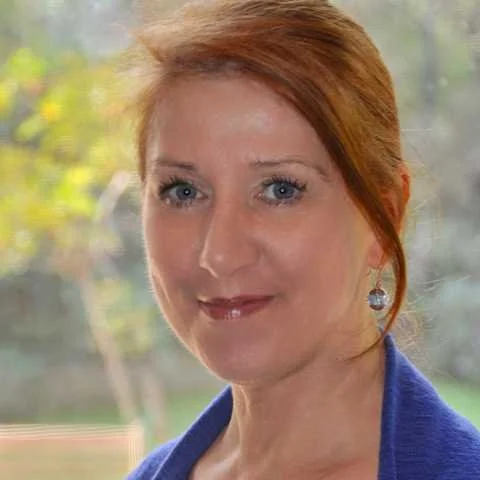
- What – or who – first inspired you to write?
My very first story was inspired by Ratty and Mole, and their adventures in Wind in the Willows. I wrote a short piece of fan-fiction at age seven, my English teacher asked me to read it aloud to the class and I was in heaven!
- Is there a place and time of day when you feel most inspired?
Normally I work best in the morning. But I tend to work for short periods, collapse with fatigue and rest, then try and work a bit more! Like a lot of other writers, I get ideas, snippets of conversation, an emotion or setting, that feels brilliant at 4 AM in the morning. I always go to bed with my iPad so I can record anything that comes to mind–even if a lot of the thoughts don’t look quite as brilliant in the light of day.
- When you’re feeling uninspired what sort of creative activities help you get your writing mojo back?
I like to spend some time away from the computer. I write by hand in one of my journals, do some decoupage; if it’s fine I like to spend some time in my garden. Sometimes just sitting on a different chair in the sun makes all the difference. I’ve danced around the house to my favourite music, brushed my dogs, and even… in extreme circumstances, got some housework done! 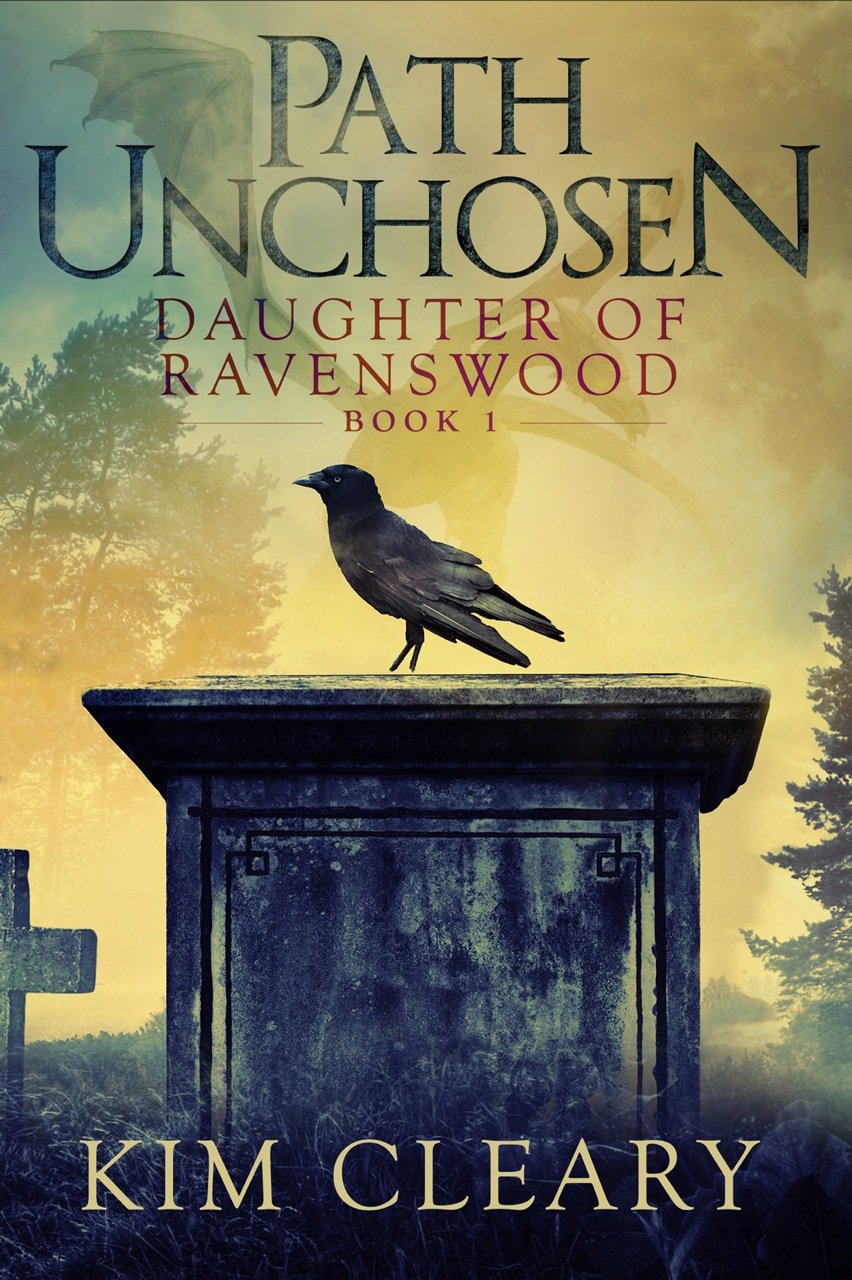
- Can you tell us about one of your characters (current or past) who has been inspired by a real person or a situation in one of your stories that was inspired by a real life event?
My heroine was always going to be a necromancer. I’m not sure I can explain why! Even as a child, I was interested in the culture of death and the dead. I’ve also always been a bit contrary, so perhaps I just wanted to go against the norm. I tried to paint Meagan as a compassionate character from the start of the story, and to show her own conflict with her power over the dead. Meagan accepts that she has a responsibility for the dead. She not only speaks to them, she cares for them as well.Meagan’s father plays a small but critical role in the story, and he’s based on my dad. I lost him to cancer a few years ago, and I still miss him every day. If I could call his spirit and sit with him in his shed while he tinkered with this or that, I would do it in a heartbeat.
- What was the inspiration for your current book?
Four years ago, I started writing a short story when I was diagnosed with MS. It caused severe pain, and eventually permanent damage in my hands, which stopped me from typing. I had to teach myself how to use voice software and a good friend gave me an opening line to get me started on a short story.I’ve always loved fantasy and science fiction and found myself gravitating to it. I shared pieces of the story with my sister and a small number of friends, received positive feedback and encouragement, and I just kept going with it. By the time I was let go from work, I had 35,000 words written and several ideas on how to take it to novel length!The short story morphed and became my debut novel Path Unchosen.Connect with Kim:
***
29/04/2015
Inspirations - Who, What and Where Inspires Me To Write
Now that I've finished my edits on Close to Home I'm excited to be focusing back on my blog and plan to post a few times each week. Fridays are going to be all about Inspirations - the people, places and things that inspire me to write. I'll also be inviting a number of other writers on to the blog to tell us about their inspirations so I hope you'll visit each Friday and I hope you'll be inspired.To kick off this series I've done an interview with myself, so here goes ... 1. What – or who – first inspired you to write?I can't exactly remember what first inspired me to write back when I was a teenager scribbling down poems and writing in diaries. I guess it was about finding an outlet for all that teenage angst. When I travelled extensively in my twenties I wrote journals about the places I visited and the people I met, following this up with a correspondence course in Travel Journalism that I never did anything with. After teaching for about 15 years I decided I wanted to write creatively rather than put red marks on student essays and so I enrolled in a Masters Of Creative Writing and haven't stopped writing since. One of my first inspirations in terms of place was Nepal, which i wrote about in my previous post. The book that first gave me the 'I want to write like this' thought was The Hours, by Michael Cunningham. I loved the way he switched times and characters so seamlessly and weaved the stories of the three women together so beautifully. 
- Is there a place and time of day when you feel most inspired?
I used to get up and write first thing in the morning but these days can't seem to drag myself out of bed. Now the best time for me to write is between about 9am and 2pm. After that the house starts to get noisy again, there's dinner to think about and my brain starts to hurt. Usually I write in my study but when that resembles a war zone (as it does now) I resort to the dining table. My favourite place to write is on the deck of my getaway house at Milton with a gorgeous view to look at in between jotting down words. 
- When you’re feeling uninspired what sort of creative activities help you get your writing mojo back?
Nothing works better for me than a deadline! But we don't always have those. Writing in a beautiful place (see above) can work, meeting with fellow writers (I am blessed to have quite a few in my life) and chatting about books and writing and getting out of the house and walking or doing some yoga usually re-energises me. Listening to music often helps too. And going for a horse ride, of course! 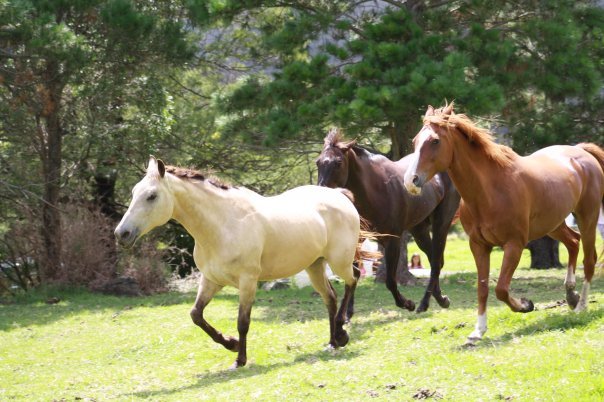
- Can you tell us about one of your characters (current or past) who has been inspired by a real person or a situation in one of your stories that was inspired by a real life event?
To begin with my characters are usually bits and pieces of people I've met but they gradually morph into themselves and I start to think of them as real people by the time I've finished the first draft. My first published book, Blackwattle Lake, was inspired by my involvement with horses and that has continued through to my soon-to-be-released novel Close To Home. The Black Saturday bushfires also had an influence in that first book and in Essie's Way I was inspired to a story of a woman rescuing a shipwreck survivor in the middle of a storm on horseback.
- What was the inspiration for your current book?
The initial inspiration for Close to Home was my conversation with another pony club parent about the Hendra virus. It made me realise what a contentious issue vaccination was and made me wonder what would happen if an outbreak occurred in the area where we live. For those who don't know Hendra is a disease carried by bats and spread to horses and then potentially to humans. It has been responsible for quite a few horse deaths and 4 human deaths in Australia over the last two decades. I've taken a real situation and fictionalised it but the story developed into a much deeper one about family relationships and dealing with the past. 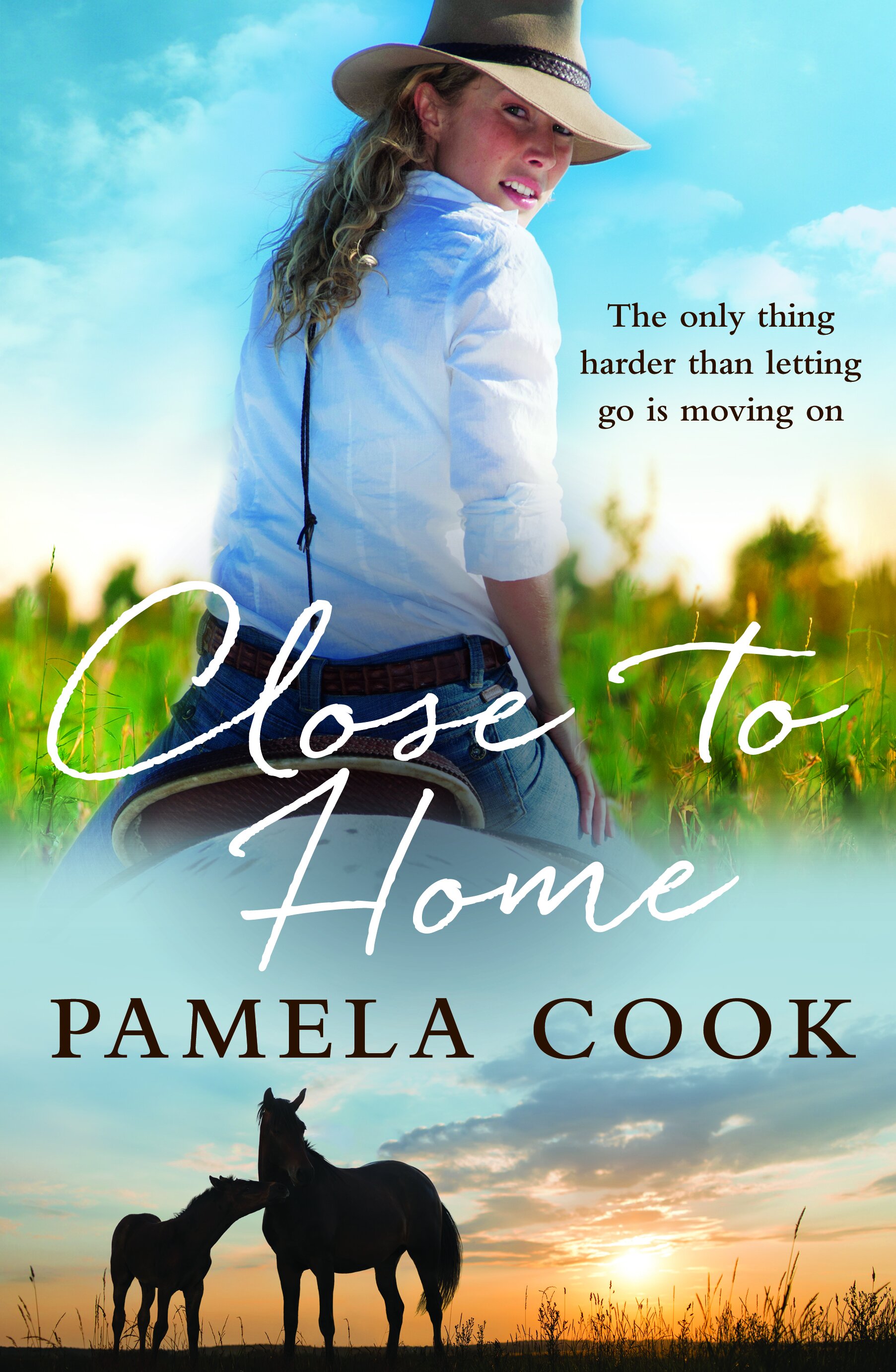
*
Essie's Way (ebook) is currently on sale at Amazon for only $4.99. Click here to buy.Close to Home is now (ebook) is now available for pre-order. Click here to order.All three books are available in print at your local book seller. If you can't see them on the shelves please ask at the counter. :)
*
Thanks for dropping by.Would love to hear about who or what inspires you - in writing or in life .x
***
3rd AprilA Sneak Peek at Close To Home In less than three months my new book, Close To Home will be hitting the shelves so I thought now might be as good a time as any to give you a sneak peek of the gorgeous cover Hachette have created and to tell you a little about the story.So without any further ado ...  A captivating story that shows the only thing harder than letting go is moving on.Orphaned at thirteen, Charlie Anderson has been on her own for half her life. Not that she minds - she has her work as a vet and most days that's enough. Most days. But when she's sent to a small town on the New South Wales coast to investigate a possible outbreak of the deadly Hendra virus, Charlie finds herself torn between the haunting memories of her past, her dedication to the job and her attraction to a handsome local. Travelling to Naringup means coming face to face with what is left of her dysfunctional family - her cousin Emma, who begged Charlie not to leave all those years ago, and her aunt Hazel, who let her go without a backwards glance. But it also means relying on the kindness of strangers and, when she meets local park ranger Joel Drummond, opening her heart to the possibility of something more . . .As tensions in the country town rise, can Charlie reconcile with the past and find herself a new future in the town she left so long ago? At the moment the Kindle edition of Close To Home is available for pre-order on Amazon but I'll let you know when other links are available. Hope you love the cover as much as I do!
A captivating story that shows the only thing harder than letting go is moving on.Orphaned at thirteen, Charlie Anderson has been on her own for half her life. Not that she minds - she has her work as a vet and most days that's enough. Most days. But when she's sent to a small town on the New South Wales coast to investigate a possible outbreak of the deadly Hendra virus, Charlie finds herself torn between the haunting memories of her past, her dedication to the job and her attraction to a handsome local. Travelling to Naringup means coming face to face with what is left of her dysfunctional family - her cousin Emma, who begged Charlie not to leave all those years ago, and her aunt Hazel, who let her go without a backwards glance. But it also means relying on the kindness of strangers and, when she meets local park ranger Joel Drummond, opening her heart to the possibility of something more . . .As tensions in the country town rise, can Charlie reconcile with the past and find herself a new future in the town she left so long ago? At the moment the Kindle edition of Close To Home is available for pre-order on Amazon but I'll let you know when other links are available. Hope you love the cover as much as I do!
***
Filling The Well: This Week's InspirationsIt's been a while since my last series of posts, mainly because I've been wallowing in the slump I generally find myself in once I do the final revisions on a novel. But I'm starting to drag myself out of my post Close To Home swamp and back into the real world. Where it's time to start thinking about what's next.Unfortunately I'm not one of those writers who has a zillion ideas and not enough time to write them all. Ideas, for me, tend to brew slowly, simmering away on the back burner of my subconscious until I decide to turn up the heat and start cooking. To continue with the kitchen metaphor I generally don't throw together a banquet but concentrate on one dish at a time, channelling all my energies into coming up with the right ingredients and concocting a memorable experience for the reader. That's not to say that writers who work on more than one novel at a time, or one idea at a time, aren't able to serve up an entire menu of quality reads - I know many that can and I envy their wizard like abilities. Sadly though, that's not my creative style.So when one story comes to an end and the proof pages are emailed off to my editor I'm usually at a point (like now) where I have a notion of what I want to write next but not the entire plot. I'm a pantser, someone who writes without knowing where the story is heading and works it out along the way. Sometimes that means I get stumped at a certain point so this time I decided I was going to plan more and not start writing until I had a pretty good idea of where the story was going. Despite my attempts to sit down and come up with an outline and structure it hasn't happened so I've decided to throw those particular plans out the window and revert to my usual process: start writing and see what happens. I'll keep you posted on how that works out.In the meantime I've been doing what Julia Cameron (The Artist's Way) calls 'filling the well' with good books and good music.  I'm a lover of country music and this week caught the US band Lady Antebellum at one of their Sydney appearances. I first saw these guys about 6 years ago at a regional Keith Urban concert (before Keith was on Australian/American Idol he actually played smaller venues). It was fantastic to see how far the band has come, how their support base has grown and how much they absolutely love performing. The joy Charles Kelley received from the audience's reaction to the music was obvious and infectious, making it a truly fun night. Of course it didn't hurt that he's great eye candy too!
I'm a lover of country music and this week caught the US band Lady Antebellum at one of their Sydney appearances. I first saw these guys about 6 years ago at a regional Keith Urban concert (before Keith was on Australian/American Idol he actually played smaller venues). It was fantastic to see how far the band has come, how their support base has grown and how much they absolutely love performing. The joy Charles Kelley received from the audience's reaction to the music was obvious and infectious, making it a truly fun night. Of course it didn't hurt that he's great eye candy too! 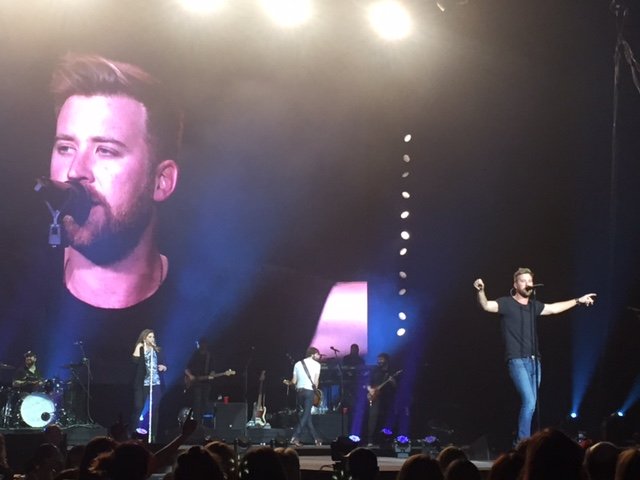 The book I've been reading this week, shortlisted last year for The Man Booker Prize, is We Are All Completely Beside Ourselves by Karen Joy Fowler. I can't say too much about the storyline as there's a serious issue with spoiling something crucial but I can say that it was a pleasure to read a book that made me laugh out loud, brought tears to my eyes and was written so brilliantly by an articulate, clever author. I highly recommend it - but also recommend you don't google it or look up reviews in case that spoiler I mentioned appears somewhere. Just read it and enjoy!
The book I've been reading this week, shortlisted last year for The Man Booker Prize, is We Are All Completely Beside Ourselves by Karen Joy Fowler. I can't say too much about the storyline as there's a serious issue with spoiling something crucial but I can say that it was a pleasure to read a book that made me laugh out loud, brought tears to my eyes and was written so brilliantly by an articulate, clever author. I highly recommend it - but also recommend you don't google it or look up reviews in case that spoiler I mentioned appears somewhere. Just read it and enjoy!  Oh, and today I went to see The Second Best Exotic Marigold Hotel. I can't say I enjoyed this sequel as much as the first one (when do you ever really?) but the stellar cast and the gorgeous setting made for an enjoyable two hours. Made even more enjoyable by the addition of Richard Gere. That man is still drop dead gorgeous.Sigh!So that brings me to the end of the week ...when tomorrow morning at 5.30 am I'll be sitting here starting on the first chapter of my new book. There, I've done it, committed.I'll let you know how that goes.What have you been watching. listening to and reading this week?
Oh, and today I went to see The Second Best Exotic Marigold Hotel. I can't say I enjoyed this sequel as much as the first one (when do you ever really?) but the stellar cast and the gorgeous setting made for an enjoyable two hours. Made even more enjoyable by the addition of Richard Gere. That man is still drop dead gorgeous.Sigh!So that brings me to the end of the week ...when tomorrow morning at 5.30 am I'll be sitting here starting on the first chapter of my new book. There, I've done it, committed.I'll let you know how that goes.What have you been watching. listening to and reading this week?
***
March 9th Tutoring The Year Of The Novel For QWCI've just put the final - truly final - touches to my new manuscript, Close To Home, a feeling at once exhilarating and terrifying. Exhilarating because it marks the end of a year long process of writing, revision and proof reading and terrifying because before too long the novel will be out there in the world for all to see. And read. And judge.But more about that later. 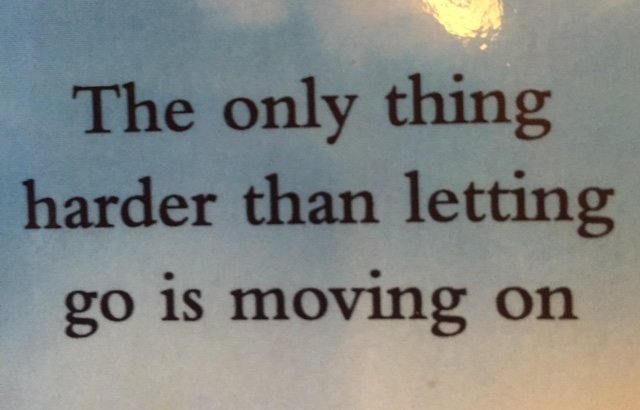 Right now I'm excited to be the new tutor for The Year Of The Novel Online run by Queensland Writer's Centre and developed by the talented and prolific Kim Wilkins aka Kimberley Freeman. I'm a huge fan of Kim's novels so feel extremely privileged to be participating in this course.The course allows participants to work from the comfort of home, working on their own novels with the support of an online group and the guidance of an experienced tutor - in this case, moi!The course starts on March 9. If you think it might be for you, you can find more details here.Would love to have you onboard.
Right now I'm excited to be the new tutor for The Year Of The Novel Online run by Queensland Writer's Centre and developed by the talented and prolific Kim Wilkins aka Kimberley Freeman. I'm a huge fan of Kim's novels so feel extremely privileged to be participating in this course.The course allows participants to work from the comfort of home, working on their own novels with the support of an online group and the guidance of an experienced tutor - in this case, moi!The course starts on March 9. If you think it might be for you, you can find more details here.Would love to have you onboard.
***
Nov 19 2014
A Year of Writing Coming Up in 2015
Hopefully you managed to catch my last post about the writing year that was 2014. If not you can read it here. In summary, although I managed to complete a novel it was a bumpy process and one I hope to improve on in the year ahead. So here's what's coming up for me in 2015 ...Starting Monday I'll be doing the copyedit on my new novel Close To Home. As always, the final stages of a book are a crazy cocktail of attention to detail, nerves, excitement and relief. I've had a few trusted readers give me feedback and will definitely be doing some tweaking on this next edit but hopefully the process won't be too onerous. By the end of January the novel should be visiting the editor for the last time before heading off to the printer. It won't be released until July but advanced reader copies will be sent to booksellers and distributors for a sneak peek in the next few months. I'm absolutely in love with the cover Hachette have come up with and will be revealing it here soon!In previous years I've taken the turning of the final page of the proof read as an opportunity to put my feet up and bask in the glory of having finished a novel. But this time things will be different. Really, they will! I've already started nutting out ideas for my next book and once Close To Home is gone I'll be starting a new manuscript. Unlike my last three novels I'm going to attempt to do a little more planning - but still remain open to new ideas and plot possibilities. I'm also hoping to use the fast and furious method to write the first draft. This technique worked with my first novel, Blackwattle Lake (which was a nano novel) so I'm going to give it another shot. That will leave me more time top spend on re-working and getting feedback from critique partners before the manuscript is in the final stages of revision. Assuming this all goes to plan I should have a first draft finished by the end of March. Fingers crossed!  Daily writing is definitely part of my plan for the year. I've joined a Facebook group called #1000 words A Day, started by my lovely writing pal Monique McDonell, and plan on meeting the challenge. I know from experience that this word count is very doable and being part of a group that inspires and encourages is a great way to make it happen.Apart from writing a new rural fiction novel I'm going to get back to some journal writing, one-off writing exercises and possibly some short story and poetry writing. The last few years have been focused on writing for the market and while I have enjoyed every minute of it (ok - most of it at least) it does have a way of narrowing your focus and zapping your creativity. Or at least it has for me. I've already resumed daily journal writing and while my hand and wrist are complaining after too long spent typing and not scribbling a pen across a page, it's already helping me to write from a different perspective.Another project I'd like to spend at least a few hours a week on is a more literary style novel based on a snippet I discovered a while back on my computer. It was in a folder I'd called Fragments and is nothing more than a paragraph describing a woman waking up and looking out her window but it was so strange and so unlike anything else I've written I'd love to see what I can do with it. Finding the creative spark that led me to write those words is going to be tricky but I think I'll just start with it and see where it leads, writing by hand in a notebook and NOT actually planning anything for this one until a real idea starts to form. It may lead somewhere or it might not, but it will be fun to see what happens.
Daily writing is definitely part of my plan for the year. I've joined a Facebook group called #1000 words A Day, started by my lovely writing pal Monique McDonell, and plan on meeting the challenge. I know from experience that this word count is very doable and being part of a group that inspires and encourages is a great way to make it happen.Apart from writing a new rural fiction novel I'm going to get back to some journal writing, one-off writing exercises and possibly some short story and poetry writing. The last few years have been focused on writing for the market and while I have enjoyed every minute of it (ok - most of it at least) it does have a way of narrowing your focus and zapping your creativity. Or at least it has for me. I've already resumed daily journal writing and while my hand and wrist are complaining after too long spent typing and not scribbling a pen across a page, it's already helping me to write from a different perspective.Another project I'd like to spend at least a few hours a week on is a more literary style novel based on a snippet I discovered a while back on my computer. It was in a folder I'd called Fragments and is nothing more than a paragraph describing a woman waking up and looking out her window but it was so strange and so unlike anything else I've written I'd love to see what I can do with it. Finding the creative spark that led me to write those words is going to be tricky but I think I'll just start with it and see where it leads, writing by hand in a notebook and NOT actually planning anything for this one until a real idea starts to form. It may lead somewhere or it might not, but it will be fun to see what happens. 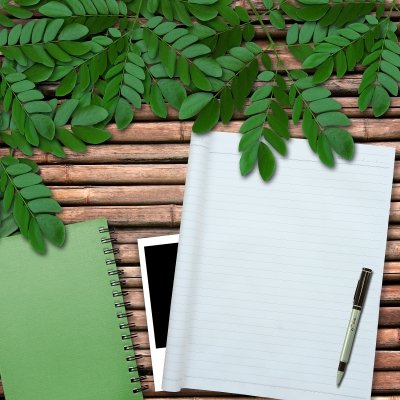 Along with all of the above I'll be blogging more regularly, teaching a few workshops - the first of which, Wildwords is at The NSW Writer's Centre on January 31 - and reading as often and as widely as I can.Outside of writing I hope to ride my horse more, exercise more and practice kindness more mindfully.What is in store for you in 2015, writing and otherwise?Would love to hear from you.
Along with all of the above I'll be blogging more regularly, teaching a few workshops - the first of which, Wildwords is at The NSW Writer's Centre on January 31 - and reading as often and as widely as I can.Outside of writing I hope to ride my horse more, exercise more and practice kindness more mindfully.What is in store for you in 2015, writing and otherwise?Would love to hear from you.
***
1 January 2014 What I Wrote And What I Learned About Writing in 2014Well, it's that time of the year again - the time we look back over the year that was and ahead to the year to come - so today on the blog I thought I'd fill you in on what I've been up to and what I've learnt writing wise. And tomorrow, what I have planned for 2015.It's been a busy last few months finishing the draft of Close To Home. When I last blogged I gave a brief outline of the story and while it hasn't changed in essence I'm pleased to say the plot and characters have developed. Overall I'm pretty happy with the novel. The day I submitted it, I spoke to my publisher, sharing my nerves about the final draft and how hard I felt the process had been. She reminded me I'd said the same thing about the last two novels! So, that's one thing I've learned after completing book number three: each book is different in terms of the process and how it comes to you, but it never gets any easier and the anxiety we have about our writing never goes away. It's just part of the job and something we need to accept and not get caught up in.There were quite a few times I hit what I thought were major roadblocks in terms of where to go next with the plot. In my usual style I opted for avoidance and spent weeks on end doing anything but write. When I finally sat down and forced myself to face the page - to write anything at all rather than nothing - what I rediscovered was that the act of writing produces ideas. Even if what you come up with initially is rubbish (that's what revision is for) just getting the words down leads you back into the story and new plot lines start to emerge. I knew this already of course, but had chosen to ignore it and be a tortured artist instead. Bad move. One I hope not to repeat in the future.Something else I re-learnt was that talking plot and character problems through with writing buddies or family members who are willing to listen really does help. As writers we are so close to our work or so focused on the initial idea we have that alternatives may not occur to us - or if they do we ignore them because that's easier. Thrashing things out really does help. This time around I've spent a lot more time discussing the plot with my husband. He's not much of a reader but is a good listener and able to give a different perspective. Talking character problems though with my gorgeous publisher Vanessa also helped. Even though the changes meant I had to go back and alter parts of the plot, it opened up more possibilities and made the characters more authentic.And of course as well as talking issues through, sharing both excerpts and the whole final draft with my fantastic writing groups helped enormously. Getting and listening to feedback always improves the final product. I'm blessed to have a number of fellow writers who give honest, constructive comments. Sharing your writing with someone you see as an ideal reader is helpful too and I'm very lucky to have someone who was willing to read the draft and give her honest opinion. While it's not always easy to hear, the bottom line is that the feedback will make you take another look at what you have written, reassess it and (hopefully) improve it.One of the highlights of my writing year was attending the Writing in Paradise Course with the fabulous Cate Kennedy as tutor. Apart from sharing everything she knows about writing with the group (which was blissfully small), Cate spent hours of her own time reading and editing my manuscript. Her feedback made me take a good hard look at the writing and I can honestly say it is a whole let better for her input. Anytime spent with fellow writers talking about your shared passion is time well spent and the week I had on the island on Savu Savu at the lovely Daku Resort was invaluable. 

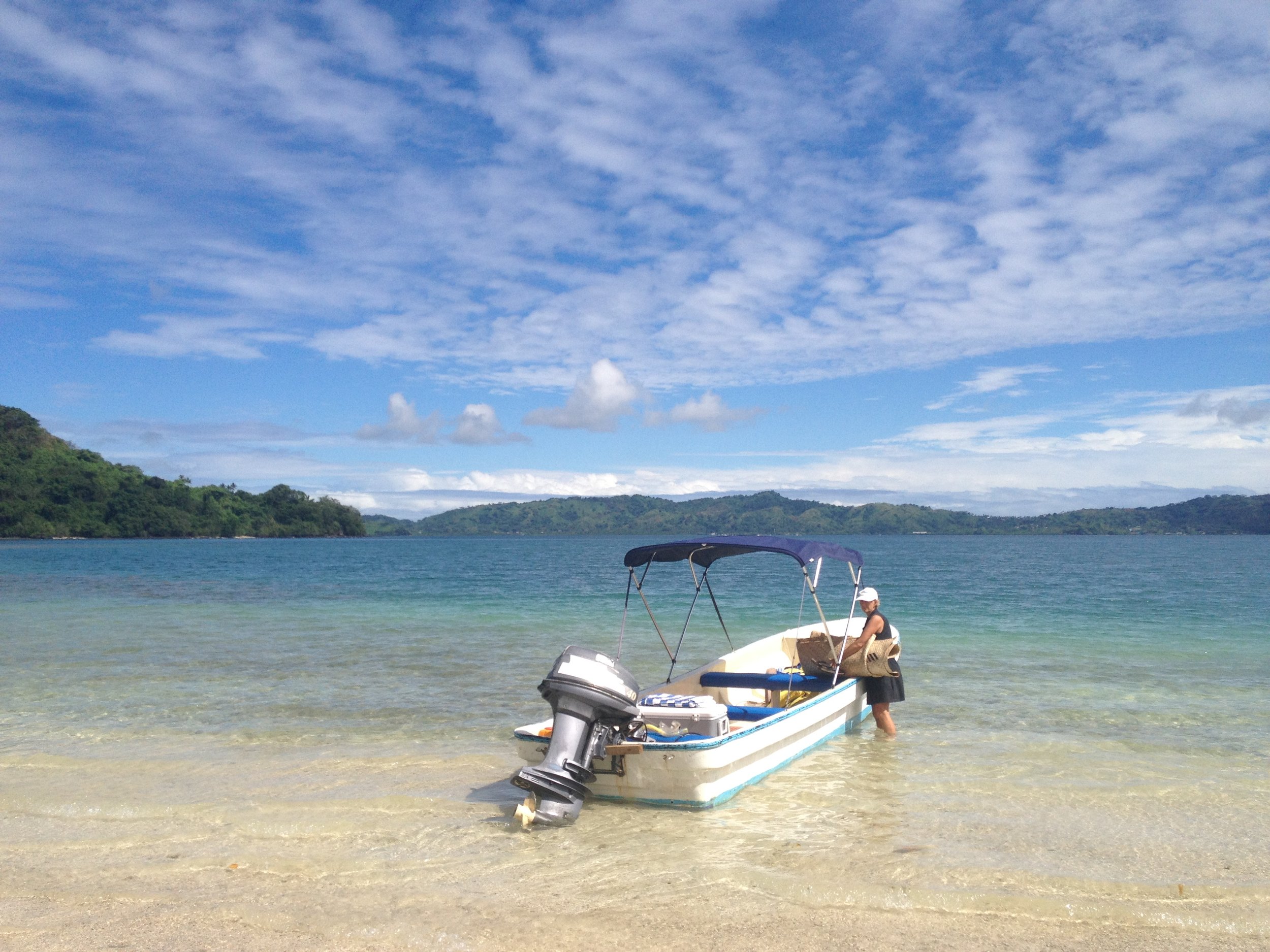 The novel I began in February 2014 should be completed and ready to go to print by the end of January 2015. A good part of that time was spent writing the first draft - with a lot of stalling. I'm what's called a pantser in the writing world - someone who writes without a detailed plot outline, letting the story take me where it will. Although I still love this process and the surprises it can reveal I do think it was partly responsible for the hiccups I had along the way. For my next novel I'm going to try to do more initial planning, write every day and get the first draft done a lot quicker so I have more time to spend on revision. But that's really what tomorrow's post is about.How was your writing year? What did you learn?Wishing everyone a happy new year.See you on the other side.
The novel I began in February 2014 should be completed and ready to go to print by the end of January 2015. A good part of that time was spent writing the first draft - with a lot of stalling. I'm what's called a pantser in the writing world - someone who writes without a detailed plot outline, letting the story take me where it will. Although I still love this process and the surprises it can reveal I do think it was partly responsible for the hiccups I had along the way. For my next novel I'm going to try to do more initial planning, write every day and get the first draft done a lot quicker so I have more time to spend on revision. But that's really what tomorrow's post is about.How was your writing year? What did you learn?Wishing everyone a happy new year.See you on the other side.
***
September 2014Writing News And Current InspirationsIt's been a while between posts, mainly because I've been working on finishing the draft of me new novel, so I thought I'd fill you in on what I've been writing, reading and listening to. I'm happy to say that after a very stop-start six months my third rural fiction novel has been written. Sort of. There's still a load of revision to do but at least the story is out and relatively whole. The writing process has been so different with each of my novels but I found this one particularly difficult. I'd write a few scenes and then get completely stuck and instead of persevering I'd allow myself (very unwisely) to take a break for days, or sometimes weeks. About two thirds of the way through I realised something I already knew - sitting down and writing is the best way of coming up with new ideas. Even if you only write a few sentences it sparks something and pushes you into the next part of your story. I also had to keep reminding myself that a first draft doesn't have to be perfect. It's where you learn what the story is all about and where you find out who your characters are and what motivates them. You don't really know what the true story is until you reach the end. I need to print this in bold type and stick it above my desk so that next time I don't give in to doubts and procrastination. But, knowing me, I'll have to learn the hard way once again! All in all I'm pretty happy with the story in its current form - although this could change once I've read it through again. The title for the novel is Close to Home. It's the story of Charlie Anderson, a vet who returns to the town where she spent her youth, to deal with an outbreak of the deadly hendra virus. As reluctant as she is to be returning, she takes her job very seriously. The case brings her back in contact with her estranged relatives - cousin Sarah, now married to horse breeder Garth McDowell and her aunt, Hazel Roberts. National Parks and Wildlife Officer Joel Drummond helps Charlie educate the local community about the bats that spread the virus and she finds herself unnervingly attracted to him. When she discovers Sarah is the victim of domestic violence Charlie is compelled to act to try and help her and is drawn into a family conflict that is much more dangerous than anyone could anticipate. So now the story is sorted the fine tuning must begin. I'm always more at ease with the revision process rather than the drafting process, preferring to have words there on the page to tweak and mould. At the moment I'm taking some time out to re-charge before the revision begins in earnest. I'm watching re-runs of my favourite TV show Castle in preparation for the new season - can't resist a show about a writer and his muse (maybe I need to get one of those!). I'm also reading a number of books from genres other than mine and have two on the go at the moment: Let Her Go by Dawn Barker and Lost And Found by Brooke Davis, two very talented Australian writers. I seem to be drawn to read stories about grief and loss as well as write them! Both books are beautifully written and I'm enjoying them immensely. 
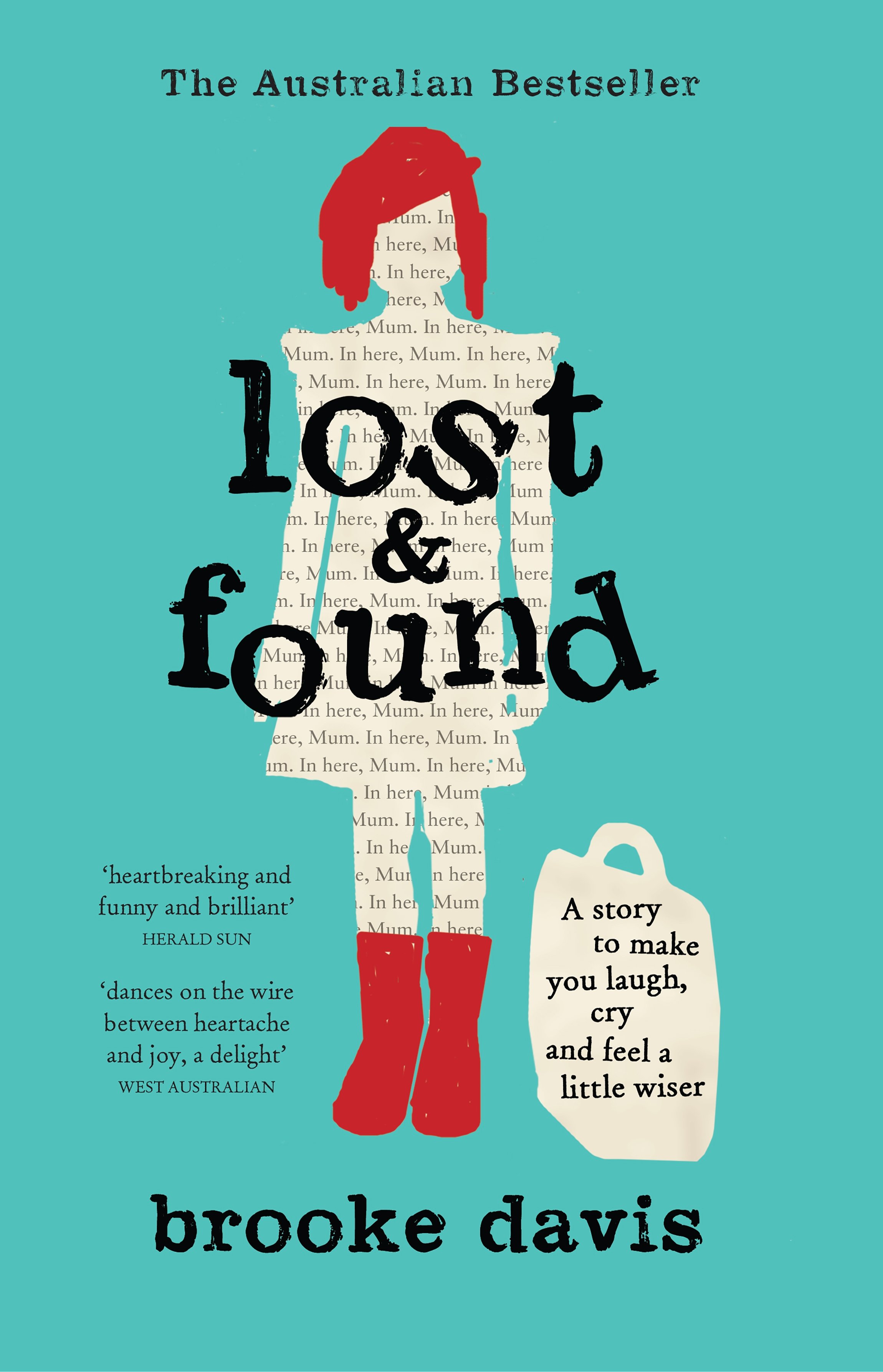 On the music front I'm loving Ed Sheeran's new album, especially the song Thinking Out Loud. The line kiss me under the light of a thousand stars makes me swoon. Despite my protests I'm a Romantic after all. Here's the clip: https://www.youtube.com/watch?v=0bLQ6U-1nRc I've been listening to Sara Bareilles for a while now and can't believe I missed her when she visited Sydney earlier this week. The lyrics to Brave are so inspiring, and capture the sort of strength I try to create in my female protagonists. https://www.youtube.com/watch?v=QUQsqBqxoR4 With a few days up my sleeve before the revision starts I'm off to read, listen and relax. Hope you all get to do some of the same this weekend.
On the music front I'm loving Ed Sheeran's new album, especially the song Thinking Out Loud. The line kiss me under the light of a thousand stars makes me swoon. Despite my protests I'm a Romantic after all. Here's the clip: https://www.youtube.com/watch?v=0bLQ6U-1nRc I've been listening to Sara Bareilles for a while now and can't believe I missed her when she visited Sydney earlier this week. The lyrics to Brave are so inspiring, and capture the sort of strength I try to create in my female protagonists. https://www.youtube.com/watch?v=QUQsqBqxoR4 With a few days up my sleeve before the revision starts I'm off to read, listen and relax. Hope you all get to do some of the same this weekend.
***
Writers On Reading: Tricia Stringer Talks About Her Favourite Books and Characters
This week I welcome to the blog, Rural Romance author Tricia Stringer.
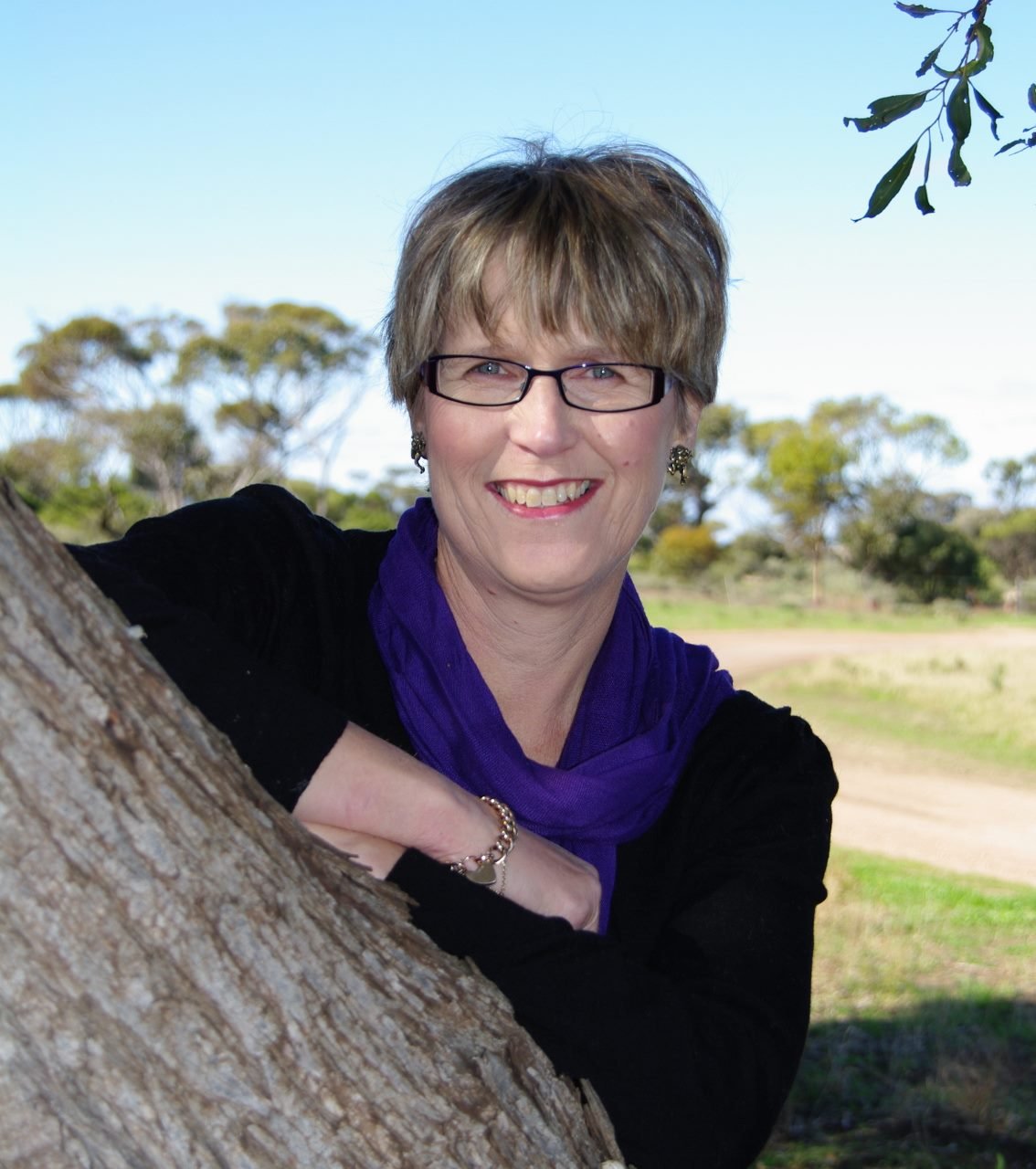
Tricia published her first rural romance via Print on Demand back in 2004 before it was a recognized genre. Since then she self-published two more titles before Harlequin Australia accepted her book, Queen of the Road. It was an exciting debut with Harlequin, going on to win RWAs Romantic Book of the Year in 2013 and also being listed in Get Reading’s 50 Books You Can’t Put Down campaign. In 2014 her second book with Harlequin, Right as Rain was published . Tricia grew up on a farm and lives in rural South Australia where she loves to write stories of country life. Her next book, Riverboat Point will be out this December.

Mack’s determined to do what’s right for her father...but will she choose what’s right for herself?
Mackenna Birch returns to the family farm in Australia to find her beloved father unwell and her scheming younger brother home from the city, showing a great interest in taking over the business.Mack longs to make big changes to the farm — changes her father has approved. But with her dad’s ailing health, all her plans have been put on hold. Mack finds herself turning to Hugh — her old friend and neighbour — as her confidant.Then, out of the blue, Adam, her holiday romance, turns up. Mack has to juggle some tough decisions and try to make those around her happy. But can she find the balance and have her own ever-after?
Thanks for visiting Flying Pony Tricia and all the best with Riverboat Point.
*
1. Which books do you most vividly remember from your childhood?I was lucky enough to have a childhood rich in books. My earliest memory of a favourite is Peter Rabbit which I took to bed with me every night. Horton Hatches the Egg is another favourite and I still have my original copy which I’ve read to countless children since, including my own.2. Who are your three most favourite fictional book characters? Tell us what you love about each of them.
- The second Mrs De Winter from Rebecca by Daphne Du Maurier (the author never reveals her name), she stands by her man no matter what.
- Scarlett O’Hara from Gone with the Wind, she was selfish and vain but strong and determined and I loved her clothes!
- Heathcliff from Wuthering Heights, flawed and broken, brooding and dark and yet determined to do anything for love.
(Three of my favourites too!) 3. Who is your favourite literary villain? Why?Gollum from the Hobbit. He terrified me!4. If you could invite any five writers to a cosy dinner party who would you ask and why?I would love to be able to speak with the people who wrote the titles I’ve mentioned above but for a fun night I’d like to catch up with Matthew Reilly, Monica McInerney, Fiona McIntosh, Bryce Courtney and Margie Arnold (writer and bookshop owner). Sadly Bryce is no longer with us but they’re all writers I admire. They have inspired me and in some cases mentored and supported me. I think we’d have great conversation and a lot of laughs.5. What book has made you laugh out loud?Terms and Conditions by Robert Glancy. It’s a dark comedy which begins with the main character Frank, waking in hospital. He’s been in an accident and he doesn’t remember a thing. At his bedside we meet the two most important people in Frank’s life at the same time he does, his wife, Alice and his brother, Oscar. Frank works for Oscar at Shaw & Sons the law firm their grandfather founded. Frank writes the terms and conditions in contracts and thinks he’s very dull. But then his memory starts to return and he takes the reader with him as he uncovers the secrets of his life. A laugh out loud book and a satisfying read.6. What book, or scene from a book, has made you cry?Exit Wounds by John Cantwell. This book was recommended to me as part of my research for Riverboat Point due out in December. My gorgeous main male character is a soldier who has done two tours of duty in Afghanistan. I needed to know how he would settle back into life at home after that. Cantwell’s story is a deeply moving account of his experiences. I cried.7. Where and when do you do most of your reading?I spend my days writing so I don’t read as much as I’d like to just for pleasure. I do love the indulgence of holidays anywhere in a comfy chair with a coffee or a glass of wine. Reality is - in bed at night and I fall asleep after a few pages! Takes me a while to finish a book.8. Is there a genre of book you’d never read? Why?Gollum scared me enough for a lifetime.9. Can you give us a mini-review of a book you’ve recently read and enjoyed?I’ve just finished The Rosie Project by Graeme Simsion. It made me laugh out loud. If I didn’t keep falling asleep (see question 8) I wouldn’t have put it down. The story was narrated by Don Tillman, a socially challenged genetics professor. Don is on a quest to find the perfectly compatible woman. He calls it the wife project. As I reader and a writer of romance I found it intriguing to explore the gradual exposure of what makes true love. It was both moving and funny. I enjoyed it.10. What are the top three books in your TBR pile?My pile is scattered all over the house and grows more than it shrinks. (See question 8) At the top of my list right now is Tapestry by Fiona McIntosh, Bitter Wash Road by Garry Disher and Questions of Travel by Michelle de Krester.
*
Connect with Tricia:Website: www.triciastringer.com.auFacebook: www.facebook.com/triciastringerauthorTwitter: @tricia_stringer
***
21st July Phillipa Fioretti Talks All Things Books
This week its a pleasure to welcome to the blog Phillipa Fioretti.
Phillipa is an award-winning artist and Australian author and a graduate of the Hachette Australia/Queensland writer's Centre Manuscript Development Program.

Phillipa is the author of The Book Of Love, The Fragment of Dreams and her latest release is For One Night Only.
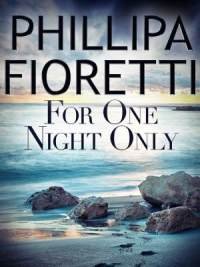
When Ornella vacations in Sicily, she meets Hugh, an archaeologist working on a dig in the beautiful town of Taormina. Hugh convinces Ornella to join him on a trip to the island of Stromboli, where they hike up a live volcano at dusk.
After a passionate night together Ornella, an actress usually focused on her career, suspects she's in love. But after breakfast the next morning, Hugh vanishes.
Ornella is left with Hugh's phone, sunglasses and a sudden end to the love affair she thought she didn't want. Desperate to know if Hugh ran out on her or if he's met with disaster, she wants to search for him. But with an important screen test in Rome and her agent impatiently waiting for her, Ornella faces a dilemma.
Little does she know the danger Hugh is in – and that she is the key to his survival.
*
Thanks so much for visiting Flying pony Phillipa and good luck with the new release.
*
1. Which books do you most vividly remember from your childhood?
Dot and the Kangaroo and Harry the Dirty Dog
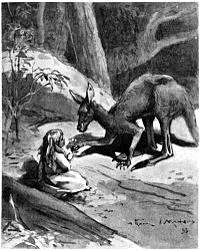
2. Who are your three most favourite fictional book characters? Tell us what you love about each of them.
Merival from Restoration by Rose Tremain, because he’s charming, naive, likeable, unintentionally destructive and brilliant at self- deception. And because he adores his King in a way I imagine people used to adore their monarchs. 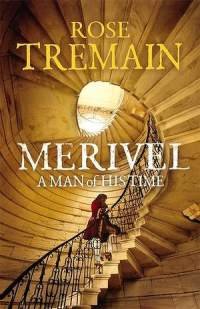 Arkady Renko from Gorky Park by Martin Cruz Smith because he’s stubborn, self annihilating, smart, witty and doomed to misery because he just seems to be more comfortable when miserable.Sal from The Beach by Alex Garland. She’s got the island community under control, she knows the price of their little Utopia and she knows the others have to be shielded from the terrible truth. She’s a realist, a ruthless leader and I rather liked her clear sighted understanding of what it takes for a small group of elites to survive as carefree hippies. 3. Who is your favourite literary villain? Why?Soames Forsyte from the Forsyte Saga, because he just does not get it and never will.
Arkady Renko from Gorky Park by Martin Cruz Smith because he’s stubborn, self annihilating, smart, witty and doomed to misery because he just seems to be more comfortable when miserable.Sal from The Beach by Alex Garland. She’s got the island community under control, she knows the price of their little Utopia and she knows the others have to be shielded from the terrible truth. She’s a realist, a ruthless leader and I rather liked her clear sighted understanding of what it takes for a small group of elites to survive as carefree hippies. 3. Who is your favourite literary villain? Why?Soames Forsyte from the Forsyte Saga, because he just does not get it and never will.  4. If you could invite any five writers to a cosy dinner party who would you ask and why?Tough question, as some writers can write brilliantly but be poor company at a dinner party. I like to dine with people who know how to tell a good anecdote, are witty and smart and have an original view on life. So I don’t know what these five are like as a dinner party guest, but I’m going to mix and match and say Dostoyevsky, Irvine Welsh, Margaret Drabble, Dorothy Parker and Patrick White. That should be a good night, although it could end in tears. 5. What book has made you laugh out loud?I adored Glen Duncan’s The Last Werewolf. I don’t read this sort of genre as a rule and I don’t know how I came across it but I laughed and laughed and then read it again. 6. What book, or scene from a book, has made you cry?Maggie O’Farrell’s After You’d Gone had me weeping into my pillow.
4. If you could invite any five writers to a cosy dinner party who would you ask and why?Tough question, as some writers can write brilliantly but be poor company at a dinner party. I like to dine with people who know how to tell a good anecdote, are witty and smart and have an original view on life. So I don’t know what these five are like as a dinner party guest, but I’m going to mix and match and say Dostoyevsky, Irvine Welsh, Margaret Drabble, Dorothy Parker and Patrick White. That should be a good night, although it could end in tears. 5. What book has made you laugh out loud?I adored Glen Duncan’s The Last Werewolf. I don’t read this sort of genre as a rule and I don’t know how I came across it but I laughed and laughed and then read it again. 6. What book, or scene from a book, has made you cry?Maggie O’Farrell’s After You’d Gone had me weeping into my pillow. 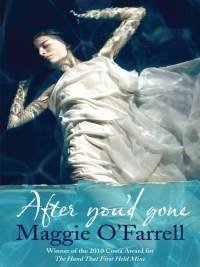 7. Where and when do you do most of your reading?In and on my bed and in an armchair in my study. 8. Is there a genre of book you’d never read? Why?Horror, True Crime, Paranormal, Fantasy. Why? True Crime repels me and the others just don’t interest me – that said, a well written book in ANY genre can always seduce me. Say Robert Hughs wrote a paranormal fantasy, I’d read it in the drop of a hat, but otherwise, no, not my thing. 9. Can you give us a mini-review of a book you’ve recently read and enjoyed?All Quiet on the Western Front by Erich Maria Remarque. Written in 1929 it’s still fresh and eminently readable. In this centenary year I decided to have a closer look at the war. It’s powerful stuff, almost too terrible in parts to read. It’s a shocking account of a soldier’s psychological experience as well as his actions. 10. What are the top three books in your TBR pile?The Sleepwalkers by Christopher Clark, a book about the causes of WW1. (I love good history books as much as I love good fiction)Goodbye to All That by Robert Graves (because I have never and now’s the time)The Narrow Road to the Deep North by Richard Flanagan (one of my favourite writers)
7. Where and when do you do most of your reading?In and on my bed and in an armchair in my study. 8. Is there a genre of book you’d never read? Why?Horror, True Crime, Paranormal, Fantasy. Why? True Crime repels me and the others just don’t interest me – that said, a well written book in ANY genre can always seduce me. Say Robert Hughs wrote a paranormal fantasy, I’d read it in the drop of a hat, but otherwise, no, not my thing. 9. Can you give us a mini-review of a book you’ve recently read and enjoyed?All Quiet on the Western Front by Erich Maria Remarque. Written in 1929 it’s still fresh and eminently readable. In this centenary year I decided to have a closer look at the war. It’s powerful stuff, almost too terrible in parts to read. It’s a shocking account of a soldier’s psychological experience as well as his actions. 10. What are the top three books in your TBR pile?The Sleepwalkers by Christopher Clark, a book about the causes of WW1. (I love good history books as much as I love good fiction)Goodbye to All That by Robert Graves (because I have never and now’s the time)The Narrow Road to the Deep North by Richard Flanagan (one of my favourite writers) 
***
Connect With Phillipa:
Website: http://phillipafioretti.com.au
Twitter: @PipFioretti
Facebook: https://www.facebook.com/PhillipaFioretti.Books
***
18 July
Office Inspirations: Words and Images That Keep Me Writing
At the recent memorial service for Hachette CEO Matt Richell, tragically taken way too early in a surfing accident, an extract from Raymond Carver’s This Morning was read along with a number of other passages from Matt’s favourite works. The passage from This Morning had been printed out and taped by his desk, the words which had inspired him so much in life now left to comfort those mourning his death. (You can read a tribute to Matt Richell here)I'd only had the pleasure of meeting Matt a couple of times and didn't attend the service but reading about it made me think about the words and images pinned to the cork-board above my own desk: the moments they capture, the inspiration they provide and the intricate ways in which they represent both my life and my writing.So I’ve decided to use these words and images as the inspiration for a series of blog posts. They’ll be posted in random order with a brief commentary on what they are and why they’re on my board. I hope you enjoy reading them and would love you to share your own inspirations.  Three poems are pinned to my corkboard, The Journey and Wild Geese by Mary Oliver, and The Peace of Wild Things by Wendell Berry. I was first introduced to these poets many years ago by one of my mentors Joyce Kornblatt. Joyce is a writer, a buddhist and a psychotherapist and runs amazing workshops that put you back in touch with your creative self.I discovered Mary Oliver while revising my first (unpublished novel) and the words of The Journey seemed to ring true not only for myself and my own journey through life but for my main character Stephanie.
Three poems are pinned to my corkboard, The Journey and Wild Geese by Mary Oliver, and The Peace of Wild Things by Wendell Berry. I was first introduced to these poets many years ago by one of my mentors Joyce Kornblatt. Joyce is a writer, a buddhist and a psychotherapist and runs amazing workshops that put you back in touch with your creative self.I discovered Mary Oliver while revising my first (unpublished novel) and the words of The Journey seemed to ring true not only for myself and my own journey through life but for my main character Stephanie. 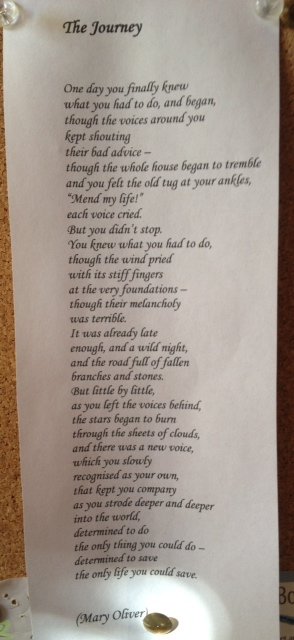 I love the idea encapsulated in this poem of following our inner voice and that we are responsible for our own destiny. Oliver's images and word choices inspire me to be a better writer, my favourite lines in this one capturing the beginning of change, a new realisation:the stars began to burnthrough the sheets of clouds The use of second person in The Journey and Wild Geese draws the reader in, as if Oliver is having a direct conversation with you. I love the sense of connection she describes in Wild Geese, the way we're all part of the one world and a shared humanity.
I love the idea encapsulated in this poem of following our inner voice and that we are responsible for our own destiny. Oliver's images and word choices inspire me to be a better writer, my favourite lines in this one capturing the beginning of change, a new realisation:the stars began to burnthrough the sheets of clouds The use of second person in The Journey and Wild Geese draws the reader in, as if Oliver is having a direct conversation with you. I love the sense of connection she describes in Wild Geese, the way we're all part of the one world and a shared humanity. 
the world offers itself to your imagination, calls to you like the wild geese, harsh and exciting
over and over announcing your place
in the family of things.
It's the connections we have with each other and with whatever unseen power is out there in the universe that I try to explore in much of my writing and Oliver captures it here so beautifully.And it's the way that Berry describes our innate fear of death and the way nature can provide solace and re-connection that draws me to third poem on the board. I love the strange contrast in the peace of wild things and the hope of the day-blind stars/waiting with their light There are so many more poems I could add to my board but for now these are the ones that I keep returning to, all three of them potent reminders to me of the power of and beauty of words. What words or images inspire you?Please share your thoughts in the comments section.
***
18th June
Meet My Main Character Blog Tour
Over the last couple of months I've been featuring Australian Rural Fiction writers in the Writers On Reading Series but this week is a little different.This week's blog post is all about me - well, actually not me, but my main characters in Essie's Way. Miranda and Esther.I've been tagged by Stella Tarakson to take part in the Meet My Character Blog Tour. Stella writes for children and young adults. She's written a number of non-fiction books but now her focus is on now on fiction. Stella's first junior novel, Mike the Spike, is being published by New frontier Publishing, as part of their Little Rockets Series in August! You can find more about Mike, Stella's main character here.Thanks for inviting me Stella and good luck with Mike.
*
Now, most writers taking part in this tour would probably have only one main character in their post but both Miranda and Esther are protagonists in Essie's Way so i'm going to introduce you to both ... 1. What is the name of your character? Is he/she fictional or a historic person?This novel has two main characters, Miranda McIntyre and Esther Wilson. Both are fictional. 2. When and where is the story set?The story is set mainly on the south coast of NSW in the fictional town of Pelican Point but there are also scenes in Sydney, where Miranda lives. The story has a double narrative and switches backwards and forwards in time, telling the story of Esther's life as a young woman, when she was known as Essie, as well as following current day events. 3. What should we know about him/her?Miranda is a thirty something woman, soon to be married, with a promising career in law. But there's something missing from her life and she can't pinpoint exactly what that is.Esther is in her eighties, a recluse who lives by herself in a small shack on a coastal cliff. She plays the violin and gets on a lot better with her, Buster, than she does with people.  4. What is the main conflict? What messes up his/her life?When thinking about something old to go with her wedding dress Miranda remembers an antique necklace from her childhood days but when she questions her mother about it she flatly denies all knowledge of it. Her hysterical reaction send Miranda on a search for the necklace which she finds and then starts an investigation into her mother's past. She is also having doubts about her impending wedding to James.Esther is happy living alone but her solitude is threatened by the possibility that she could be forced to move out of her home. When she has a fall on the rocks while fishing and a young woman comes to her rescue, it sparks a string of events that will force her to relive her buried past. 5. What is the personal goal of the character?Miranda's goal is to discover the answer to a family secret. In the process she will discover more about herself than she anticipates.Esther's goal is to live quietly on her own for the remainder of her life. 6. Is there a working title for this novel, and can we read more about it?Essie's Way is Ppublished by Hachette. You can read more about it here. 7. When can we expect the book to be published?Essie was published in December 2013. My previous novel, Blackwattle Lake was published in December 2012, also by Hachette.Both books are sold through Big W, local bookstores and are also available here at Booktopia.
4. What is the main conflict? What messes up his/her life?When thinking about something old to go with her wedding dress Miranda remembers an antique necklace from her childhood days but when she questions her mother about it she flatly denies all knowledge of it. Her hysterical reaction send Miranda on a search for the necklace which she finds and then starts an investigation into her mother's past. She is also having doubts about her impending wedding to James.Esther is happy living alone but her solitude is threatened by the possibility that she could be forced to move out of her home. When she has a fall on the rocks while fishing and a young woman comes to her rescue, it sparks a string of events that will force her to relive her buried past. 5. What is the personal goal of the character?Miranda's goal is to discover the answer to a family secret. In the process she will discover more about herself than she anticipates.Esther's goal is to live quietly on her own for the remainder of her life. 6. Is there a working title for this novel, and can we read more about it?Essie's Way is Ppublished by Hachette. You can read more about it here. 7. When can we expect the book to be published?Essie was published in December 2013. My previous novel, Blackwattle Lake was published in December 2012, also by Hachette.Both books are sold through Big W, local bookstores and are also available here at Booktopia. 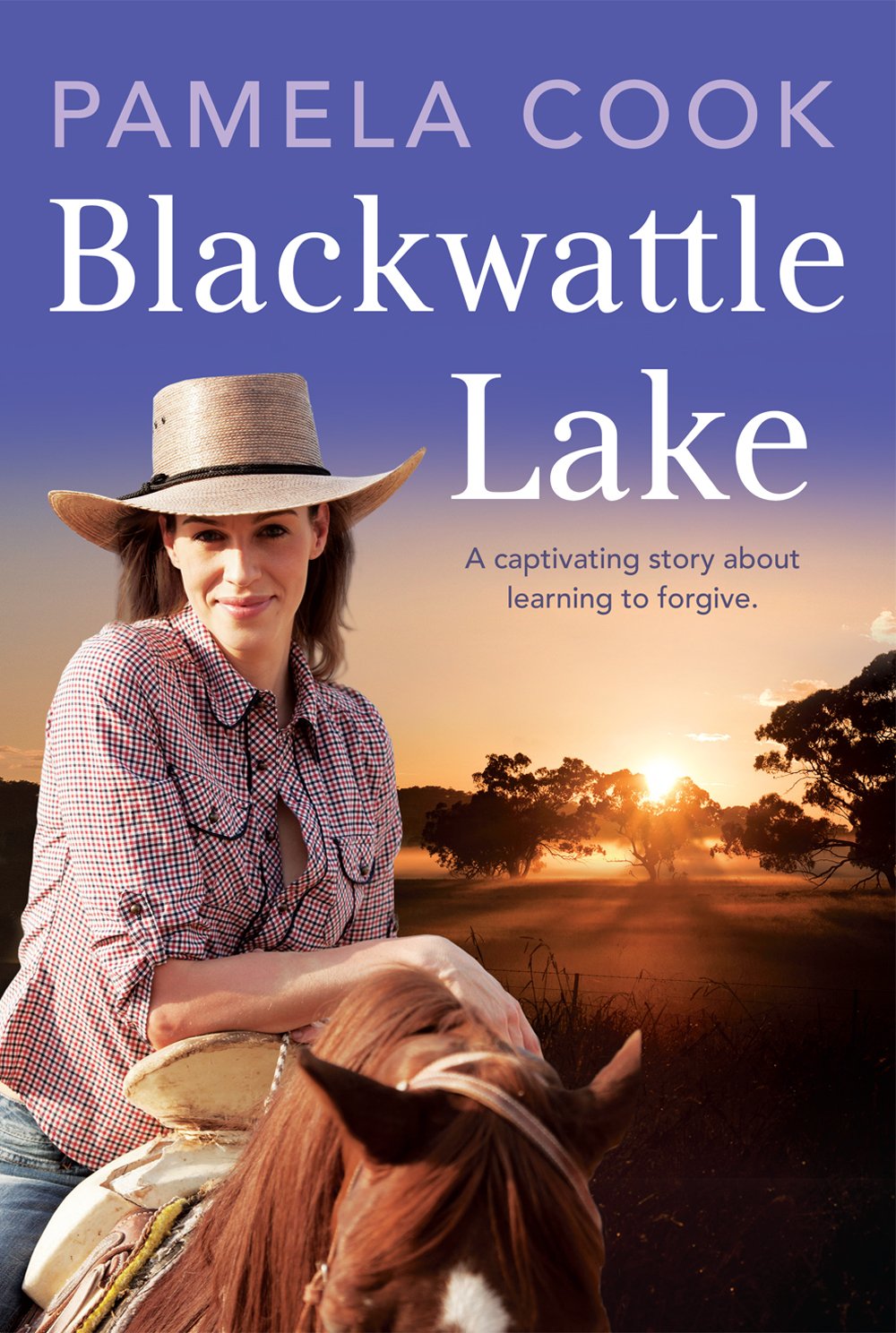
*
I've invited a couple of fellow writers to join the Meet My Character Blog Tour. They'll be blogging about their main characters next week.Monique McDonell writes contemporary Australian Women's Fiction including Chic Lit and Romance. Monique's novels include Mr Right And Other Mongrels, Building Attraction and A Fair Exchange. You can find out more about Monique here.Wanda Wiltshire writes YA Fantasy/Romance. Wanda's first novel, Betrothed was published by Pantera Press. The second book in the series, Allegiance is due out in July. You can find Wanda on Facebook here
***
30th May
Writers On Reading: Jennifer Scoullar On The Books That Inspire Her
Today I welcome Rural Fiction author Jennifer Scoullar to the blog.

Jennifer is a fellow horse lover, a subject she has written about in Brumby's Run.
Jenny is also a keen environmentalist and her latest book Billabong Bend tackles the issue of conservation.

For riverine farmer Nina Moore, the rare marshland flanking the beautiful Bunyip River is the most precious place on Earth. Her dream is to buy Billabong Bend and protect it forever, but she's not the only one with designs on the land. When her childhood sweetheart Ric Bonelli returns home, old feelings are rekindled and Nina dares to hope of a future for them both on the river. But a tragic death divides loyalties, tears apart their fledgling romance and turns her dream into a nightmare. Will Nina win the battle for Billabong Bend? Or will the man she once loved destroy the wild wetlands she holds so close to her heart?
Billabong Bend is a star-crossed love story which sets Nina, a floodplains grazier, and Ric, a traditional cotton farmer, on a heart-rending collision course amid the beauty of New South Wales’ northern riverlands.
*
Thanks to Jennifer for visiting Flying Pony and good luck with Billabong Bend.
*
1. Which books do you most vividly remember from your childhood?I loved Enid Blyton when I was very little, but after that it was horse books all the way. The Follyfoot Farm series by English writer Monica Dickens for example, and the Green Grass Of Wyoming Series by American writer Mary O’Hara. But my all-time favourite was the home-grown Silver Brumby series by Elyne Mitchell. With her evocative descriptions of wildlife and landscapes, she is still a favourite today. I also loved Jack London and the science fiction books of Isaac Asimov and Sir Arthur Conan Doyle. 2. Who are your three most favourite fictional book characters? Tell us what you love about each of them.Interestingly, they’re all from children’s books:- Thowra from the Silver Brumby series - A beautiful, almost magical brumby stallion who has the intelligence and courage to protect his herd and make fools of the humans trying to capture him. My horse hero!- Hermione Granger from Harry Potter - starts as a bit of a know-it-all, but blossoms into a sharp-witted beauty, and is the glue that holds the brave band of friends together. I love her steadfast loyalty and sheer intelligence. My nerd-girl hero!- Charlotte from Charlotte’s Web. She teaches that strength, compassion, bravery, love, and courage are the basis of true strength. My spider hero! 3. Who is your favourite literary villain? Why?Heathcliff from Wuthering Heights. Because he was my first ‘bad boy’ crush. 4. If you could invite any five writers to a cosy dinner party who would you ask and why?Charles Dickens would be my first choice, hands down. What a master story-teller! Nobody draws characters better or with more humanity. I love his warmth of feeling, his sentimentality and his ability to draw the reader in emotionally. I love the way he sets a scene, painting a vibrant picture by evoking the sights, sounds and smells of old London. But most of all I love the courage he showed by engaging with social issues, attacking an exposing injustice wherever he saw it. He has inspired me to tackle issues,particularly environmental ones, in my own writing.Elyne Mitchell, so I could ask her to tell me stories of the high-country.Miles Franklin, so I could thank her for the trailblazing lead she took when it came to recognition for Australian women writers.George Orwell, because he’s one of the greatest modern minds.Rachel Carson. Because she is mother and founder of the contemporary environmental movement, an advocate of nature and environmental ethics, a wonderful writer and a true inspiration! 5. What book has made you laugh out loud?One For The Money by Janet Ivanovich 6. What book, or scene from a book, has made you cry?The death scene of the red cow in the final chapter of Frank Dalby Davison’s Manshy 7. Where and when do you do most of your reading? Anywhere and everywhere. Bed would have to be my favourite place. 8. Is there a genre of book you’d never read? Why? Horror, because I’m squeamish and don’t like violence or cruelty. 9. Can you give us a mini-review of a book you’ve recently read and enjoyed?The Swan Book by Alexis WrightThis is a dystopian novel set in a future where Aboriginals still live under the intervention. It follows the life of a mute young woman named Oblivia, who lives in a displaced swamp community filled with rusting boats and thousands of black swans. It follows her life through to her marriage to the first Aboriginal president of Australia.The environment has been terribly altered by climate change. From the animal plagues, unpredictable weather, decaying cities and climate refugees, nothing in the Australian setting seems familiar anymore. It is a disturbing, sometimes difficult but always poetic and deeply memorable novel. A love story between Oblivia, the swans and the land. 10. What are the top three books in your TBR pile? All the books I’m planning to read next relate somehow to the new novel I’m writing. They are Killers Of Eden by Tom Mead, The Dolphins Of Pern by Anne McCaffrey and Shark by David Owen.
***
Connect with Jennifer:
Twitter @JenScoullarFacebook Jennifer Scoullar – AuthorGoogle+ Jennifer Scoullar
***
7th May
This week I welcome Rural Romance author, the lovely Cathryn Hein to the blog.

Cathryn has a brand new release, Rocking Horse Hill, which sounds like a brilliant read.
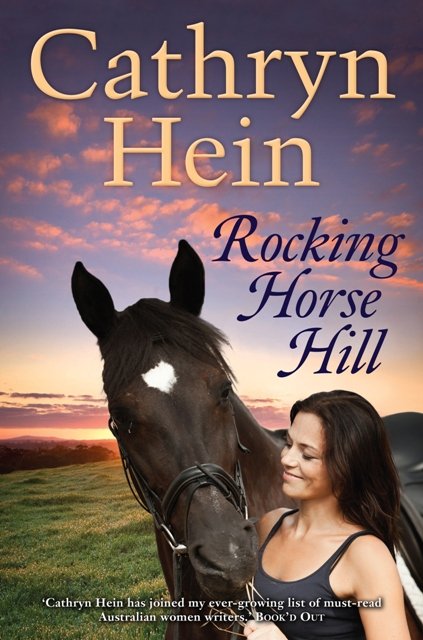 Ever since she was a little girl, Emily Wallace-Jones has loved Rocking Horse Hill. The beautiful family property is steeped in history. Everything important in Em's life has happened there. And even though Em's brother Digby has inherited the property, he has promised Em it will be her home for as long as she wishes.When Digby falls in love with sweet Felicity Townsend, a girl from the wrong side of the tracks, Em worries about the future. But she is determined not to treat Felicity with the same teenage snobbery that tore apart her relationship with her first love, Josh Sinclair. A man who has now sauntered sexily back into Em's life and given her a chance for redemption.But as Felicity settles in, the once tightly knitted Wallace-Jones family begins to fray. Suspicions are raised, Josh voices his distrust, and even Em's closest friends question where Felicity's motives lie. Conflicted but determined to make up for the damage caused by her past prejudices, Em sides with her brother and his fiancée until a near tragedy sets in motion a chain of events that will change the family forever.Rocking Horse Hill is a moving family drama and passionate love story from the author of Heartland. *Thanks Cathryn for visiting Flying Pony and all the best with the new release.* Thanks for inviting me to contribute to Writers on Reading, Pamela. Lovely to be here. 1. Which books do you most vividly remember from your childhood?The Black Stallion series by Walter Farley and the My Friend Flicka books by Mary O’Hara. I loved those books. Couldn’t read them enough. But then I couldn’t get enough of anything horsey!
Ever since she was a little girl, Emily Wallace-Jones has loved Rocking Horse Hill. The beautiful family property is steeped in history. Everything important in Em's life has happened there. And even though Em's brother Digby has inherited the property, he has promised Em it will be her home for as long as she wishes.When Digby falls in love with sweet Felicity Townsend, a girl from the wrong side of the tracks, Em worries about the future. But she is determined not to treat Felicity with the same teenage snobbery that tore apart her relationship with her first love, Josh Sinclair. A man who has now sauntered sexily back into Em's life and given her a chance for redemption.But as Felicity settles in, the once tightly knitted Wallace-Jones family begins to fray. Suspicions are raised, Josh voices his distrust, and even Em's closest friends question where Felicity's motives lie. Conflicted but determined to make up for the damage caused by her past prejudices, Em sides with her brother and his fiancée until a near tragedy sets in motion a chain of events that will change the family forever.Rocking Horse Hill is a moving family drama and passionate love story from the author of Heartland. *Thanks Cathryn for visiting Flying Pony and all the best with the new release.* Thanks for inviting me to contribute to Writers on Reading, Pamela. Lovely to be here. 1. Which books do you most vividly remember from your childhood?The Black Stallion series by Walter Farley and the My Friend Flicka books by Mary O’Hara. I loved those books. Couldn’t read them enough. But then I couldn’t get enough of anything horsey! I also remember vividly a book where a bony, withered creature came out of a grave every night to terrorise a young girl by scratching at and peering in her bedroom window. No idea what the title of it was but it gave me nightmares for ages. Any noise in the dark had me convinced that the creature had emerged from its secret tomb in the paddock down the road and was coming to get me. 2. Who are your three most favourite literary characters? Tell us what you love about each of them.Arthur Conan Doyle’s Sherlock Holmes. He’s such a genius and yet so flawed. Plus I’m a sucker for a good mystery and Sherlock’s were always cleverly done.Jilly Cooper’s Rupert Campbell-Black. Oh, how I love him! He’s such a naughty, sexy toff. The best fun.Antonia from Michelle Paver’s A Place In The Hills. While she might not be my favourite literary character, she’s one of the most important. It was probably more a combination of reads, but I suspect this book is the one that really cemented my desire to write romance. Antonia is a great heroine - clever, determined and honest - and the romance is complex and fulfilling. I adore this book. 3.Who is your favourite literary villain? Why?Professor James Moriarty, Sherlock Holmes’s criminal mastermind enemy. He challenges Sherlock and brings out the best and worst in his character. A great character needs a great villain and Moriarty does the job perfectly.
I also remember vividly a book where a bony, withered creature came out of a grave every night to terrorise a young girl by scratching at and peering in her bedroom window. No idea what the title of it was but it gave me nightmares for ages. Any noise in the dark had me convinced that the creature had emerged from its secret tomb in the paddock down the road and was coming to get me. 2. Who are your three most favourite literary characters? Tell us what you love about each of them.Arthur Conan Doyle’s Sherlock Holmes. He’s such a genius and yet so flawed. Plus I’m a sucker for a good mystery and Sherlock’s were always cleverly done.Jilly Cooper’s Rupert Campbell-Black. Oh, how I love him! He’s such a naughty, sexy toff. The best fun.Antonia from Michelle Paver’s A Place In The Hills. While she might not be my favourite literary character, she’s one of the most important. It was probably more a combination of reads, but I suspect this book is the one that really cemented my desire to write romance. Antonia is a great heroine - clever, determined and honest - and the romance is complex and fulfilling. I adore this book. 3.Who is your favourite literary villain? Why?Professor James Moriarty, Sherlock Holmes’s criminal mastermind enemy. He challenges Sherlock and brings out the best and worst in his character. A great character needs a great villain and Moriarty does the job perfectly.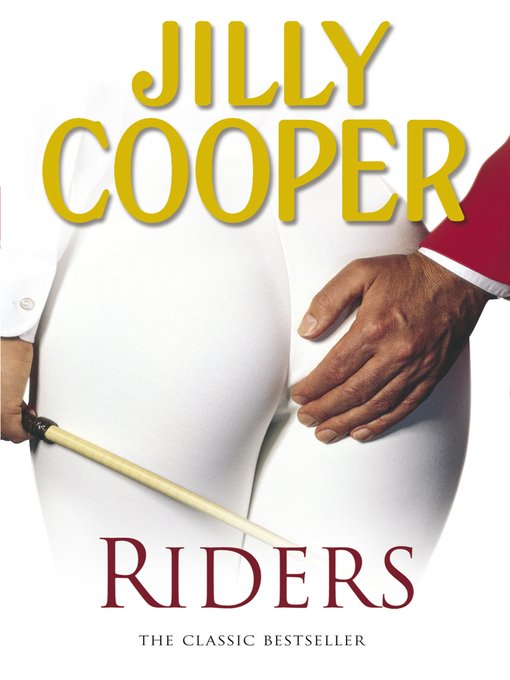 4. If you could invite any five writers to a cosy dinner party who would you ask and why?Jilly Cooper - she’d be a hoot!Stephen King - because he’s an amazing writer and tells it like it is. Imagine what you could learn from this man.Mo Hayder - I’m a huge fan and she’s led an interesting life. Her novel Tokyo (now retitled The Devil of Nanking) was incredible.Anthony Horowitz - he’s written for some of my most adored television shows like Midsomer Murders. He’s prolific and writes across genres. Plus I loved his Sherlock Holmes novel, The House of Silk.Suzanne Collins - I couldn’t put The Hunger Games series down. Her end of chapter hooks had me in awe. I’d love to know how she planned those.
4. If you could invite any five writers to a cosy dinner party who would you ask and why?Jilly Cooper - she’d be a hoot!Stephen King - because he’s an amazing writer and tells it like it is. Imagine what you could learn from this man.Mo Hayder - I’m a huge fan and she’s led an interesting life. Her novel Tokyo (now retitled The Devil of Nanking) was incredible.Anthony Horowitz - he’s written for some of my most adored television shows like Midsomer Murders. He’s prolific and writes across genres. Plus I loved his Sherlock Holmes novel, The House of Silk.Suzanne Collins - I couldn’t put The Hunger Games series down. Her end of chapter hooks had me in awe. I’d love to know how she planned those.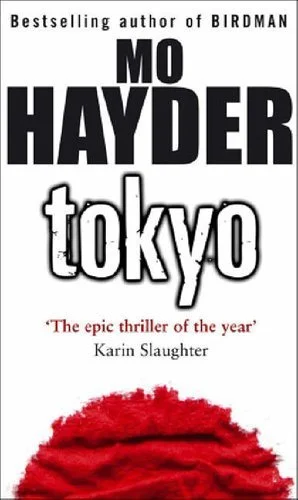 5. What book has made you laugh out loud?Spanish Steps: Travels With My Donkey by Tim Moore. I laughed myself silly over this book, in public, to the point of tears. It was wonderful.Tim Moore is a travel writer and this book chronicles his journey along the pilgrimage route to Santiago de Compostela with his donkey Shinto.Moore’s French Revolutions: Cycling the Tour de France was hugely entertaining too. A great travel writer. 6. What book, or scene from a book, has made you cry?There is a scene in Code Name Verity, Elizabeth Wein’s World War II book of friendship and incredible bravery, that had me bawling like a baby. I can’t tell you anything about it because it would give away the plot and I wouldn’t want to spoil this brilliant book for anyone.Go read it. It’s heartbreaking and wonderful at the same time.
5. What book has made you laugh out loud?Spanish Steps: Travels With My Donkey by Tim Moore. I laughed myself silly over this book, in public, to the point of tears. It was wonderful.Tim Moore is a travel writer and this book chronicles his journey along the pilgrimage route to Santiago de Compostela with his donkey Shinto.Moore’s French Revolutions: Cycling the Tour de France was hugely entertaining too. A great travel writer. 6. What book, or scene from a book, has made you cry?There is a scene in Code Name Verity, Elizabeth Wein’s World War II book of friendship and incredible bravery, that had me bawling like a baby. I can’t tell you anything about it because it would give away the plot and I wouldn’t want to spoil this brilliant book for anyone.Go read it. It’s heartbreaking and wonderful at the same time. 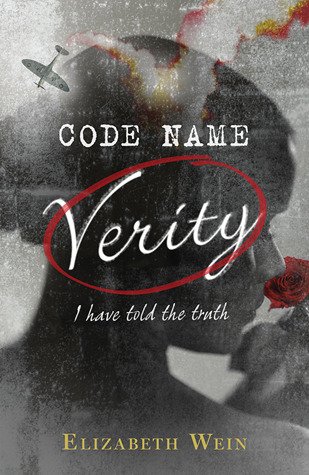 7. Where and when do you do most of your reading?Mostly in bed, but I also read on the couch in front of the telly and at the kitchen bench while eating breakfast, lunch or waiting for things to cook.I also read ebooks while riding the exercise bike. Good stories, like Amy Andrew’s Holding Out For A Hero which was my last exercise bike read and Sarah Mayberry’s Satisfaction which is my current, can make that time go faaaaast! 8. Is there a genre of book you’d never read? Why?Not really. I’ll read anything if the story is good. 9. Can you give us a mini-review of a book you’ve recently read and enjoyed?I’ve just finished Anne Gracie’s The Autumn Bride. Such a wonderful story. Anne’s books are like cuddly blankets you can wrap yourself in, and the characters in this one are gorgeous. This is the first in the Chance Sisters series.Abby Chantry rescues her sister Jane from a brothel, collecting another two girls along the way. They band together but times are difficult and, desperate, Abby breaks into a neighbouring house to find something to steal. Instead, she discovers an ill old lady being terribly mistreated by her servants. Abby comes to her aid and the girls are subsequently taken under Lady Beatrice Davenham’s wing, much to her nephew Max’s bemusement.A lovely book and well deserving of its Rita nomination.
7. Where and when do you do most of your reading?Mostly in bed, but I also read on the couch in front of the telly and at the kitchen bench while eating breakfast, lunch or waiting for things to cook.I also read ebooks while riding the exercise bike. Good stories, like Amy Andrew’s Holding Out For A Hero which was my last exercise bike read and Sarah Mayberry’s Satisfaction which is my current, can make that time go faaaaast! 8. Is there a genre of book you’d never read? Why?Not really. I’ll read anything if the story is good. 9. Can you give us a mini-review of a book you’ve recently read and enjoyed?I’ve just finished Anne Gracie’s The Autumn Bride. Such a wonderful story. Anne’s books are like cuddly blankets you can wrap yourself in, and the characters in this one are gorgeous. This is the first in the Chance Sisters series.Abby Chantry rescues her sister Jane from a brothel, collecting another two girls along the way. They band together but times are difficult and, desperate, Abby breaks into a neighbouring house to find something to steal. Instead, she discovers an ill old lady being terribly mistreated by her servants. Abby comes to her aid and the girls are subsequently taken under Lady Beatrice Davenham’s wing, much to her nephew Max’s bemusement.A lovely book and well deserving of its Rita nomination.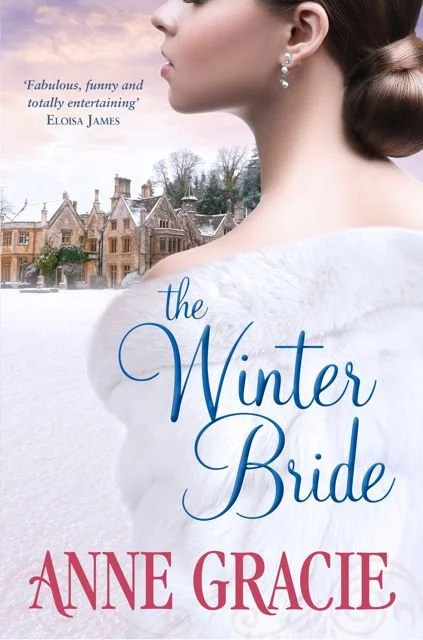 10. What are the top three books in your TBR pile?City of Lost Dreams by Magnus FlyteKing Solomon’s Mines by H. Rider HaggardThe Perfect Wife by Katherine ScholesBut those are likely to change depending on my mood!
10. What are the top three books in your TBR pile?City of Lost Dreams by Magnus FlyteKing Solomon’s Mines by H. Rider HaggardThe Perfect Wife by Katherine ScholesBut those are likely to change depending on my mood!
*
You can connect with Cathryn here:Website: cathrynhein.comFacebook: facebook.com/cathrynheinTwitter : @CathrynHein
***
30 April
Writers On Reading: Rural Fiction Author Fiona Palmer on Books And Reading Habits
This week I welcome the lovely Fiona Palmer to the blog to find out about her literary loves and inspirations. Fiona is best known for her Rural Fiction - The Family Farm, The Road Home, Heart of Gold, The Sunburnt Country and most recently The Outback Heart. 
And as if that list isn't impressive enough Fiona has a new release coming out on May 1st, her first Young Adult book, The Recruit.
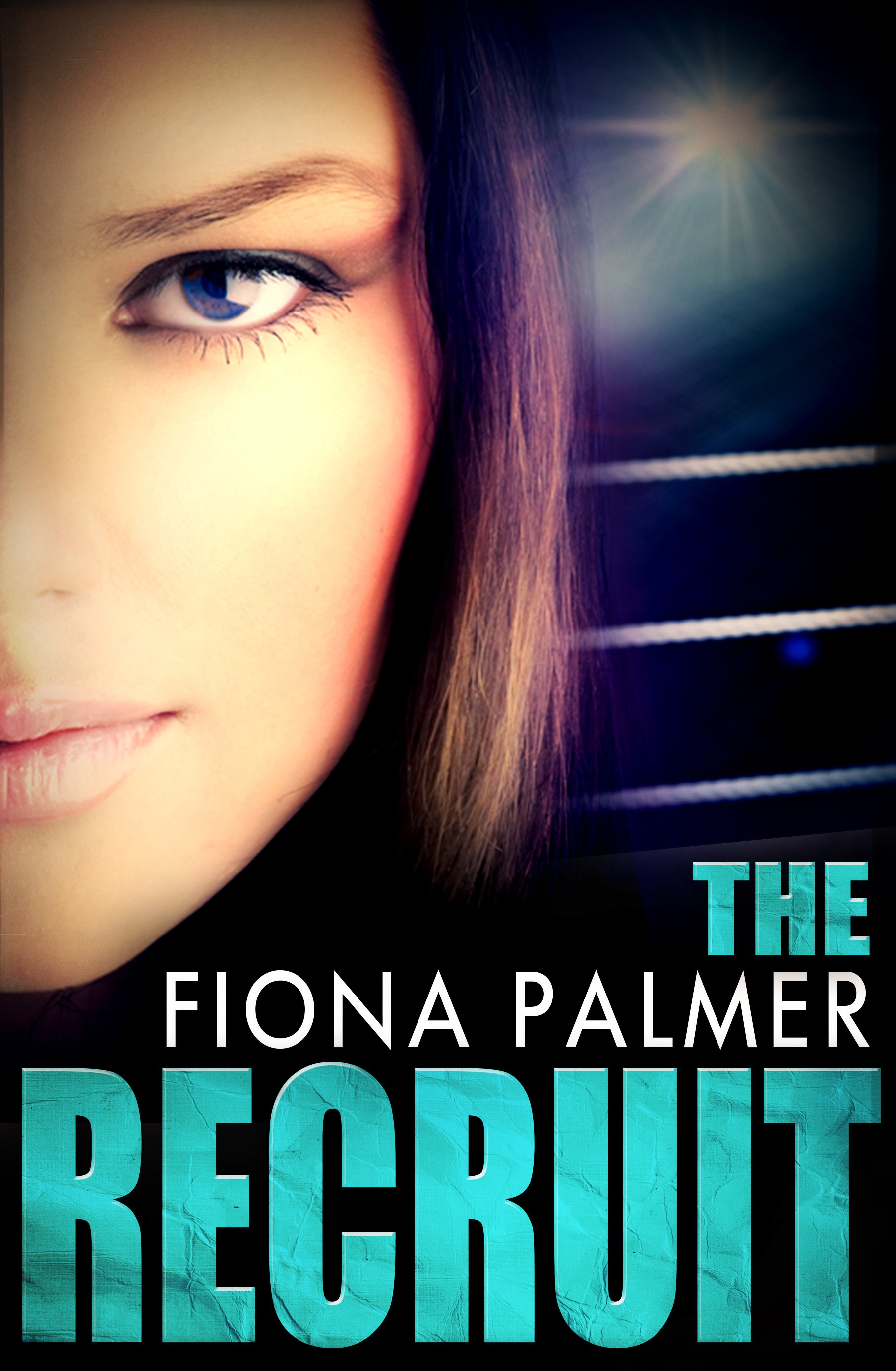
The Recruit
Jasmine Thomas may not be completely normal, but she’s a pretty typical seventeen-year-old girl. She hates the rich mean kids, loves her best friends, and can’t wait to get out of school each day. Her spare time is spent at The Ring, a boxing gym where she practically grew up, learning karate, boxing and street fighting. So, yeah, she can kick some major butt.
Life seems pretty normal until the day Ryan Fletcher enters her gym, mysterious and hot with heaps of bad boy charm. Sure, she checks him out. Who wouldn’t? But what doesn’t show on his gorgeous abs are secrets and lies that dominate his very grown-up world. Now Jaz has to figure out just how far is she willing to go to know more. Could Ryan really be offering the life-fulfilling life path she’s always dreamed of?
*
Here's what Fiona had to say about books and her literary inspirations ... 1.Which books do you most vividly remember from your childhood?How Emu lost his wings by SRA Australian Stories. It was a book from my Gran. We also had a lot of fairy tale stories, like from The brothers Grimm. And of course any of Danielle Steel’s books as that’s what my mum had in her bookshelf. 2. Who are your three most favourite literary characters? Tell us what you love about each of them.Rose Hathaway because she is bad ass, a little hot headed but also funny. Elizabeth Bennet who is intelligent, strong willed and has Mr Darcy. Jack West Jr because he’s someone you want when you’re in a jam or looking for lost treasure. 3.Who is your favourite literary villain? Why?Snape. Because even with all that grumpy meanness he did care. He had a heart. We like to see bad boys turn good, or good triumphing over evil even in its smallest form. 4. If you could invite any five writers to a cosy dinner party who would you ask and why?Probably my fellow rural writers. We are so spread out but write with a common theme so we would have plenty to talk about. And it would be so nice to have time to chat with like minded people face to face instead of by email. 5. What book has made you laugh out loud?Kathryn Ledson’s Monkey Business. And her first one Rough Diamond. I know Kathryn, she’s a funny girl so I get her humour and love reading it in her books. 6. What book, or scene from a book, has made you cry?My golly there are too many to list. My own books do it to me, it’s hard not to when you get so attached to characters. I just finished reading Katie McGarry’s books Pushing the Limits, Dare you To and Crash into You. I’m sure each one had me sniffling at some point. She masters the emotion with ease. 7. Where and when do you do most of your reading?When I finally get around to picking up a book, if it sucks me in then you’ll find me reading it while I’m cooking or watering the garden. I’ll read a bit in bed at night or sitting on the kids couch. But if I’m struggling, and the book is not calling to me then it will be mainly at night after the kids have gone to bed. Sometimes I won’t read a book because I know I won’t be able to put it down and so I try to save it for when I have the time. 8. Is there a genre of book you’d never read? Why?For some reason non-fiction doesn’t interest me, I’ve read a few but it’s not what I look for when finding a good book. Literary books, I just don’t bother with as I don’t have the time to try and decipher what I’m reading. (unless it’s picked for bookclub and then I attempt it) Generally, I don’t like to read books that don’t have a happy ending. Life is crappy enough at times, I read to escape and I want it to take me to a happy place where I can smile at the end of a book. But I will read just about any genre if there is a romantic thread or a happy ever after. 9. Can you give us a mini-review of a book you’ve recently read and enjoyed?Katie McGarry’s Crash into You. I really enjoyed this book as I like car’s myself. You have Rachel who is the private school straight A student who loves cars. Then there is Isaiah a foster kid who’s had to learn how to survive on the streets and has never known anything different. But both of them have secrets and issues regardless of their social standings but together they end up helping each other. This was the third book in the series but can be read on its own. 10. What are the top three books in your TBR pile?Mountain Ash by Margareta Osborn, Crimson Dawn by Fleur McDonald and Divergent by Veronica Roth *** Connect with Fiona:Website: http://www.fionapalmer.comFacebook: https://www.facebook.com/FionaPalmerRuralAuthorTwitter: @fiona_Palmer
***
5th April, Romance Writer Monique McDonell Talks About Her Favourite Books
Today I welcome to the blog the gorgeous Monique McDonell. Monique and I have been members of the same writing group since 2004 and over the last two years Monique has published no less than five titles. If you love fun, flirty Romances you’ll love Monique’s books including
A Fair Exchange, hot off the press this week.

Before we find out what Monique likes to read here's a little about A Fair Exchange,along with an excerpt.
A Fair Exchange
A Fair Exchange
Who hasn’t wondered about their first love? What happened? What went wrong? Where are they now?
What if you got a second chance?
Amelia Armstrong is about to find out. What a shame her long-lost love, Matt, has returned (looking way too good and acting way too sweet) when her life is a shambles and she has finally decided once and for all to put herself and not whichever man is currently in her life, first.
How do you balance that desire to recapture that loving feeling with the need to finally be the best version of yourself? What if this really is the one, how do you choose when to stand your ground and when to cut your losses? Amelia takes a journey from Sydney to New York and back again trying to find the answers while negotiating with pop-divas, ex-lovers, crazy teenagers, a well-meaning cousin and the tabloids.
A Fair Exchange is a story about being a grown up when, maybe, you’d much rather be sixteen again.
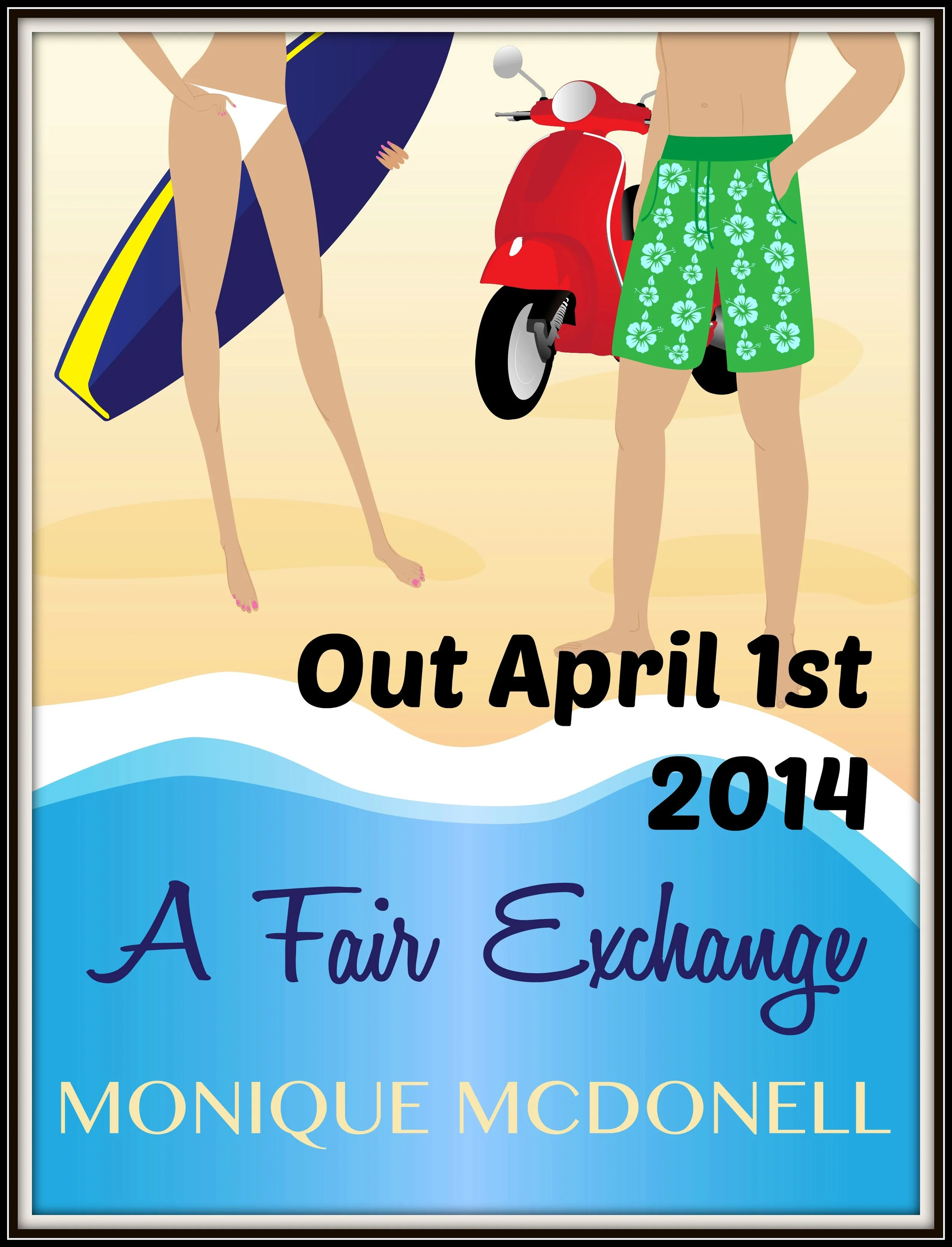 ExcerptIt was not as if he was the first one to mention it. In the past week everyone who had entered my apartment had commented on the shiny new Vespa parked in the middle of the otherwise empty living room. In fact, each and every one of them had imaginatively said “Amelia you have a red Vespa parked in your living room!” And they all said it in a tone that implied I might not have noticed, as if it may have magically appeared there.How could I not notice a vehicle parked in what was otherwise an empty room?What amazed me was that the Vespa was what they chose to comment on.Not that Nick had dumped me, after ten years, for a twenty-one year-old. Nor that he had moved out, taking basically all the furniture and leaving me with a great view over the beach and an enormous mortgage.No one even commented about the fact that I, in turn, had quit the fabulous job that had always meant way too much to me.No, they commented on the Vespa.What I could not understand though was why it hadn’t bothered me until right then, when Matthew Blue commented. And when he did comment, why had I collapsed into this embarrassing sea of tears?How had this happened? How had I become this sobbing pathetic figure of womanhood? And more importantly how had I ended up thirty-six and alone?Didn’t I used to have so much potential? Everyone had said so, hadn’t they?“Amelia Armstrong is something special.”I was one of those shiny young girls who took risks and dreamed big. I was one of the smart ones who knew what she wanted and went after it. I was one to watch.If I hadn’t been that kind of a girl I would never have met Matthew all those years ago. A different girl would not have found herself, on the other side of the world, at sixteen, staring into his dark and dreamy eyes.So where was that girl right now, I wanted to know? And how had a girl with so much potential gotten it so horribly wrong?
ExcerptIt was not as if he was the first one to mention it. In the past week everyone who had entered my apartment had commented on the shiny new Vespa parked in the middle of the otherwise empty living room. In fact, each and every one of them had imaginatively said “Amelia you have a red Vespa parked in your living room!” And they all said it in a tone that implied I might not have noticed, as if it may have magically appeared there.How could I not notice a vehicle parked in what was otherwise an empty room?What amazed me was that the Vespa was what they chose to comment on.Not that Nick had dumped me, after ten years, for a twenty-one year-old. Nor that he had moved out, taking basically all the furniture and leaving me with a great view over the beach and an enormous mortgage.No one even commented about the fact that I, in turn, had quit the fabulous job that had always meant way too much to me.No, they commented on the Vespa.What I could not understand though was why it hadn’t bothered me until right then, when Matthew Blue commented. And when he did comment, why had I collapsed into this embarrassing sea of tears?How had this happened? How had I become this sobbing pathetic figure of womanhood? And more importantly how had I ended up thirty-six and alone?Didn’t I used to have so much potential? Everyone had said so, hadn’t they?“Amelia Armstrong is something special.”I was one of those shiny young girls who took risks and dreamed big. I was one of the smart ones who knew what she wanted and went after it. I was one to watch.If I hadn’t been that kind of a girl I would never have met Matthew all those years ago. A different girl would not have found herself, on the other side of the world, at sixteen, staring into his dark and dreamy eyes.So where was that girl right now, I wanted to know? And how had a girl with so much potential gotten it so horribly wrong?
*
To go in Monique's draw to win a $25 Amazon Giftcard click on the link:Rafflecopter link for $25 Amazon Giftcardhttp://www.rafflecopter.com/rafl/share-code/M2YwZjViZmMyZGMyMmRjY2JjNTE1NDU3Mzg3NjgwOjA=/
*
Now let's find out about Monique's reading habits ... 1. Which books do you most vividly remember from your childhood?There was a book called The Littlest House that they had in my infants school library, I borrowed it every week in Kindergarten/Prep. I also read my way through the entire Beatrix Potter collection that year. I really love the “What Katy Did” series when I was about ten and all the Astrid Lindgred books. 2. Who are your three most favourite literary characters? Tell us what you love about each of them.That’s tough! I love Jo from Little Women, she was such a kind soul who was mis-judged by her slightly tough exterior. 3. Who is your favourite literary villain? Why? I’m not such a fan of the villain.I am going to with Daniel Cleaver from Bridget Jones’ Diary (as I write chicklit/rom coms). He’s more of a bad boy than a total villain but he does do some pretty mean stuff. My all time favourite villain is Cruella De Ville. So magnificently evil! 4. If you could invite any five writers to a cosy dinner party who would you ask and why?How fun! Well you make my list Pam, because I need a friend if I’m having all these famous writers over. I’m going to invite Stephen King because his book On Writing is a writer’s bible so we might all learn something, I’m inviting Barbra Taylor Bradford because I loved her books when she was younger and her branding and marketing is extraordinary and I would like to hear more about the private island she bought with her earnings. I really like Amy Tan’s novels and she’s in a writer’s rock band with Stephen King so that might make the table cohesive. Finally, I’m inviting Bella Andre because her perspective on becoming a mega-successful indie author would be fascinating. That’s five! Poor Stephen is going to have to endure a night with the ladies. (Thanks for the invite Monique, I'm in!) 5. What book has made you laugh out loud?Janet Evanovich’s books have definitely. There were moments in The Rosie Project too. 6. What book, or scene from a book, has made you cry?I’m a crier, everything makes me cry. I’ll go with The Littlest House because the ending of that book still gives me happy tears. 7. Where and when do you do most of your reading?Well I read at home a lot, in bed at night or in my favourite wing chair. I also read in the car (not when driving of course) when I’m waiting at my daughter’s clarinet lessons or netball training or whichever activity I’m waiting around at. 8. Is there a genre of book you’d never read? Why?Never say never. I’m not a fan of sci-fi/speculative fiction but then a friend pointed out that The Time Traveller’s Wife falls loosely under the banner and I liked that a lot. I prefer my fiction more reality based so a hint or magic is fine but I don’t really want to head off to an entire fantasy world. 9. Can you give us a mini-review of a book you’ve recently read and enjoyed?I really enjoyed Hindsight by Australian author Sarah Belle. It’s a story about a woman who wakes up married to the same man in the same house but instead of it being now it’s the 1940’s. It was an interesting look at how marriage has changed and how technology has changed it, sometimes for the better and sometimes not. 10. What are the top three books in your TBR pile?My pile is low and needs topping up. This week I’m reading The President’s Hat. I really love books by South American writers for the language and beautiful descriptions but I haven’t read any lately. I also keep meaning to read The Happiest Refugee by Ahn Do and Rob Lowe’s autobiography. Thanks for visiting Flying Pony Monique and good luck with A Fair Exchange!***
You can buy Monique's books here:
***
1st April
Rural Fiction Author Fleur McDonald, Author of Crimson Dawn
This week I welcome to the blog Fleur McDonald who has just released her fifth Rural Fiction novel Crimson Dawn, following the success of Red Dust, Blue Skies, Purple Roads and Silver Clouds. Fleur is the real deal when it comes to Rural fiction - she lives and works on an 8000 acre station in Western Australia. 
CRIMSON DAWN
Fleur McDonald
Laura Murphy will need to call on all her grit and determination to retain her beloved farm... But will her fierce independence close her off to the possibility of love?
Since inheriting Nambina, the property that’s been in her family for generations, Laura Murphy has worked wonders. Rather than just focusing on farming, she has set up a successful school teaching women the basics of managing a property.
But the notoriously self-reliant Laura is lonely and still scarred by a tragedy from her past. She’s also grappling with the hostility of her former best friend, Meghan Hunter. The fact that Laura’s ex-boyfriend Josh is Meghan’s brother only makes thing worse.
When a solicitor contacts Laura saying he’s representing clients who may have a claim over Nambina, Laura’s entire world is turned upside down. In holding on to the property she’s worked so hard to build, Laura realises she needs to reach out to friends and family, or risk losing everything...
Celebrating strength in the face of adversity, as well as the enriching power of love, CRIMSON DAWN is Fleur McDonald’s fifth novel with Allen and Unwin, since being discovered via Friday Pitch.
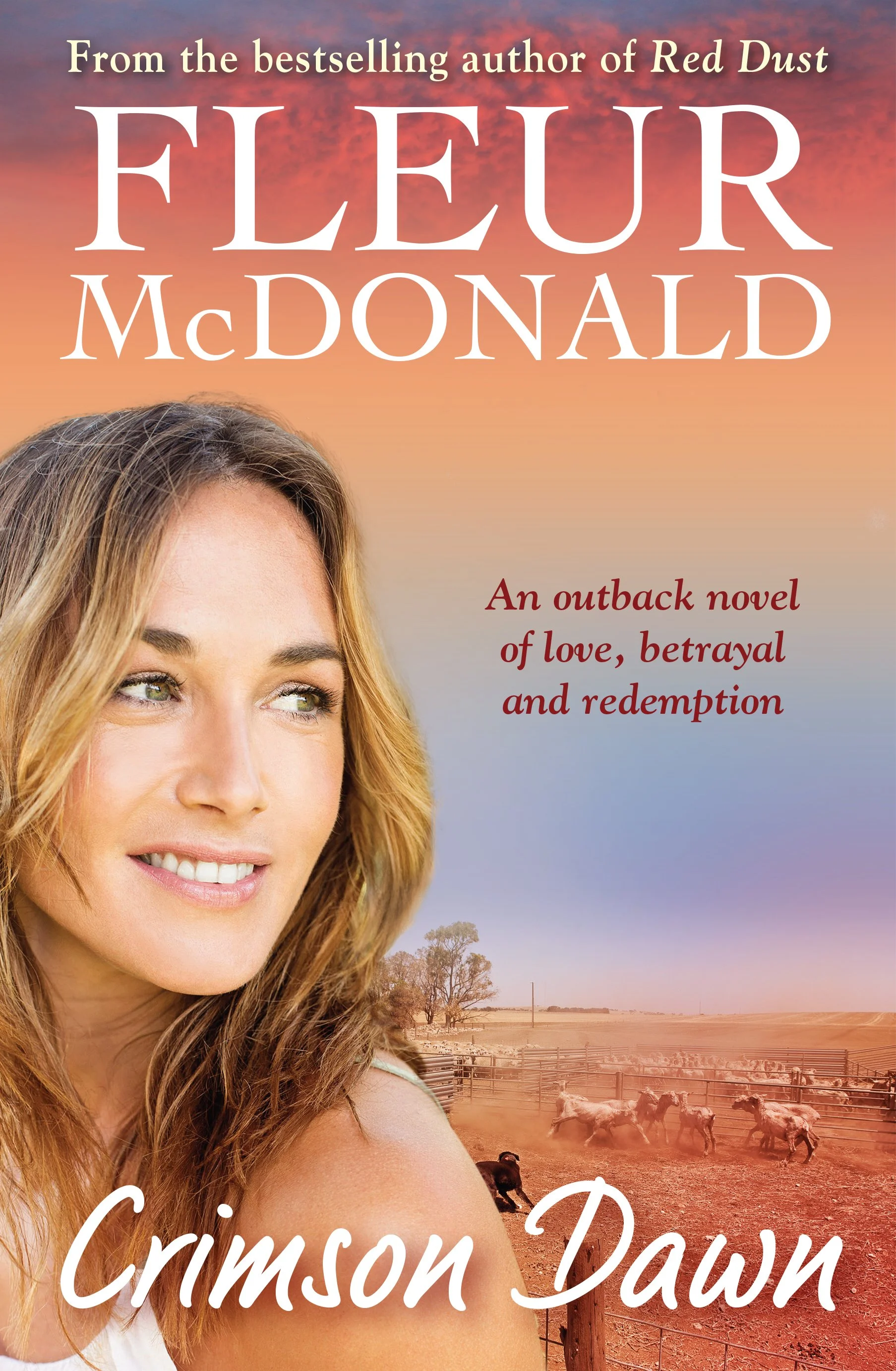
*
1.Which books do you most vividly remember from your childhood?All of the Enid Blyton books. The Sweet Valley High series was another favourite. I had shelves of both. James Herriot was also another favourite – I can quote spiels of his books! 2.Who are your three most favourite literary characters? Tell us what you love about each of them.George from the Famous Five. I used to think I was very much like her when I was a kid – I was such a Tomboy! I LOVE Harry Bosch who was created by Michael Connelly. In fact I’m pretty sure I could marry him, if he asked. He’s flawed but with such a sense of truth, warped as his vision of it maybe. Beattie Blaxland from Kimberley Freeman’s Wildflower Hill. She was a strong and independent woman, not caring what anyone thought of her back in the 1920/30s. She was successful and although I am nowhere near being a feminist I ADORE these types of characters and wish I could be like them. 3. Who is your favourite literary villain? Why?I think Harry Bosch also fits this category. Like I said before, he’s flawed – massively so, but he’s a good villain! 4. If you could invite any five writers to a cosy dinner party who would you ask and why?Ooh, I think my answer to these types of questions change every time! Michael Connelly as number one. He’s my all time favourite author and I’d love be able to pick his brains. John Grisham – he’s such a private person and I think his books, especially The Pelican Brief and The Firm were amazing works. I’d love to learn from him. Dannielle Hawkins. I reckon we’d get a long like a house on fire and we’d need someone to make us laugh in amongst the seriousness of it all! James Herriot – he was such an incredible story teller. And lastly, although he isn’t a writer, Richard Fiedler – host of ABC’s Conversations, who I find so incredibly interesting. I think he would take control of the whole night and have us telling stories there was no way we could have imagined sharing. 5.What book has made you laugh out loud?Danielle Hawkins and Jennifer Crusie books. Just love them; they make me feel good and they both write with a vivid senses of humour. 6. What book, or scene from a book, has made you cry?Love Anthony by Lisa Genova. Her writing is so real. 7. Where and when do you do most of your reading?Oh I read anywhere! I’ve always got a book with me. But the kids have been known to slide notes under the loo door when I’ve been in there too long, caught up in a book! 8. Is there a genre of book you’d never read? Why?I’m not that keen on Sci Fi. Can’t really tell you why, just not that interested in it. See, I also have to admit I’m not a Dr Who or Star Trek fan, like so many, so that might explain it. 9. Can you give us a mini-review of a book you’ve recently read and enjoyed?Chocolate Cake for Dinner by Danielle Hawkins. An hysterically funny, down to earth read. 10. What are the top three books in your TBR pile? Tracking North by Kerry McGinnis Safe Harbour by Helene Young The Tea Chest by Josephine Moon
***
Thanks Fleur and have fun on the book tour. Further details about Fleur can be found at www.fleurmcdonald.com Connect with Fleur:Facebook: https://www.facebook.com/FleurMcDonaldAuthorAnd on Twitter: @fleurmcdonald
***
28th March 2014Rural Fiction Author Charlotte Nash Talks About her Reading LovesI've had a great response to last week's post about Rural Fiction writing in Australia - thanks to all those who dropped by,commented and shared. Kicking off my series on Rural Fiction Writers On Reading this week is my stable mate at Hachette, Charlotte Nash.  Charlotte had huge success last year with her debut novel Ryder's Ridge and has followed up with what I'm sure will be another winner, Iron Junction released yesterday
Charlotte had huge success last year with her debut novel Ryder's Ridge and has followed up with what I'm sure will be another winner, Iron Junction released yesterday 
Iron Junction
Overwhelmed by her family's expectations, Dr Beth Harding leaves Sydney behind and takes a locum job in the mining town of Iron Junction. With tensions in the mine running high, and feeling like an outsider, Beth is soon convinced the move was a huge mistake. That is, until she meets Will, who could make the difference between her leaving or staying.
For Will Walker, working on his father's cattle farm was never the life he wanted. Instead, he s traded a broad-brim for a hard hat and headed out to the mines. Iron Junction seems like just another gig in the long road that s taking him further from home. But in the independent, fly-in, fly-out life, he hadn't counted on meeting Beth on an isolated Pilbara road.
Finding each other forces Will to face his past, just as Beth confronts her future. With so much at stake, will they be brave enough to love each other despite everything that stands in their way?
*
1. Which books do you most vividly remember from your childhood?Black Beauty, which my father read to me. Patricia Leitch's Jinny series and Elyne Mitchell's Silver Brumby series. I was a little horse mad, as you can see. I also remember John Brown, Rose and the Midnight Cat, although I wasn't sure if I liked it or not! I didn't understand the sentiment until I was older, but I understood my mother loved it, which made me want to understand it.2. Who are your three most favourite fictional book characters? Tell us what you love about each of them.Gah ... only three...All right, in no particularly order ... number one would be Rupert Campbell-Black from Jilly Cooper's Rutshire Chronicles. A classic cad, but the long arc of his character is fascinating, as is the ability to love him and loathe him simultaneously. He entered my reading early in my teenage years, and the impression has never left.Another early memory is Jinny (from the above-mentioned Patricia Leitch series) – a favourite character from my childhood reading. She had such adventures and her horse had a thread of Celtic magic that brought delicious fantasy into the edges of the story. Her family moved to the mysterious Scottish moors (which seemed magical rather than bleak), and I think I fancied I'd like such a move, and I imagined that my own horse and I had the same adventures Jinny did. She also had to rely on herself much of the time, which made a deep imprint on me – she had courage and stood up for what she loved, even when she was different to the other children around her.Finally, I'd pick Y.T. from Neal Stephenson's Snow Crash, who has stuck with me as a no-nonsense, independent female character whose arc was unusual and not what I expected. In citing these three, I acknowledge the multitude of omissions. 3. Who is your favourite literary villain? Why?I'm going to stray into graphic novel territory and say Adrian Veidt (Ozymandias) from Watchmen. The complexity of his character and motives is clever and intriguing. The boundary between villain and anti-hero at play, as I would argue is true of Rorschach from the same story. 4. If you could invite any five writers to a cosy dinner party who would you ask and why?Neal Stephenson, because I think his fiction is amazing.Kim Stanley Robinson, because I find him such an interesting person, and such a keen observer of the real way of things in his fiction.Jilly Cooper, because I grew up with her stories and I think she'd be wickedly funny in person.John Ajvide Lindqvist, because I saw him at BWF in 2007(?) and he was both funny and fascinating.Michael Crichton, because I can't forget a writer whose work I followed for such a long time. Sadly, he's no longer with us, but his stories and ideas will always be with me.5. What book has made you laugh out loud?My writer friend Rebekah Turner's Chaos series (Chaos Born, Chaos Bound) always makes me laugh out loud. They're contemporary fantasies with a sassy anti-heroine who's always in scrapes, and with bawdy and wicked sense of humour. The situations and one-liners tickle my funny bone. 6. What book, or scene from a book, has made you cry?Most recently, 'The Lark and the River' from Kim Wilkins' The Year of Ancient Ghosts. It's actually pretty hard to get me to cry, and that story hits the bittersweet spot perfectly. 7. Where and when do you do most of your reading?My reading for pleasure these days is either before bed at night, or in long blocks on weekends or holidays. However, if I'm onto a really good book, I have been known to sneak time whenever I can to just read a few more pages. 8. Is there a genre of book you’d never read? Why?The question might be moot ... I've already read just about every genre I can think of, and I don't judge books on the basis of their genre label. I'm more the kind of person who will avoid certain themes in fiction – for instance, I don't usually want to read depressing real-world stories of abuse and neglect (enough of that in real life; I read to be uplifted), and I'm over medieval high fantasy for the moment. Having said that, a recommendation is often enough to start me on something I might have otherwise avoided. 9. Can you give us a mini-review of a book you’ve recently read and enjoyed?I read Salvage by Jason Nahrung when I was on a retreat late last year, trying to finish my next manuscript. It's superb at capturing emotional conflict between people, and has that intriguing juxtaposition of gothic vibe in an Australian setting. It's also a quick read, great for when you keep reading it in favour of other things you should be doing! 10. What are the top three books in your TBR pile?I hesitate to add here that the TBR pile is quite fluid, but here's the top three things in it. I just finished a book, so one of them is going to be picked up next.Three by Ted DekkerIlium by Dan SimmonsWool by Hugh Howey
***
Thanks to Charlotte for visiting Flying Pony.You can connect with Charlotte here:Website: http://charlottenash.netFacebook: https://www.facebook.com/AuthorCharlotteNashTwitter: @CharlotteNash79 And happy reading!
***
March 19: A Reader's Guide To Australian Rural Fiction
Over the next few week's I'll be featuring a number of Australia's Rural Fiction Writers on my blog in the Writers on Reading Series. So today I thought I'd give you a quick rundown on the current state of play on Rural Fiction. 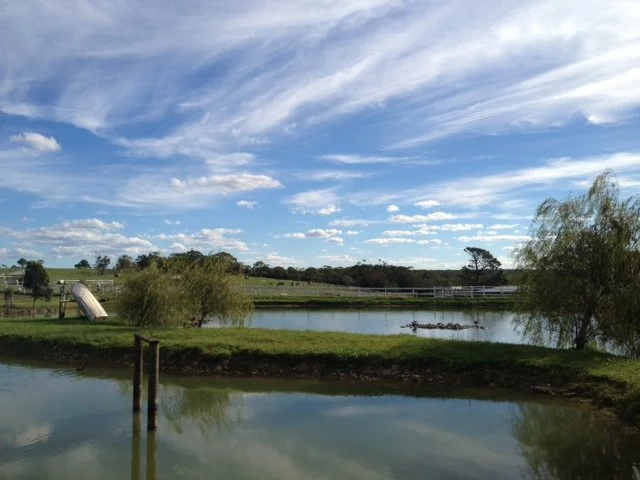 So, what is Rural Fiction anyway?Well, as the label implies it's a genre firmly located in a rural setting. Australia has had a long history of bush narratives with writers like Banjo Patterson and Henry Lawson and much later books like A Town Like Alice, All The Rivers Run, and The Thornbirds continuing the trend.Contemporary Rural Fiction became popular after the enormous success of the Queen of the genre Rachael Treasure published her first novel, Jillaroo, in 2002. Since then the genre has become more and more popular and despite rumours that the bubble is about to burst it still appears to be popular with readers. The landscape is an important facet in many of these novels, whether it be the red dirt of the far outback or the green, rolling hills of more coastal locations. Many of the current crop of Rural Fiction authors do live on the land and use this as part of their branding - authors such as Fleur McDonald, Nicole Alexander and Fiona Palmer don't just write about the land, they make their living from it.
So, what is Rural Fiction anyway?Well, as the label implies it's a genre firmly located in a rural setting. Australia has had a long history of bush narratives with writers like Banjo Patterson and Henry Lawson and much later books like A Town Like Alice, All The Rivers Run, and The Thornbirds continuing the trend.Contemporary Rural Fiction became popular after the enormous success of the Queen of the genre Rachael Treasure published her first novel, Jillaroo, in 2002. Since then the genre has become more and more popular and despite rumours that the bubble is about to burst it still appears to be popular with readers. The landscape is an important facet in many of these novels, whether it be the red dirt of the far outback or the green, rolling hills of more coastal locations. Many of the current crop of Rural Fiction authors do live on the land and use this as part of their branding - authors such as Fleur McDonald, Nicole Alexander and Fiona Palmer don't just write about the land, they make their living from it. 
Rural fiction novels generally have at least some of the following elements:
- Farm or Small Town Setting
- Sense of Community/Conflict
- Strong Female Protagonist
- Love Interest/Romance
- Animals
- Outsider
- Homecoming
And there are quite a few "sub-genres":
- Romance - Rachael Treasure (also environmental and community issues), Rachael Johns, Jennie Jones, Karly Lane, Cathryn Hein, Mandy Magro, Loretta Hill (Pilbara setting), Charlotte Nash (medical), Margareta Osborn , Barbara Hannay, Alissa Callen
- Romantic Suspense/Crime/Mystery - Helene Young, Bronwyn Parry
- Women's Journey/Romantic Elements - Jenn J McLeod, Fleur McDonald, Yours Truly (Pamela Cook), Fiona McCallum, Tricia Stringer
- Historical - Nicole Alexander
- Environmental - Jennifer Scoullar

- Rural Fiction Writers At the RWA Conference 2013. L to R. back row: Fiona Palmer, Jennie jones, Jennifer Scoullar, Margareta Osborn, Loretta Hill, Alissa CallenFront: Rachael Johns, Charlotte Nash, Cathryn Hein, myself, Helene Young
I'm sure I've missed a few sub-genres and authors and would love to know of any others you have come across.As for me, I became a rural fiction author pretty much by accident. When I decided to take up the nanowrimo challenge in 2009 I hadn't heard of the genre but decided to "write what I know" which was a story set in a place similar to my south coast property and including horses. Fortunately, Hachette were looking for something rural by the time I submitted Blackwattle Lake in 2011 as part of the QWC/Hachette Manuscript Development Program, and it was published in December 2012. My second novel, Essie's Way (also rural with both romantic and historical elements) was published in December 2013.What I love about this genre is not just the gorgeous settings but the strong women who feature as the protagonists and the family/community relationships that are explored along with the romance.I've featured a number of the writers mentioned here before but am looking forward to finding out about their reading habits, literary loves and favourite characters in the coming weeks.I hope you'll join me.
***
February 18
What I'm Listening To, Watching and Reading This Week
As you may have noticed I haven't been doing much blogging lately. Call it inertia, procrastination, writer's block or whatever other labels are out there for basically doing nothing - my own current label is, in the words of Julia Cameron (author of The Artists' Way) "filling the well". Basically this means I'm taking some time out to chill, read, watch TV and see what inspiration I can find.So this week I'd thought I'd share a few of the articles I've been reading on the net, along with some of music, books and other items of possible interest. So here goes ...What I'm listening to ...You may have picked up from the post before last I've become addicted to the TV show Castle. Okay, so I know it's cheesy at times and it doesn't pay to think about the plot lines too hard but I love the characters, their backstories, the sometimes quirky crime stories, and as much as I've always professed NOT to love Romance I have to admit this one has reeled me in. Another thing I love about the show (apart from Beckett's clothes and hair!) is the music they use in background tracks, which is how I came across Andrew Belle. He's a Chicago based singer songwriter who writes songs with lovely melodies and contemplative lyrics. Here's a sample of his work, In my Veins:https://www.youtube.com/watch?v=q0KZuZF01FAWhat I'm watching ...I also caught a glimpse this week of Never Tear Us Apart, the miniseries about Australian 80's music legends, INXS. My 18-year-old daughter was watching it - loving the music I might add - and it transported me straight back in time to long nights spent sweating it out in crowded pubs being blown away by the magnetism of Michael Hutchence. Such a waste of talent and life. Here's a reminder of Michael on stage:https://www.youtube.com/watch?v=Vr-I5xX_BFkWhat I'm Reading ...I've found a couple of good articles on writing and creativity you might be interested in. The first is from Chuck Wendig who writes over at the Terrible Minds blog. Chuck's reminder that The days you don’t want to get out of bed are the days you must get out of bed applies to more than just writing. I especially love this line from his post: Writing is the act of doing. Surviving. Living. Being. I've printed the post out and hung it on the corkboard above my desk so that on those days when I really don't feel like writing I will nevertheless sit on my backside and write. Here's a link to the full post:http://terribleminds.com/ramble/2014/02/11/the-days-when-you-dont-feel-like-writing/And here's a link to a great post about a group of people who gave up their day jobs to follow their dreams:http://www.buzzfeed.com/laraparker/inspiring-stories-of-people-who-left-normal-life-and-embaOn the book front I've started reading Burial Rites by Stella Prize listed author Hannah Kent. Set in Northern Iceland in 1829 it's the story of Agnes Magnusdottir, condemned to death for her part in the brutal murder of her lover.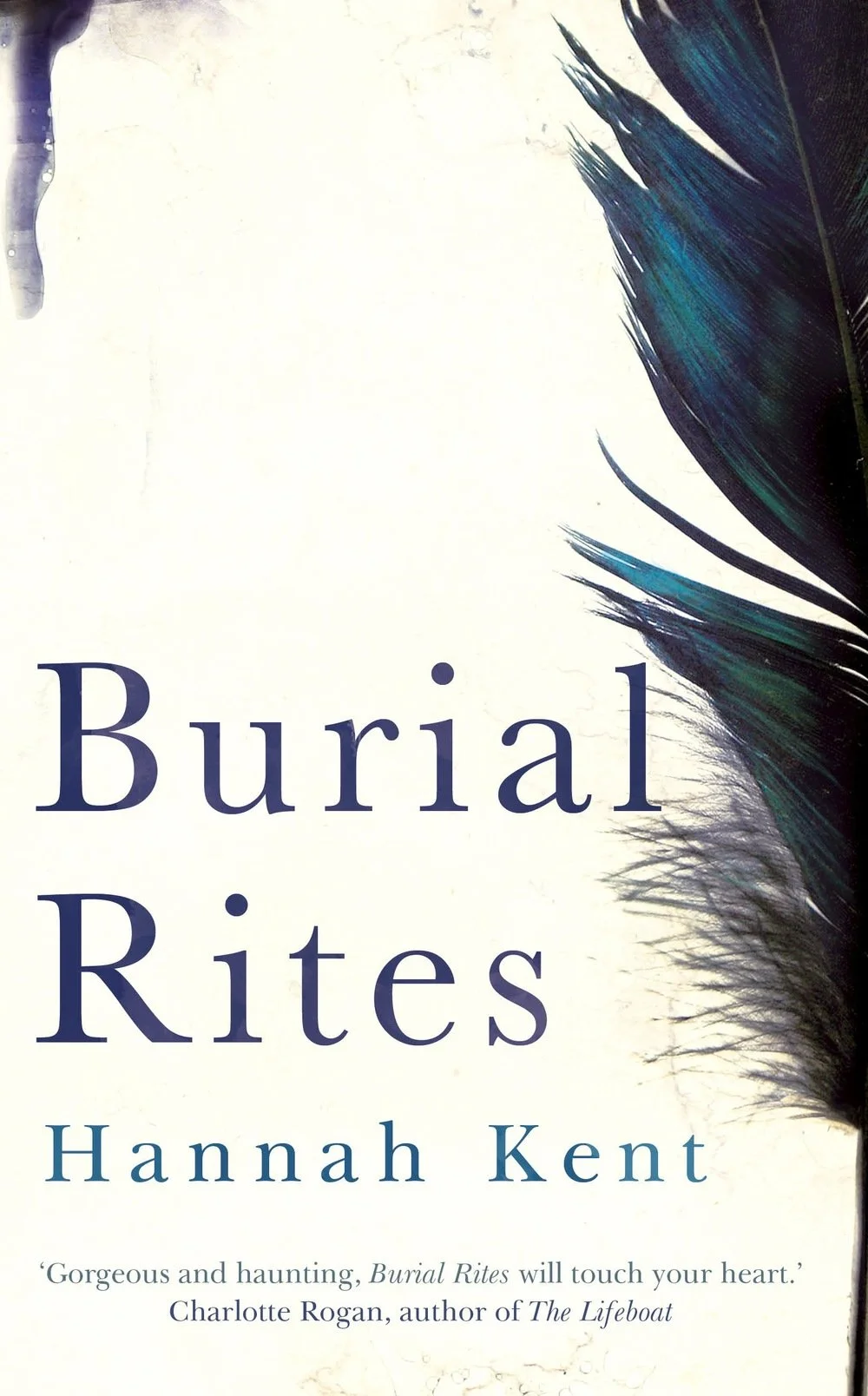 I just love the opening lines of the Prologue: They said I must die. They said that I stole the breath from men, and now they must steal mine. I imagine, then, that we are all candle flames, greasy-bright, fluttering in the darkness and the howl of wind, and in the stillness of the room I hear footsteps, awful coming footsteps, coming to blow me out and send my life up away from me in a grey wreath of smoke.That's it for now.Would love to hear what you're listening to, reading and watching.
I just love the opening lines of the Prologue: They said I must die. They said that I stole the breath from men, and now they must steal mine. I imagine, then, that we are all candle flames, greasy-bright, fluttering in the darkness and the howl of wind, and in the stillness of the room I hear footsteps, awful coming footsteps, coming to blow me out and send my life up away from me in a grey wreath of smoke.That's it for now.Would love to hear what you're listening to, reading and watching.
February 17
This week I'm over at Jenn McLeod's blog having a yarn at the bar.Jenn is the author of A House For All Seasons and the soon to be released follow up The Simmering Season. I just love her gorgeous book covers!Come and join us!http://www.jennjmcleod.com/bar-yarns-w-author-pamela-cook/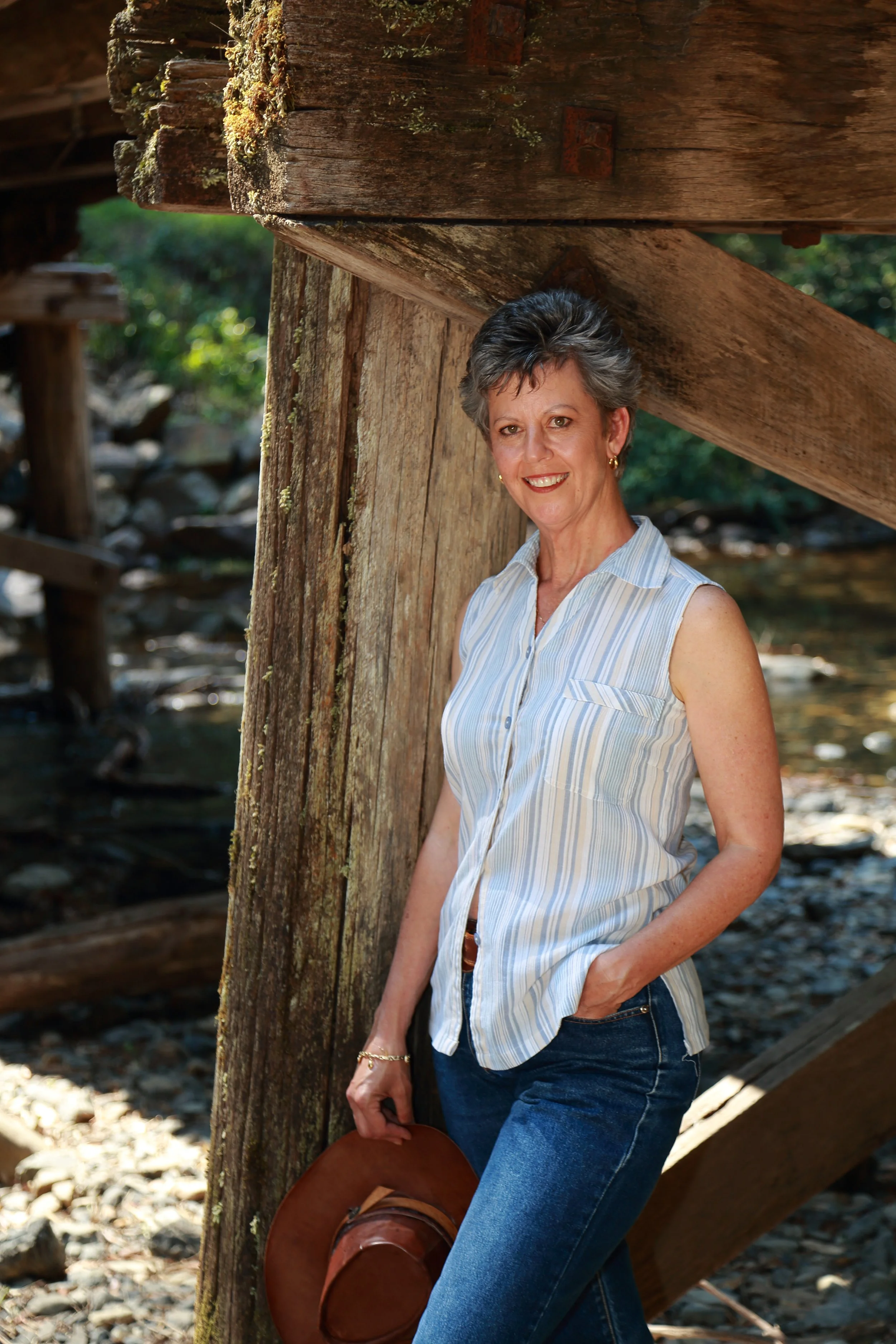

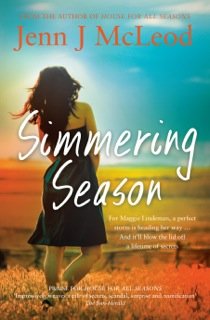
January 27
The Writing Process Blog Hop: Writers Reveal Their ProcessIt’s great to be taking part in this blog hop on The Writing Process.Thanks to the lovely Alissa Callen for tagging me. If you missed Alissa's post last week you can find it here and here's more about Alissa:When Alissa Callen isn’t writing she plays traffic controller to four children, three dogs, two horses and one renegade cow who really does believe the grass is greener on the other side of the fence. Her books are characteristically heart-warming, emotional and character driven. Beneath Outback Skies, published by Random House Australia, is available now as an eBook and from May 2014 in print. Down Outback Roads, also published by Random House Australia, will be out in May as an eBook. Alissa loves to connect with readers and can be found online at her website or Facebook. And now for my own responses to The Writing Process questions:1) What am I working on?Since finishing my second novel, Essie’s Way (published in December 2013 by Hachette) I’ve been taking a break but it’s time to get back to the desk and start work again. I have a few vague ideas for a new novel but at this stage I’m just playing around and seeing how they develop. I’m also preparing to teach my first workshop at The NSW Writer’s Centre on February 8 (click here for more information). It’s a one day course designed as a kick start for those who want to write but don’t know where to begin.2) How does my work differ from others of its genre?Both the novels I’ve had published (the first was Blackwattle Lake, also by Hachette) fall into the Rural Fiction genre. They’re set in the south east of NSW and like other novels in this broad genre the setting is an integral part of the story. I guess where my novel differ from many of the others in this genre is that they’re not Rural Romance. I concentrate more on the lives of the female protagonists, what they want to achieve in life, their past and their relationships. There are romantic elements in both novels, particularly in Essie’s Way, but romance isn’t the central focus. Essie also has a historical thread, which may be different from others in this genre.
And now for my own responses to The Writing Process questions:1) What am I working on?Since finishing my second novel, Essie’s Way (published in December 2013 by Hachette) I’ve been taking a break but it’s time to get back to the desk and start work again. I have a few vague ideas for a new novel but at this stage I’m just playing around and seeing how they develop. I’m also preparing to teach my first workshop at The NSW Writer’s Centre on February 8 (click here for more information). It’s a one day course designed as a kick start for those who want to write but don’t know where to begin.2) How does my work differ from others of its genre?Both the novels I’ve had published (the first was Blackwattle Lake, also by Hachette) fall into the Rural Fiction genre. They’re set in the south east of NSW and like other novels in this broad genre the setting is an integral part of the story. I guess where my novel differ from many of the others in this genre is that they’re not Rural Romance. I concentrate more on the lives of the female protagonists, what they want to achieve in life, their past and their relationships. There are romantic elements in both novels, particularly in Essie’s Way, but romance isn’t the central focus. Essie also has a historical thread, which may be different from others in this genre.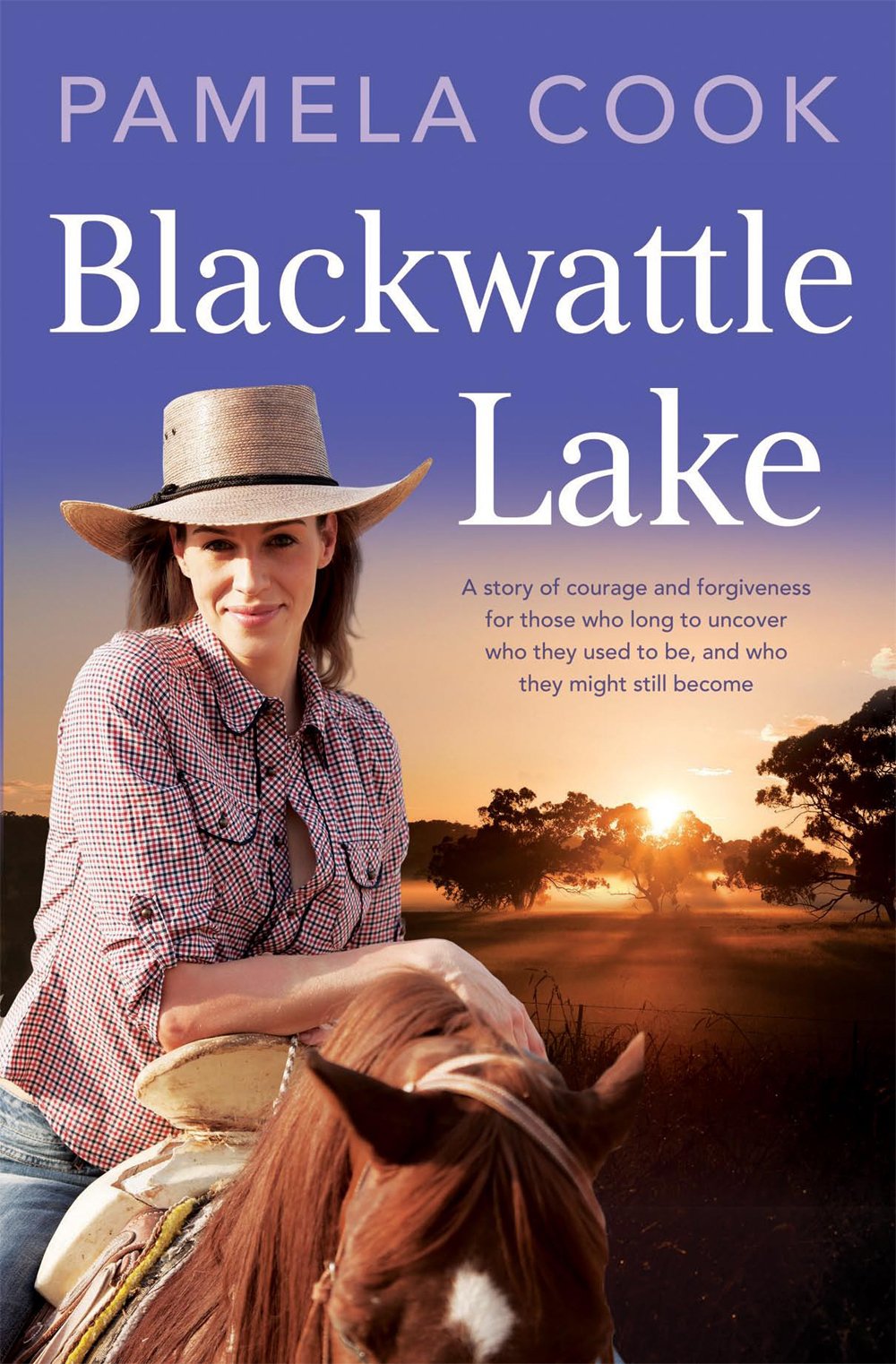 3) Why do I write what I do?My original style of writing was more in the literary fiction line. I fell into writing Rural Fiction almost by accident, having completed it as Nano novel in November 2009 and then submitting it to the Queensland Writers Centre/Hachette Manuscript Development Program in 2011 via which it was accepted for publication. Yay! When I wrote the original draft I hadn’t heard of Rural Fiction but I decided to “write what I know” and since I have horses and spend a lot of time on the south coast of NSW, Blackwattle Lake was the result. I also wanted to write about a feisty, independent woman dealing with her past, as Eve Nicholls does in this story. I really enjoyed writing in this genre and found I was able to immerse myself in the sights and sounds of the country areas I’ve grown to love. So when it came time to write a new novel I went with the same genre, adding a historical thread and a double narrative, which I really enjoyed. I like the idea of doing something a little different with each novel so it will be interesting to see what emerges with the next one.
3) Why do I write what I do?My original style of writing was more in the literary fiction line. I fell into writing Rural Fiction almost by accident, having completed it as Nano novel in November 2009 and then submitting it to the Queensland Writers Centre/Hachette Manuscript Development Program in 2011 via which it was accepted for publication. Yay! When I wrote the original draft I hadn’t heard of Rural Fiction but I decided to “write what I know” and since I have horses and spend a lot of time on the south coast of NSW, Blackwattle Lake was the result. I also wanted to write about a feisty, independent woman dealing with her past, as Eve Nicholls does in this story. I really enjoyed writing in this genre and found I was able to immerse myself in the sights and sounds of the country areas I’ve grown to love. So when it came time to write a new novel I went with the same genre, adding a historical thread and a double narrative, which I really enjoyed. I like the idea of doing something a little different with each novel so it will be interesting to see what emerges with the next one. 4) How does my writing process work?Good question! It seems to have changed with each book I’ve written. The first novel I wrote (currently unpublished) took five years and I seemed to be constantly revising parts of it. As I mentioned, Blackwattle Lake was a nano, so the first draft was written in a month and it was revised a few times over the next eighteen months or so. Essie’s Way began as a few fragments I’d written years ago and when my publisher asked me for a synopsis for a new book I hurriedly threw a few ideas together and then wrote the first draft in about four months, revising it in the following three months. It was pretty intense but I have to say that writing fast seems to work for me (you can read my guest post for Writing Novels in Australia on this method here). I’m an all or nothing kind of person and it seems to be the same for my writing – it’s either full on or zero!If you'd like to connect with me:Website: www.pamelacook.com.auFacebook: www.facebook.com/PamelaCookAuthorTwitter: @PamelaCookAUNext week three wonderful writers share their thoughts on the writing process:Jennifer ScoullarJennifer is a lapsed lawyer who has always harboured a deep appreciation and respect for the natural world. Her house is on a hill-top, overlooking valleys of messmate and mountain ash. A pair of old eagles live there too. Black-shouldered wallabies graze by the creek. Eastern Spinebills hover among the callistemon. Jennifer lives with her family on a beautiful property in the mountains, that was left to her by her father. Horses have always been her passion. She grew up on the books of Elyne Mitchell, and all her life she’s ridden and bred horses, in particular Australian Stock Horses. She has three published novels. Wasp Season (Sid Harta 2008) Brumby’s Run (Penguin 2012) and Currawong Creek (Penguin 2013) Billabong Bend will be published by Penguin in May 2014.Website - http://jenniferscoullar.com/Facebook - https://www.facebook.com/AuthorJenScoullarTwitter - https://twitter.com/JenScoullarMonique McDonellMonique is an Australian author who writes contemporary women's fiction including chick lit and romance. She lives on Sydney's Nothern Beaches with her husband and daughter, and despite her dog phobia, with a dog called Skip. Monique's first novel Mr Right and Other Mongrels was released as an e-book in May 2012 and a paperback in June. Hearts Afire, her second novel was released in October 2012 and Alphabet Dating in May 2013. Building Attraction was released in late 2013 and Monique is busily working on her next flirty romance.Website: http://moniquemcdonell.weebly.com/blog.htmlFacebook: https://www.facebook.com/MoniqueMcDonellAuthorTwitter: @MoniqueMcDonellJenn McLeodJenn J McLeod writes Australian contemporary fiction about friendship, family and small country towns keeping big secrets. Her Seasons Collection of four novels (with Simon & Schuster) will keep her busy until 2016 - at least!Website: www.jennjmcleod.comFacebook: https://www.facebook.com/JennJMcLeod.BooksTwitter: @JennJMcLeod
4) How does my writing process work?Good question! It seems to have changed with each book I’ve written. The first novel I wrote (currently unpublished) took five years and I seemed to be constantly revising parts of it. As I mentioned, Blackwattle Lake was a nano, so the first draft was written in a month and it was revised a few times over the next eighteen months or so. Essie’s Way began as a few fragments I’d written years ago and when my publisher asked me for a synopsis for a new book I hurriedly threw a few ideas together and then wrote the first draft in about four months, revising it in the following three months. It was pretty intense but I have to say that writing fast seems to work for me (you can read my guest post for Writing Novels in Australia on this method here). I’m an all or nothing kind of person and it seems to be the same for my writing – it’s either full on or zero!If you'd like to connect with me:Website: www.pamelacook.com.auFacebook: www.facebook.com/PamelaCookAuthorTwitter: @PamelaCookAUNext week three wonderful writers share their thoughts on the writing process:Jennifer ScoullarJennifer is a lapsed lawyer who has always harboured a deep appreciation and respect for the natural world. Her house is on a hill-top, overlooking valleys of messmate and mountain ash. A pair of old eagles live there too. Black-shouldered wallabies graze by the creek. Eastern Spinebills hover among the callistemon. Jennifer lives with her family on a beautiful property in the mountains, that was left to her by her father. Horses have always been her passion. She grew up on the books of Elyne Mitchell, and all her life she’s ridden and bred horses, in particular Australian Stock Horses. She has three published novels. Wasp Season (Sid Harta 2008) Brumby’s Run (Penguin 2012) and Currawong Creek (Penguin 2013) Billabong Bend will be published by Penguin in May 2014.Website - http://jenniferscoullar.com/Facebook - https://www.facebook.com/AuthorJenScoullarTwitter - https://twitter.com/JenScoullarMonique McDonellMonique is an Australian author who writes contemporary women's fiction including chick lit and romance. She lives on Sydney's Nothern Beaches with her husband and daughter, and despite her dog phobia, with a dog called Skip. Monique's first novel Mr Right and Other Mongrels was released as an e-book in May 2012 and a paperback in June. Hearts Afire, her second novel was released in October 2012 and Alphabet Dating in May 2013. Building Attraction was released in late 2013 and Monique is busily working on her next flirty romance.Website: http://moniquemcdonell.weebly.com/blog.htmlFacebook: https://www.facebook.com/MoniqueMcDonellAuthorTwitter: @MoniqueMcDonellJenn McLeodJenn J McLeod writes Australian contemporary fiction about friendship, family and small country towns keeping big secrets. Her Seasons Collection of four novels (with Simon & Schuster) will keep her busy until 2016 - at least!Website: www.jennjmcleod.comFacebook: https://www.facebook.com/JennJMcLeod.BooksTwitter: @JennJMcLeod
***
December 23rd
A Letter From Loretta Hill, Author of The Girl In The Yellow Vest
Today the lovely Loretta Hill has sent me a letter telling me all about the release of her latest book The Girl In The Yellow Vest.
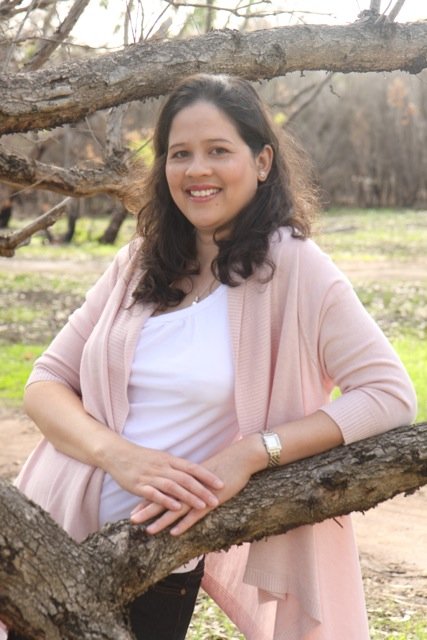
I loved The Girl In The Hard Hat and can't wait to read this latest book from Loretta. Thanks for visiting Flying Pony Loretta and good luck with the new book.
***
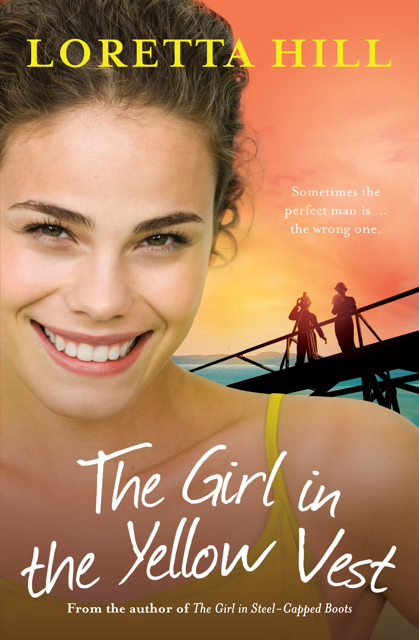
*
Dear Pamela,How are you?I’m just exhausted. Christmas plus school holidays plus book promotions equals more work then I thought I’d signed up for. I was actually supposed to be slowing down this month but every time I think I’m going to make it to the couch something else needs to be done. I wish I could borrow some of my kid’s energy so I could be more productive or at least less tired.Having said that, I did just waste two hours on facebook and email this morning and about ten minutes on twitter. I usually try to limit my social media time otherwise I’d never get anything done. But today is kind of special, so I just went nuts.Why is today special? Well, firstly, I heard that “The Girl in the Yellow Vest” is now on store shelves. So I just had to tell everybody. As you know, the official release date for “The Girl in the Yellow Vest” is Jan 2014. But sometimes they bring out my books out a little earlier so that people can get them as Christmas gifts. I’m so glad that this year they’ve done the same. My wonderful nanny who is over today, looking after the kids, while I’m “supposed” to be writing, took the kids out to Big W to get some art supplies. Ten minutes later I get a picture message on my phone showing my second son holding up my book and grinning. Do you find that seeing your book in stores never gets old? Even when it’s a second hand sighting?The second piece of marvellous news probably more marvellous than the first is that “The Girl in the Yellow Vest” has gone straight to number 1 on itunes today. I can’t tell you how excited I was when my publisher emailed me this morning. Lots of happy dancing and phone calls to hubby and mum and then onto social media…But you know, I’m excited about this book in general. I know you’re not supposed to say this but out of the three books in my FIFO series, it’s my favourite one! Ssshhhh don’t tell anyone I said that. You see, “The Girl in Steel-Capped Boots” was the first one, so I had a lot of angst attached to it and stressing about if anyone was going to like it. And then for “The Girl in the Hard Hat” I had second book insecurities and questions, like… was the first book just a fluke? Third book round, I was more confident that readers were going to like what I come up with, so I guess with this story I just gave myself permission to let go and have fun. And boy did I have fun!A lot like “Essie’s way” (fabulous book I might add!), my latest novel has more than one main character and more than one story arc. In fact, there are four main characters, two major love stories and a lot of comedy, suspense and drama all mixed in with that.My inspiration for this book dates back to my engineering days when I was young, single, footloose and fancy free. I was always up for an adventure. This book is set on a project I worked on myself at Dalrymple Bay in Queensland, the home of a giant coal terminal. This job was very different to others I’d worked on. For a start, the land wasn’t sparse and red, but lush and green. Instead of staying in a donga, I lived in a resort. On the weekdays, I worked on installing a ten story shiploader, on the weekends I’d be out explore the Whitsunday’s Islands or the snorkelling over the Great Barrier Reef. Life was one big sensation of sights and sounds.Maybe this was why I couldn’t pick a main character for this book and only run with their story. There were just too many themes I wanted to explore. It’s definitely a good story for the holidays. Hope you’ll have time to pick up a copy.Hope you have a lovely Christmas and wishing you wonderful things in 2014.Love Lorettaxo
***
Connect With Loretta:Website: https://www.lorettahill.com.auFacebook: https://www.facebook.com/pages/Loretta-Hill-Author/263559140330214
November 27th, 2013
Writers On Reading - A New Blog Series on What Writers Love To Read
I'm starting a whole new blog series where writers will be invited to tell us about their reading habits and influences. And to celebrate the release this week of my new novel I thought I'd kick off the series by having a crack at the questions myself. Anyone who leaves a comment will go in the draw to win a signed copy of Essie's Way.Here's a sneak peek:
A captivating story of family, love and following your heart, from the author of Blackwattle Lake.

In the distance the sea and sky merged into an opaque sheet of black, the only light shed by a sliver of moon. A crack of lightning split the darkness, illuminating the cauldron that was the ocean for just a few moments. She tilted her chin up and stretched forward, straining to see. Something was out there.
Miranda McIntyre thinks she has it all sorted. She s a successful lawyer, she s planning her wedding and ticking off all the right boxes. When searching for something old to go with her wedding dress she remembers an antique necklace from her childhood, but her mother denies any knowledge of it. Miranda is sure it exists. Trying to find the necklace, she discovers evidence that perhaps the grandmother she thought was dead is still alive.
Ignoring the creeping uncertainty about her impending marriage, and the worry that she is not living the life she really wants, Miranda takes off on a road trip in search of answers to the family mystery but also in search of herself.
Ultimately, she will find that looking back can lead you home.
***
Now, on with the "interview" ...1. Which books do you most vividly remember from your childhood?So many! I have very fond memories of being snuggled up in bed reading Snugglepot and Cuddlepie by May Gibbs. It's one of my favourites to this day and I've read it aloud to my three daughters. I also remember a book about an owl, called Uhu, which had beautiful illustrations and a great conservation message. I loved the Moomins - and recently saw this copy in a bookshop so I just had to get it. Loved Seven Little Australians and remember bawling my eyes out when Esther died. I went through a Secret Seven phase too. 2. Who are your three favourite literary characters? Tell us what you love about each of them.The first that comes to mind is Elizabeth Bennet. She's smart, strong, has a great sense of humour, is slightly unconventional and has great taste in men! It's a toss-up between Bilbo and Frodo Baggins for number two but I'll go with Frodo since his story is more detailed and his quest more perilous. I love the way he gets himself and his companions out of such tight spots, is amazed by his own bravery and ingenuity and of course he is loyal to the end. Last but not least I can't go past Fish Lamb from Cloudstreet. He narrates the opening scene so beautifully and the story of the Lamb and Pickles families is really his story, so poignantly told.3. Who is your favourite literary villain and why?I don't tend to read novels with strong villains in them but I am a Harry Potter fan so I'd have to say Voldemort.
2. Who are your three favourite literary characters? Tell us what you love about each of them.The first that comes to mind is Elizabeth Bennet. She's smart, strong, has a great sense of humour, is slightly unconventional and has great taste in men! It's a toss-up between Bilbo and Frodo Baggins for number two but I'll go with Frodo since his story is more detailed and his quest more perilous. I love the way he gets himself and his companions out of such tight spots, is amazed by his own bravery and ingenuity and of course he is loyal to the end. Last but not least I can't go past Fish Lamb from Cloudstreet. He narrates the opening scene so beautifully and the story of the Lamb and Pickles families is really his story, so poignantly told.3. Who is your favourite literary villain and why?I don't tend to read novels with strong villains in them but I am a Harry Potter fan so I'd have to say Voldemort.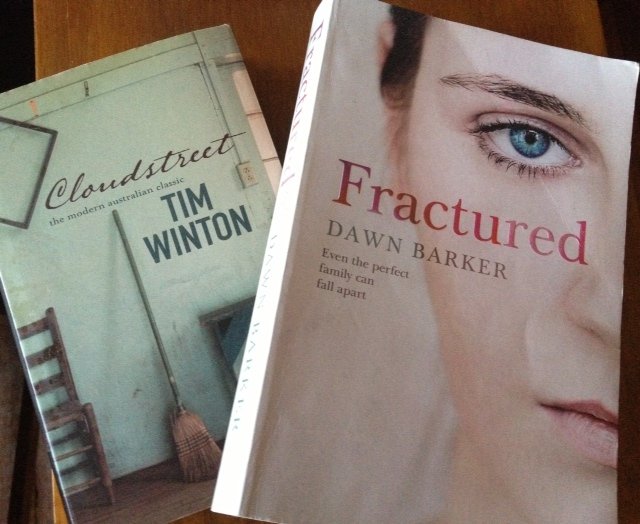 4. If you could invite any five writers - living or dead - to a cosy dinner party who would you ask and why?Tim Winton is my all time favourite so he would be top of the list. He's such a brilliant writer and depicts place and character so beautifully I'd love to pick his brain. Markus Zusak would get an invite - he's such a lovely, easy-going guy and has done so brilliantly with The Book Thief. Sticking with the Australian theme I'd also invite Kate Grenville and Geraldine Brooks - both eloquent women and fantastic writers who write wonderful historically themed novels. And to mix it up a bit I'd include poet Mary Oliver in the hope that she'd do an after dinner reading of one of her wonderful poems.
4. If you could invite any five writers - living or dead - to a cosy dinner party who would you ask and why?Tim Winton is my all time favourite so he would be top of the list. He's such a brilliant writer and depicts place and character so beautifully I'd love to pick his brain. Markus Zusak would get an invite - he's such a lovely, easy-going guy and has done so brilliantly with The Book Thief. Sticking with the Australian theme I'd also invite Kate Grenville and Geraldine Brooks - both eloquent women and fantastic writers who write wonderful historically themed novels. And to mix it up a bit I'd include poet Mary Oliver in the hope that she'd do an after dinner reading of one of her wonderful poems.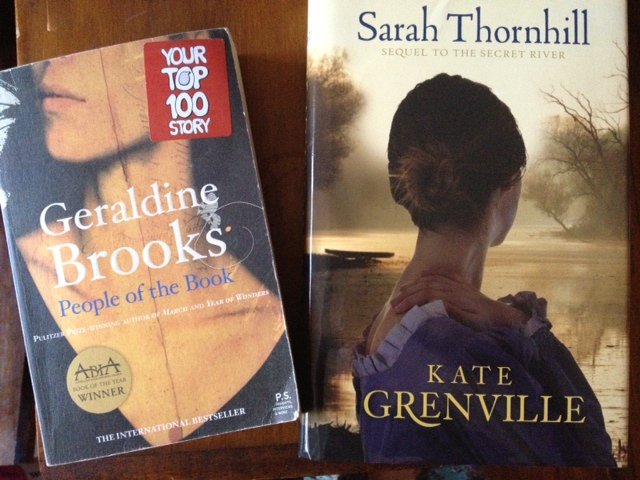 5. What book has made you laugh out loud?Too Many Men by Lily Brett. The main character Ruth Rothwax is so totally anal that she's hilarious and her interactions with her Polish father Edek, who has a less than perfect command of English just cracked me up. The follow-up book, You Gotta Have Balls, where the Edek opens a specialty meatball restaurant in New York is excellent too. The Bridget Jones books also gave me a good long laugh, as did the movies.
5. What book has made you laugh out loud?Too Many Men by Lily Brett. The main character Ruth Rothwax is so totally anal that she's hilarious and her interactions with her Polish father Edek, who has a less than perfect command of English just cracked me up. The follow-up book, You Gotta Have Balls, where the Edek opens a specialty meatball restaurant in New York is excellent too. The Bridget Jones books also gave me a good long laugh, as did the movies.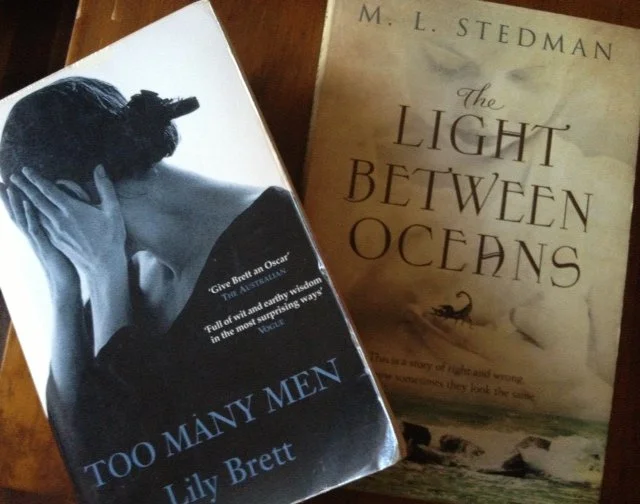 6. What book, or scene in a book, has made you cry?I blubbered through so many parts of The Light Between Oceans, especially the end. And every time I read the Lord of The Rings I bawl my eyes out in the final scene with Frodo and Sam. I recently had more than a lump in my throat when I read Mr Wigg, by the talented Inga Simpson (see below). And the tragic family situation in Dawn Barker's Fractured also made me reach for the tissues.7. Where and when do you do most of your reading?I usually read in bed, the only problem with that being that I sometimes only manage a few pages before falling asleep. Reading during the day feels like too guilty a pleasure but when I'm on holidays I like to chill in a hammock and spend a good few hours escaping between the pages.8. Is there a genre of book you'd never read? Why?As much as I'm a fan of the expression "never say never" I'll never go near the horror genre or true crime. I have way too vivid an imagination and on the odd occasion when I've watched a creepy movie or television show I've lain awake in bed re-living the whole thing and generally don't get to sleep.9. Can you give us a mini-review of a book you've recently read?Mr Wigg, by Inga Simpson, is a beautifully written, character based novel about an old man living alone after the death of his wife. Set in the 1970's with contextual references to the Ashes cricket series, it's a story about loss and love as the main character tends to his beloved orchard, spends time with his grandchildren and remembers his married years with great tenderness. This novel does not have a detailed plot - rather its depth is in the way Simpson depicts Mr Wigg's day-to-day existence in such beautifully wrought language.
6. What book, or scene in a book, has made you cry?I blubbered through so many parts of The Light Between Oceans, especially the end. And every time I read the Lord of The Rings I bawl my eyes out in the final scene with Frodo and Sam. I recently had more than a lump in my throat when I read Mr Wigg, by the talented Inga Simpson (see below). And the tragic family situation in Dawn Barker's Fractured also made me reach for the tissues.7. Where and when do you do most of your reading?I usually read in bed, the only problem with that being that I sometimes only manage a few pages before falling asleep. Reading during the day feels like too guilty a pleasure but when I'm on holidays I like to chill in a hammock and spend a good few hours escaping between the pages.8. Is there a genre of book you'd never read? Why?As much as I'm a fan of the expression "never say never" I'll never go near the horror genre or true crime. I have way too vivid an imagination and on the odd occasion when I've watched a creepy movie or television show I've lain awake in bed re-living the whole thing and generally don't get to sleep.9. Can you give us a mini-review of a book you've recently read?Mr Wigg, by Inga Simpson, is a beautifully written, character based novel about an old man living alone after the death of his wife. Set in the 1970's with contextual references to the Ashes cricket series, it's a story about loss and love as the main character tends to his beloved orchard, spends time with his grandchildren and remembers his married years with great tenderness. This novel does not have a detailed plot - rather its depth is in the way Simpson depicts Mr Wigg's day-to-day existence in such beautifully wrought language. 10. What are you currently reading and what are the top three books in your TBR (to be read) pile?I'm currently reading The Poisonwood Bible by Margaret Kingsolver. Top of my TBR pile is Eyrie by Tim Winton, which I can't wait to get into. Next is The Winter Sea by Di Morrissey (I've never read one of her books and as this one is set on the south coast of NSW where I also set my books I'm curious). And I'm keen to read Burial Rites by Hannah Kent as I've heard so much about it.
10. What are you currently reading and what are the top three books in your TBR (to be read) pile?I'm currently reading The Poisonwood Bible by Margaret Kingsolver. Top of my TBR pile is Eyrie by Tim Winton, which I can't wait to get into. Next is The Winter Sea by Di Morrissey (I've never read one of her books and as this one is set on the south coast of NSW where I also set my books I'm curious). And I'm keen to read Burial Rites by Hannah Kent as I've heard so much about it.
***
What books do you remember from your childhood?Who is your favourite hero or villain?What books have made you laugh out loud or reach for the tissues?I'd love to hear your answers to any of the above questions and remember anyone who leaves a comment will go in the draw to win a signed copy of Essie's Way.
November 25th, 2013
This week I'm making a couple of guest appearances on other blogs, chatting about my about-to-be-released second novel Essie's Way. Thought I'd share the links with you in case you'd like to hear more about it. You can check out the other great things on these lovely ladies' blogs while you're there:Jennie Jones - http://www.jenniejonesromance.com/jenniejromance-blog.htmlLoretta Hill - http://lorettahill.wordpress.com
September 25, 2013
Today I receive the final pages of my new novel Essie’s Way, due for release on December 1st, so i thought this was as good a day as any to share the cover and blurb with everyone. So without further ado …

ESSIE'S WAY is a touching story about finding yourself and learning from past mistakes.
Miranda McIntyre looks like she has it all sorted. A successful lawyer, she is planning her wedding and ticking off all the right boxes. When searching for something old to go with her wedding dress she remembers an antique necklace from her childhood in the shape of a horseshoe encrusted with pearls. When she asks, her mother denies any knowledge of it. But Miranda is sure it exists. Trying to find answers, she discovers evidence that perhaps the grandmother she thought was dead is still alive.
Ignoring the creeping uncertainty about her impending marriage, and the worry that she is not living the life she really wants, Miranda takes off on a road trip in search of answers to the family mystery but also in search of herself.
A reclusive old woman and a handsome horse trainer help show Miranda what she is missing. Ultimately, she will find that looking back can lead you home.
***
15th August 2013I've just returned from a weekend of workshopping, champagne sipping and chatting at the Romance Writers of Australia 2013 Conference in Fremantle, WA. I'd love to tell you that I managed to see even a little bit of Fremantle but the truth is I saw about one block either side of the hotel. But of course that wasn't what I was there for. I was there to learn and meet fellow writers which is exactly what I did.

- Monique McDonell and myself at the Nautical or Nice Cocktail Party

- Destiny Romance Cupcakes.
Being a newbie I really wasn't quite sure what to expect. And being a writer with romantic elements in my fiction rather than full-blooded Romance I wasn't even sure I should be even attending. But any reservations I had soon vanished. I attended with the lovely Monique McDonell starting with a welcome cocktail party thrown by Destiny Romance and continued on Friday night with the Nautical or Nice themed event sponsored by Harlequin Australia. Pirates, sea witches and sailors (along with many other nautical themes) crowded the room and the champagne flowed.

- Romance writer Elizabeth Grange and avid reader and poet Mary Marks-Chapman

- Romance Writers Kaz Delaney and Monique McDonell
Somehow I managed to drag myself out of bed each morning and attend the wonderful workshops and sessions. Friday's was a day long workshop with Kim Hudson, author of The Virgin's Promise, who guided us through the structures and archetypes that can be borrowed from mythology to help structure stories about women's journeys. I also attended some great sessions by Nina Bruhns, Sarah Wendell, Alison Stuart and Laura Bradford, to name a few. Being a new author I found the published authors round table session extremely helpful - learning the ins and outs of the writing life from more experienced writers who were all so generous in sharing information. I came away with a much greater understanding of the business side of being a writer - and with a lot of things on my "to do" list. Another great session was Survivor Submission Island where anonymous scripts were read out loud to a panel of publishers and agents who would hold up a stop sign at the point at which they would stop reading the manuscript. If they wanted to hear more they could hold up a "more" sign and the writer had the opportunity to later submit the manuscript to that person. After each reading there was a panel discussion on the pro's and con's of the pages which was enlightening both in terms of what they're looking for and how to make your first chapter gripping.
 The social highlight of the weekend was the Awards Gala where we consumed yet more champagne and were treated to scrumptious desserts and a magnificent chocolate fountain. Ribbons and awards were given out and there was a refreshing sense of celebration and camaraderie that embraced newbies and more experienced writers. The force that is e-publishing was celebrated along with traditional publishing and the dance floor certainly got a hammering afterwards!Personally it was fantastic to be able to meet so many of the rural fiction authors I had previously only connected with via social media and i look forward to catching up with them again in Sydney next year where the conference will be held.
The social highlight of the weekend was the Awards Gala where we consumed yet more champagne and were treated to scrumptious desserts and a magnificent chocolate fountain. Ribbons and awards were given out and there was a refreshing sense of celebration and camaraderie that embraced newbies and more experienced writers. The force that is e-publishing was celebrated along with traditional publishing and the dance floor certainly got a hammering afterwards!Personally it was fantastic to be able to meet so many of the rural fiction authors I had previously only connected with via social media and i look forward to catching up with them again in Sydney next year where the conference will be held.

- L to R: Fellow Hachette author Charlotte Nash (Ryder's Ridge), Yours Truly, Margareta Osborn (Hope's Road published by Random House)

- L to R. Back: Fiona Palmer, Jennie Jones, Jennifer Scoullar, Margareta Osborn, Loretta Hill, Alissa CallenFront: Rachael Johns, Charlotte Nash, Cathryn Hein, myself, Helene Young
So despite my nervousness about attending the conference it was a fantastic experience which I will definitely be attending again. For now it's back to the writing!
***
August 14 2013
This week it's my pleasure to welcome Barbara Hannay to the blog.

Barbara is a prolific writer with over 40 books to her credit. Her most recent release is Home before Sundown.

Coming home can break your hear... or change your life
For Bella Fairburn, a girl from the bush, her new life in Europe is a dream come true – not least because of her gorgeous French ski-instructor boyfriend. But news of her beloved father’s heart attack brings Bella rushing back to Australia along with her aunt Liz, an acclaimed musician who’s been living in London for the past thirty years. While her father recuperates, Bella seizes the chance to finally prove to him that she’s perfectly capable of taking over until he recovers.
But coming home to Mullinjim is fraught with emotional danger for both Bella and Liz. While Bella is confident she can deal with drought, the threat of bushfires, and cattle bogged in muddy dams, she fears facing her neighbour Gabe Mitchell. Gabe is the man she once hoped to marry, but he’s also the man who broke her heart. For Liz, Mullinjim holds a painful secret from her past that must never be revealed…
In the rugged beauty of the outback, new futures beckon, but Bella and Liz must first confront the heartaches of the past.
*
Thanks for visiting Flying Pony Barbara. Looking forward to reading Home Before Sundown.
***
- What activities (other than writing) get your creative juices flowing?
I find it important to “refill the well” and I have a few favourite ways. I love listening to music (mostly classical), visiting art galleries when I’m in the city – especially when I find paintings that ‘tell a story’. I love reading, of course and watching movies, and I try to include some poetry in my reading choices, because poets are so playful with words and insightful about emotions.Travel to new places is important, too. But perhaps one of the most inspiring things is meeting new people and listening to conversations. Writers are terrible eavesdroppers, but we learn so much… <G>
- What sort of writing routine do you have – disciplined or undisciplined, regular or erratic, focused or easily distracted?
I’m very disciplined about sitting down at the computer every day, and most days I achieve my word count goal, but I will admit to being easily distracted. The internet is a worry. My friends write such interesting emails!
- Do you ever suffer from writer’s block and if so what do you do about it?
Luckily I haven’t been badly blocked very often, and I’m fortunate that my husband is always a ready ear. He’s read everything I’ve written and he understands what I’m trying to achieve, so even if he can’t provide a solution, talking to his sympathetic ear can help, as can getting out in the garden and pulling weeds (we have masses of them here in the wet tropics).Sometimes it just takes thinking time, or re-reading one of my favourite books to get me back on track.Experience helps. I’ve written over 40 books and so I know by now that if I have a problem, there’s probably something wrong with the basics – with my character’s goals, or lack or them, or with motivation or conflict. If those elements are right, the writing usually comes easily.
- Which aspects of the writing life do you most love?
I love writing emotion, so I love writing those scenes, usually in the second half of the book, where the emotional seeds that I’ve sown will pay off. I love scenes writing brimming with conflict and emotional punch.
- Which aspects do you least love (or detest!)?
I don’t enjoy writing synopses, but they’re the sorts of things editors need to help sell the book.
- What books and writers have most influenced your own writing?
Oooh, there are so many, but my favourite authors of women’s fiction and romance are Rosamunde Pilcher (I love everything she’s written), Kate Morton, (The Shifting Fog, The Secret Keeper), Nora Roberts (especially her Chesapeake and Alaskan books), Susan Wiggs, Kristin Hannah, LaVryle Spencer, Jennifer Crusie…
- Can you describe for us your writing process, from getting the original idea to completed manuscript?
My stories always start from an idea… a situation, usually a situation brimming with emotional ramifications: eg, a girl who discovers that the man who raised her is not her biological father (Zoe’s Muster) or a coming home to an awkward reunion (Home Before Sundown), then I work out who the characters are who are about to be plunged into this situation and what their emotional journey will be. I’m not much of a plotter, but I find that once my story’s well underway, Blake Snyder’s Save the Cat is helpful for making sure that everything’s on track.
- Describe your path to publication.
I was teaching Yr 11 English and had to teach a unit of popular fiction when I discovered Mills and Boon. All my life I’d wanted to write, but I hadn’t found the medium that best suited my personality and suddenly I felt that romance and I were a match made in heaven. I had to write a romance of my own straight away. I thought it would be easy, but it took me four and a half years and four rejections before I sold my first book in 1998.Thirteen years and thirty-nine books later, I received an email from an editor at Penguin asking me if I’d be interested in submitting to them, so a new branch of my writing life began.
- What advice would you give to writers who are working towards publication?
Love what you’re doing and write the very best story you possibly can. With self publishing options now, the goal posts are shifting for many writers, but I still believe there’s a lot to learn from working with traditional publishers and an experienced editor. It’s not all about money. But no matter which route you take, if the stories are good enough, the money will come.
*
Connect with Barbara:Website: http://www.barbarahannay.comFacebook: https://www.facebook.com/BarbaraHannayAuthor?hc_location=streamTwitter: @BarbaraHannay
***
July 17 2013
Today I'd like to welcome Heather Garside to the Blog.

Heather's latest release Breakaway Creek is now available as an ebook and in print.

Two city women - a century apart - find love and adventure in the Queensland outback.
Two love stories; two parallel lives; two destinies.
Set in the 19th and 21st centuries, Heather Garside's debut novel is a passionate rural romance of love and its consequences.
Shelley and Emma are separated by time but bound by a dark secret to a place called Breakaway Creek.
Betrayed by her long-term boyfriend, Shelley Blake has fled the city to return to her home town. Her interest in a photograph of her great-great-grandparents is piqued by her family's reticence about the mystery couple, and a search for answers takes her to the cattle station Breakaway Creek.
Here she meets Luke Sherman, a man embroiled in the bitter ending of his marriage and a heart-breaking separation from his two small boys.
Shelley resists an instant attraction to Luke, as neither is ready for a new relationship.
And, while Luke struggles to reclaim his children, Shelley uncovers the truth about her ancestors, Alex and Emma.
A story of racial bigotry and a love that transcends all obstacles takes the reader back to the pioneering days of the 1890s.
Thanks so much for joining me on Flying Pony Heather and congratulations on Breakaway Creek.
*
1.What activities (other than writing) get your creative juices flowing?Listening to music, being outdoors, reading if it’s something that inspires me emotionally. When I was younger and spent many hours on horseback, mustering, I’d use the slow times to plot my stories! 2. What sort of writing routine do you have – disciplined or undisciplined, regular or erratic, focused or easily distracted?I’m not particularly disciplined, unfortunately. I’ve always been erratic about applying myself to writing as my schedule varies so much with the different things I do. It just doesn’t work to try to write to a regular timetable. Once I’m ‘in the zone’, though, I’m very focussed. I’m likely to completely forget what time it is. 3. Do you ever suffer from writer’s block and if so what do you do about it?I have suffered many periods in my life when I haven’t felt like writing. I’m not sure if writers’ block is the correct term for it. If it’s really necessary to write, I think the only way forward is to force yourself to do it.4. Which aspects of the writing life do you most love?There are many things – holding a new book in my hands for the first time… receiving letters or emails from readers who say they’ve loved my story… interacting with other writers… seeing my new cover for the first time… the list goes on.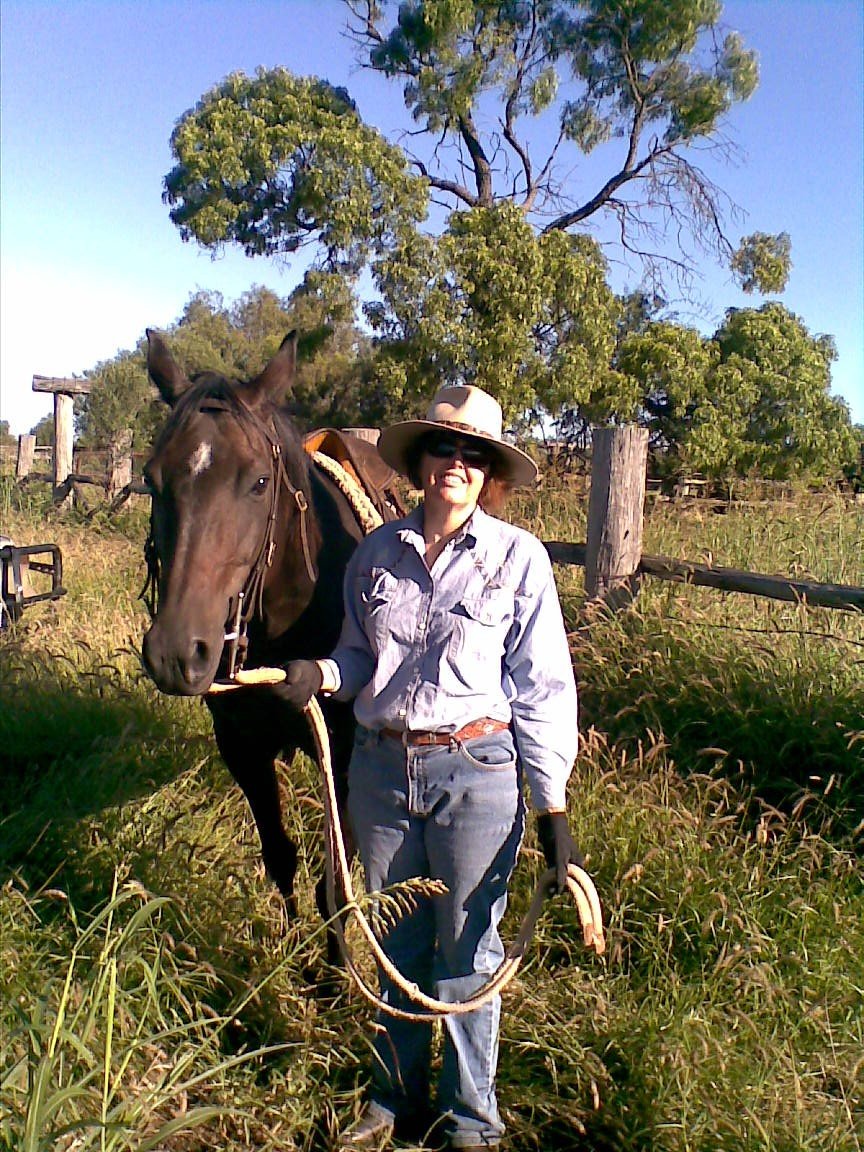 5.Which aspects do least love (or detest!)?The times when I just don’t want to write! I’m also very sensitive about self-promotion as I’m always afraid of annoying people or of seeming too pushy.6. What books and writers have most influenced your own writing? As a teenager I devoured westerns, which I’m sure has influenced my historical stories set in Australia. Then I discovered Georgette Heyer and fell in love with the romance genre. There were all the horse books, too, such as Mary O’Hara’s My Friend Flicka series which I absolutely loved and must read again one day.7. Can you describe for us your writing process, from getting the original idea to completed manuscript?I don’t have any mapped-out process. My first two novels weren’t pre-plotted at all, but I did plot my second two. I’m having trouble with the plotting process of my current WIP and I really need to apply myself to it! One thing I do is lots of revisions and re-writing as I’m a bit of a perfectionist. 8. Describe your path to publication. I finished my first novel at the age of twenty-one and after submitting to numerous publishers, including one who said they’d very nearly accepted it, I self-published. I started another novel immediately but having my children got in the way and I didn’t write for many years. In 2007 The Cornstalk was accepted by Wings ePress, A Hidden Legacy a few months later.I submitted to mainstream publishers again with Breakaway Creek and had the full manuscript requested a couple of times. I entered it in the QWC/Hachette Manuscript Development Program and was thrilled to be a finalist. All the time I was improving the story and it was finally accepted by Clan Destine Press late last year.9. What advice would you give to writers who are working towards publication?Keep writing, keep learning by attending workshops, writers’ conferences… whatever is available. Join a writers’ group or online critique group. I’ve done all of these things. The information is so much more accessible, thanks to the internet, than it was when I first started writing.Most of all, keep an open mind and be prepared to accept constructive criticism. I’ve seen some writers who will never progress because they refuse to change a word of their writing! I know it can be difficult but accepting and appreciating critiques and editing is another skill that has to be learned.
5.Which aspects do least love (or detest!)?The times when I just don’t want to write! I’m also very sensitive about self-promotion as I’m always afraid of annoying people or of seeming too pushy.6. What books and writers have most influenced your own writing? As a teenager I devoured westerns, which I’m sure has influenced my historical stories set in Australia. Then I discovered Georgette Heyer and fell in love with the romance genre. There were all the horse books, too, such as Mary O’Hara’s My Friend Flicka series which I absolutely loved and must read again one day.7. Can you describe for us your writing process, from getting the original idea to completed manuscript?I don’t have any mapped-out process. My first two novels weren’t pre-plotted at all, but I did plot my second two. I’m having trouble with the plotting process of my current WIP and I really need to apply myself to it! One thing I do is lots of revisions and re-writing as I’m a bit of a perfectionist. 8. Describe your path to publication. I finished my first novel at the age of twenty-one and after submitting to numerous publishers, including one who said they’d very nearly accepted it, I self-published. I started another novel immediately but having my children got in the way and I didn’t write for many years. In 2007 The Cornstalk was accepted by Wings ePress, A Hidden Legacy a few months later.I submitted to mainstream publishers again with Breakaway Creek and had the full manuscript requested a couple of times. I entered it in the QWC/Hachette Manuscript Development Program and was thrilled to be a finalist. All the time I was improving the story and it was finally accepted by Clan Destine Press late last year.9. What advice would you give to writers who are working towards publication?Keep writing, keep learning by attending workshops, writers’ conferences… whatever is available. Join a writers’ group or online critique group. I’ve done all of these things. The information is so much more accessible, thanks to the internet, than it was when I first started writing.Most of all, keep an open mind and be prepared to accept constructive criticism. I’ve seen some writers who will never progress because they refuse to change a word of their writing! I know it can be difficult but accepting and appreciating critiques and editing is another skill that has to be learned.
***
Connect with Heather:
Buy Breakaway Creek:
***
July 10 2013
This week I welcome to the blog Young Adult Fantasy authorWanda Wiltshire.

- Wanda Wiltshire celebrates the launch of Betrothed.
I first met Wanda when she walked into a Creative Writing class I was teaching a few years ago. She was writing her first novel at that stage, having had an epiphany that she was meant to be a writer ... but I won't say any more, I'll let her tell that story.That novel she was writing was Betrothed which was published last week by Pantera Press.Even if you're not a YA or Fantasy reader this book will have you hooked from page one! TThe first in an enchanting faery series by Wanda WiltshireAmy Smith has always known she was different. Severe allergies, fragile health and taunts at school have made life an endurance test for the adopted seventeen year old.When Amy starts having strange dreams, everything changes. Night after night, she becomes trapped in a shroud of black - a void of silence but for a male voice calling for a girl named ‘Marla’.One night, the darkness clears, Leif is revealed and Amy discovers that she is the girl he has been searching for.Immediately the two are swept up in a passionate yet forbidden love. Leif isn’t like the other boys Amy knows. Breathtakingly gorgeous, he speaks with her telepathically … not to mention, he can fly …Desperate to find a way to be with her, Leif tells Amy of the terrifying threat to his Fae homeland, the danger to the people, and of an unforgivable betrayal to his King. He urges her to seek her true identity…. But Amy is confused... isn't it all just a dream?*Thanks for visiting Flying Pony Wanda, and congrats on Betrothed!*
TThe first in an enchanting faery series by Wanda WiltshireAmy Smith has always known she was different. Severe allergies, fragile health and taunts at school have made life an endurance test for the adopted seventeen year old.When Amy starts having strange dreams, everything changes. Night after night, she becomes trapped in a shroud of black - a void of silence but for a male voice calling for a girl named ‘Marla’.One night, the darkness clears, Leif is revealed and Amy discovers that she is the girl he has been searching for.Immediately the two are swept up in a passionate yet forbidden love. Leif isn’t like the other boys Amy knows. Breathtakingly gorgeous, he speaks with her telepathically … not to mention, he can fly …Desperate to find a way to be with her, Leif tells Amy of the terrifying threat to his Fae homeland, the danger to the people, and of an unforgivable betrayal to his King. He urges her to seek her true identity…. But Amy is confused... isn't it all just a dream?*Thanks for visiting Flying Pony Wanda, and congrats on Betrothed!*
1. What activities (other than writing) get your creative juices flowing?
Reading for starters – there’s nothing like a good book to get me excited about my own writing. Getting into nature is great too, particularly when there’s no one else around. I can imagine all kinds of amazing things when I’m surrounded by rainforest or strolling along a quiet stretch of beach.
2. What sort of writing routine do you have – disciplined or undisciplined, regular or erratic, focused or easily distracted?
A bit of everything really. When I’m feeling highly creative, it’s nothing for me to start at 5 or 6am and be at the computer til midnight. At these times I have this wondrous ability to ignore all else around me – family, mess, the eight year old attempting to cook his own dinner! But when it comes to editing I’m not nearly so driven and find myself easily distracted – usually by twitter or Facebook!
3. Do you ever suffer from writer’s block and if so what do you do about it?
I don’t know whether it could be classed as writers block, but I have had scenarios where I need to get from point A to point C but I have no idea what point B is. When that happens I usually pick up a novel or pray or both. The problem always sorts itself out soon enough.
4. Which aspects of the writing life do you most love?
That initial purge of story to page is magical, especially when the words seem to flow so effortlessly from your mind that your fingers can barely keep up! I just love that. I rarely get enough sleep at those times. I also love getting together with other writers, visiting writer’s festivals, listening to other authors – all those things are gold. I get such a thrill from them.
5. Which aspects do you least love (or detest!)?
There is nothing I dislike about writing, but there are aspects that are more challenging than others. Editing those awful and thankfully rare paragraphs that no amount of tampering seem able to fix is top of the list. That’s where having wonderful writer friends comes in handy – usually I’ve only to hand the problem over for it to be soon resolved.
6. What books and writers have most influenced your own writing?
I think a writer takes something from every book he or she reads – the good and the bad. It’s almost as though each book possesses a specific lesson – what to do, what not to do. In very different ways a few of the authors I have learnt from are Jane Austen, Anne Rice, Melina Marchetta and Stephanie Meyer.
7. Can you describe for us your writing process, from getting the original idea to completed manuscript?
The idea for my first book Betrothed was the answer to a prayer – literally. When it came to me, I simply parked myself in front of the computer and started writing. At the end of each scene I would ask myself this question: What happens next? Occasionally I would come up against one of those pesky, ‘point A don’t know how to get to point C scenarios’, in which case prayer never failed to reveal point B. After I wrote ‘the end’ on my first book, I filed it away and started work on my second. When I wrote ‘the end’ on that, I took Betrothed out and gave it a good edit before handing it to a couple of friends to read and make suggestions. After taking into account their suggestions, I did still more editing before giving it to my fabulous writing teacher to read and edit. From there it was just a matter of further edits to whip Betrothed into the shape it’s in today!
8. Describe your path to publication.
Around three years after I started writing, I began to think that I should attempt to get Betrothed published. I sent some feelers out in the form of some very substandard letters to a couple of very inappropriate agents. I expected nothing and I received nothing. Soon after that I was in the backyard, hanging out the washing and talking to God all at the same time. “God,” I said. “I just don’t know where to go or what to do with Betrothed. You know I’m hopeless at approaching people – you know I have no confidence. If I can’t even get started, then how am I ever going to get my book published? I need a sign. Give me a sign that it’s all going to work out.”
At that precise moment and for absolutely no reason, I looked down. The ground was covered in dew and great patches of slug eaten clover. Amongst all that mess was a perfect four leaf clover staring right at me. “It’s a sign,” I cried. I took the clover to my writing class that night and told them the story. “It’s a sign.” they all cried – “something amazing is going to happen.” “I know,” I said, and it did. The next morning my husband came home from work and told me that he’d bumped into a colleague he didn’t often see called Baz Radburn. Baz told Kevin he’d recently had a book published and he was having a launch at Dymocks in George Street in two week’s time. Baz invited us along and after hearing I was a writer, said he’d be happy to introduce me to his publisher, Alison Green from Pantera press. A few months later I was offered a contract.
9. What advice would you give to writers who are working towards publication?
Most important – don’t send your manuscript out too early. You only get one crack at each agent/publisher. Make sure your writing is as tight as you can possibly make it. Give it to a few trusted writer friends to read and comment on. If you don’t have writer friends, join a group and get some – they are invaluable and a lot of fun too! Consider every bit of feedback given you. Even if you don’t agree, the fact that something has been picked up is reason enough to take a closer look – especially if the same thing has been picked up by more than one person. After all that, pay a professional to edit your manuscript. Finally, send it off with a kiss and a prayer! Worked for me!
***
Connect with Wanda:
Facebook: https://www.facebook.com/#!/wandawiltshireauthor?fref=ts
Twitter: @Wanda_Wiltshire
***
July 3rd 2013
Today I'd like to welcome to the blog Rural Fiction Author, Jennifer Scoullar.

Jennifer's second novel, Currawong Creek has just been released.
Isn't the cover gorgeous?

Heartfelt and passionate rural romance from the bestselling author of Brumby’s Run.
‘When Brisbane lawyer Clare Mitchell finds herself the unlikely guardian of a small troubled boy, her ordered life is turned upside down. In desperation, she takes Jack to stay at Currawong Creek, her grandfather’s horse stud in the foothills of the beautiful Bunya Mountains.
Being at Currawong takes some getting used to, but it also feels like coming home. Her grandad adores having them there. Jack falls in love with the animals, his misery banished and Clare finds herself falling hard for the kind, handsome local vet.
But trouble is coming, in the form of the Pyramid Mining Company. Trouble that threatens to destroy not only Clare’s newfound happiness, but also the livelihoods of her new neighbours, and the peace and beauty of the land she loves.’
*
Thanks so much for visiting Flying Pony Jennifer and Congratulations on the release of Currawong Creek.
*
1. What activities (other than writing) get your creative juices flowing?Reading, definitely. Reading cross-pollinates the imagination. I always have both a fiction and non-fiction book on the go. Currently I’m reading The Grapes Of Wrath by John Steinbeck, and My Droving Days by Peter and Shirley Moore. Apart from reading, riding my horse, gardening and walking are great inspirations.2. What sort of writing routine do you have – disciplined or undisciplined, regular or erratic, focused or easily distracted?My writing routine is a bit of a hotch-potch. I’m disciplined in that I write every day, pretty much without fail. But when and for how long, depends on what else is going on. And I’d struggle to write more than a thousand words, even on a good day. Other people’s daily word counts amaze me! When I do write I’m quite focused, apart from the normal distractions of email, Twitter and Facebook of course. Writing is a lonely game though, and social media stops me from feeling isolated.3. Do you ever suffer from writer’s block and if so what do you do about it?I don’t believe in writer’s block. A traveler who doesn’t know what road to take doesn’t announce she has traveler’s block. She just says she’s lost. I think it’s the same for writers. If I run out of words, it’s because the story has a problem. I may have written myself into a corner, for example. Then I’ll read, and allow another imagination to spark off my own. Someone famous once said show me a writer that’s not reading, and I’ll show you a writer that’s not writing. And I think the more you worry that you have writer’s block, the more paralysed you will become. So I’ll rearrange my plot and forge on without being too self-critical. I’ll have to rewrite anyway. Justice Louis Brandeis said way back in 1896, “There is no great writing, only great rewriting.” And I always try to remember that the worst thing I write, is going to be way better than the best thing, that I don’t.4. Which aspects of the writing life do you most love?I love the writing process - the rhythm of the prose, the pleasure of getting a sentence just right and the way that everything happens exactly the way I want it to in my imaginary world. Being a bit of a loner, the solitary nature of writing suits me. Second drafts are my absolute favourites. For me, A first draft is like manufacturing a canvas. The real work can only begin once it’s complete. That said, there’s something very liberating about writing that first draft, when all possibilities are still on the table.5. Which aspects do you least love (or detest!)?Structural edits!6. What books and writers have most influenced your own writing?My earliest and most defining influence was Elyne Mitchell and her Silver Brumby series. Nancy Cato’s All The River’s Run, Henry Handel Richardson’s The Fortunes Of Richard Mahony and Ruth Park’s The Harp In The South are great favourites. Among contemporary Australian authors I particularly love Helene Young, Nicole Alexander and Andrea Goldsmith. I adore John Steinbeck … and the great nature writers of course. Walden by Paul Theroux for example, and Desert Solitaire by Edward Abbey.7. Can you describe for us your writing process, from getting the original idea to completed manuscript?A new idea will be brewing while I’m writing my current manuscript. I always give myself a month or so in between finishing one and starting another, to let the story percolate. In a valiant attempt to be a plotter, I write as many plot points as I can down on index cards, and put them into some kind of order. They go up on my cork board, and I try to organise them into a three act structure. After that I launch into the story. I write in a linear fashion, from start to finish, and my organised plot goes out the window.I’ve tried writing programs, like Scrivener, but always come back to Word. When the first draft is finished, I have a break to get some distance from the story and then begin my favourite bit – the second draft. Publishing deadlines always catch up with me here, but I usually have time for a final third draft polish before I submit to my publisher. 8. Describe your path to publication.I submitted a manuscript to a small Melbourne publisher in 2008. They published Wasp Season, and on the strength of that success, I snagged myself an agent – Fran Moore of Curtis Brown. My big break came at the 2011 RWA conference. I pitched Brumby’s Run to Belinda Byrne of Penguin, and within eight weeks I had a contract.9. What advice would you give to writers who are working towards publication?- Work on your craft. Read a lot. Be persistent. Don’t compare yourself unfavourably to other writers. Comparisons in any field can act as sabotage, and no more so than with creative writing.- Research the publishing industry. Join your state writer’s centre. Join a writing group.- Most importantly, follow your passions. A good writer, writes from the heart. If you truly believe that your story must be told, that passion will come through the pages and grip us, as readers. We’ll care about your characters, suffer with them, hate them and love them. So my best advice is to honour your convictions, whatever they may be. Let them power your story. Let them challenge your readers, and make your story worth the telling. Care a lot about the subject of your writing, and it will show. Publishers want to see that emotion on the page.
*
Connect with Jennifer:Website: http://jenniferscoullar.com/Facebook: http://www.facebook.com/AuthorJenScoullarTwitter: @pilyara
***
Wednesday June 19th
After a short break Writer Wednesday is back and this week I'm talking to the lovely Mandy Magro.
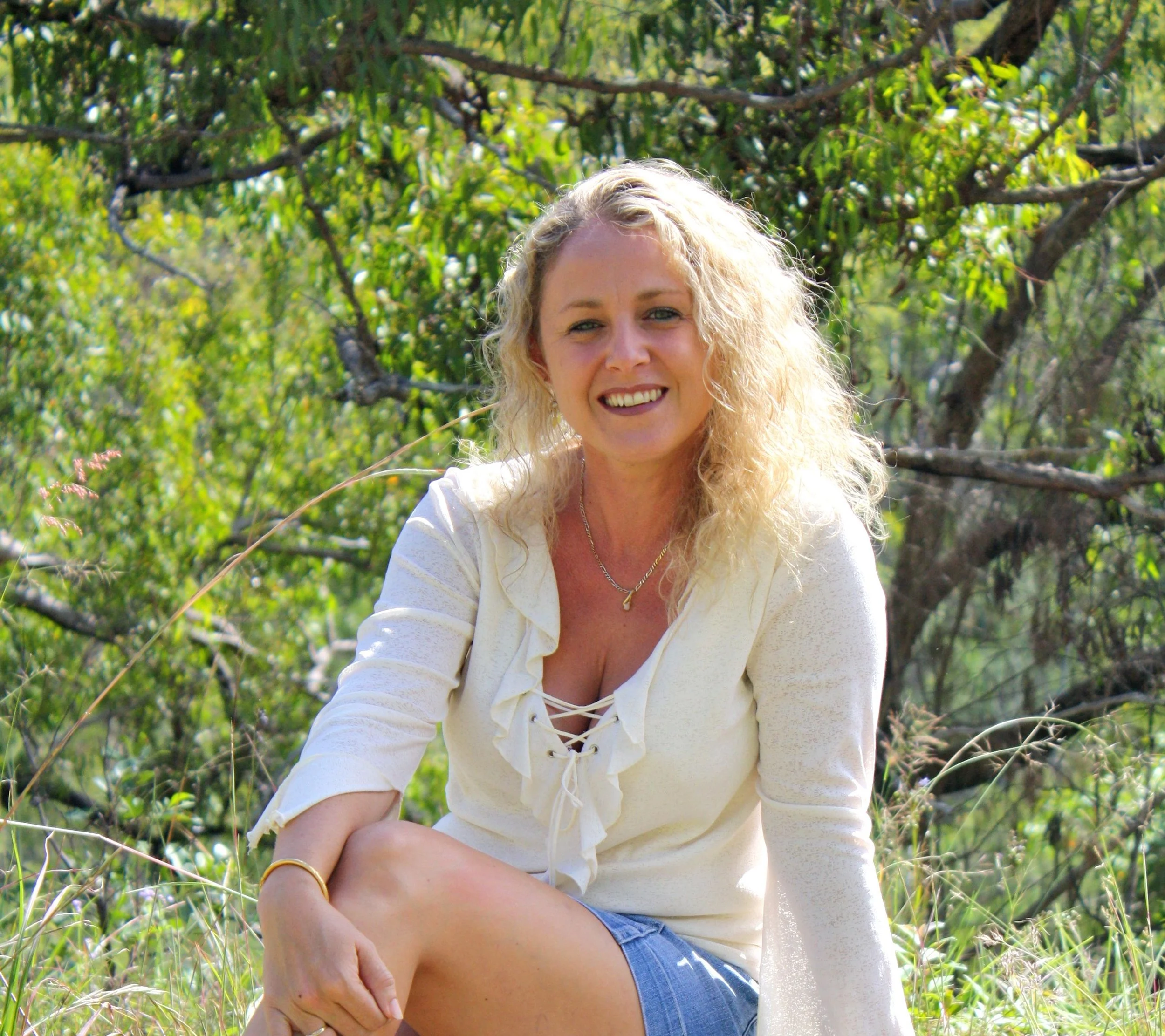
Mandy's latest release Flame Tree Hill is receiving rave reviews. Here's a peek:

Kirsty Mitchell is ready to come home. After a tragic accident that left her scarred, she fled overseas. Now, three years later, she's finally returning to Flame Tree Hill, her beloved family farm. But at twenty-five Kirsty isn't prepared for the terrifying new challenge ahead: breast cancer. Kirsty's never been a quitter and that's not about to change. But can her budding romance with local vet Aden bear the strain? As she battles with chemotherapy and as her past threatens to overwhelm her, Kirsty realises you can never take anything – or anyone – for granted. Drawing strength from her family and the beauty of Far North Queensland, Kirsty finally understands what she must do.
"A lyrical and heart-warming testament to the power of love – and forgiveness."
*
Sounds like we need the tissues on hand!
Thanks for being my gurest on Flying Pony, Mandy.
*
1.What activities (other than writing) get your creative juices flowing?There are many activities I enjoy, outside of my writing, but the things I get the most pleasure from and which get my creativeness flowing are rodeos and country music. Also, just being out in the paddock with the horses is inspiring, and relaxing. I adore spending time with such magnificent creatures. And I can’t go past cooking either, which people who have read my books will have noticed I always seem to have a fair bit of cooking going on in them. I love shopping for food, cooking food and eating food!2. What sort of writing routine do you have – disciplined or undisciplined, regular or erratic, focused or easily distracted?My writing time is “whenever I can.” I don’t set exact times on exact days as that wouldn’t work in with my everyday responsibilities, and would just end up irritating me because I couldn’t stick to the schedule. I like to put the least amount of pressure I can on myself when it comes to my writing, which is why I enjoy it so very much!3.Do you ever suffer from writer’s block and if so what do you do about it?I haven’t suffered from writers block, but I do find when there is a lot happening in my life I can’t focus enough to write. It is these times that I allow myself some time out so that when I hit the keyboard again I am ready and raring to get on with it. I can also get some very “lightening bolt” ideas when I’m having time out too, which is wonderful!4. Which aspects of the writing life do you most love?I absolutely adore the fact I can work in my PJ’s all day long, there’s not many jobs that allow you to do that! It’s also very exciting to be able to create stories that can touch people’s hearts in so many different ways, and I love hearing from my readers and connecting with them through social media. I’ve made some very special mates along my writer’s journey. J5. Which aspects do least love (or detest!)?I would have to say the editing…it can be a very emotionally charged time. J6. What books and writers have most influenced your own writing?Certainly the rural romance genre has been the biggest influence on my writing. Rachael Treasure’s novel, Jillaroo, is what inspired me to put pen to paper. I still remember lying in bed reading, which is where most of my reading is done, and running my hand over the cover of Jillaroo thinking “I wish I could be a published author one day”7. Can you describe for us your writing process, from getting the original idea to completed manuscript?I’m a panster when it comes to writing, so I don’t really have an actual process, as such. I normally come up with a title for the novel firstly, and then the characters follow on from there, evolving into whatever they want to be along the course of the storyline. Of course I have the basic outline of the story and the black moment in my head, but generally that changes along the way, as the characters become three dimensional on the page. Sometimes I feel as thought they are narrating the story to me, and I’m just the typist! From here, the manuscript is then put through the usual editing process, and this is where I normally have a slight meltdown as I take on-board all my editor’s notes.8. Describe your path to publication.I’m very passionate about the country way of life and love reading novels by rural authors. I’ve had amazing experiences in the outback and met some memorable Aussie characters along the way. From being a camp cook at Tobermorey station, helping behind the chutes at rodeos, to being a fruit farmer, all these aspects of my life came together and helped me to write my very first novel which was of course threaded with a beautiful love story.My journey into the publishing world was fantastic. I had a finished manuscript after six months of solid writing and within three months I had a two-book contract with Penguin. I’m so happy to have been signed by Penguin, they’ve been so supportive and have believed in me every step of the way. They gave me the opportunity to step through the publishing door and I will be forever grateful. I am now with Harlequin Australia. They’re a very encouraging bunch and I feel extremely blessed to be welcomed into such a wonderful close-knit team. 9. What advice would you give to writers who are working towards publication?Don’t ever give up on your dream of writing. Remember, if you don’t risk anything, you risk even more. Breathe your writing, live it, love it. Write as much and as often as you can, even if it feels like you are babbling at the time. It will put your creative ideas in motion. This in turn will drive you to write more, to feel the passion of your unique craft. Be true, write about things that you have experienced and really mean something to you as this will be what appeals to your readers. Reach out to other authors, most of them will be happy to answer any questions you have. Surf the net; it will connect you with people who will support you, especially for those of us in remote areas. Read read read! Other writer’s works will inspire you. Never give up, be brave, be driven, be fearless, believe in yourself-you can do it!Thanks for having me, Pamela. It’s been fun chatting with you.Keep smiling and dreaming,Mandy JConnect with Mandy:www.mandymagro.comwww.facebook.com/mandymagroauthor
***
June 3rd
Today I thought I'd share with you a little about the book I'm currently working on. The good and the bad.
I can't reveal the title just yet but I can say that it's another Rural Fiction book set on the south coast of NSW and it has a dual story line about a young woman on the verge of getting married who discovers that the grandmother she previously knew to be dead is very possibly alive and well. That's the basic idea. Oh, and it does have a few horses galloping across the pages.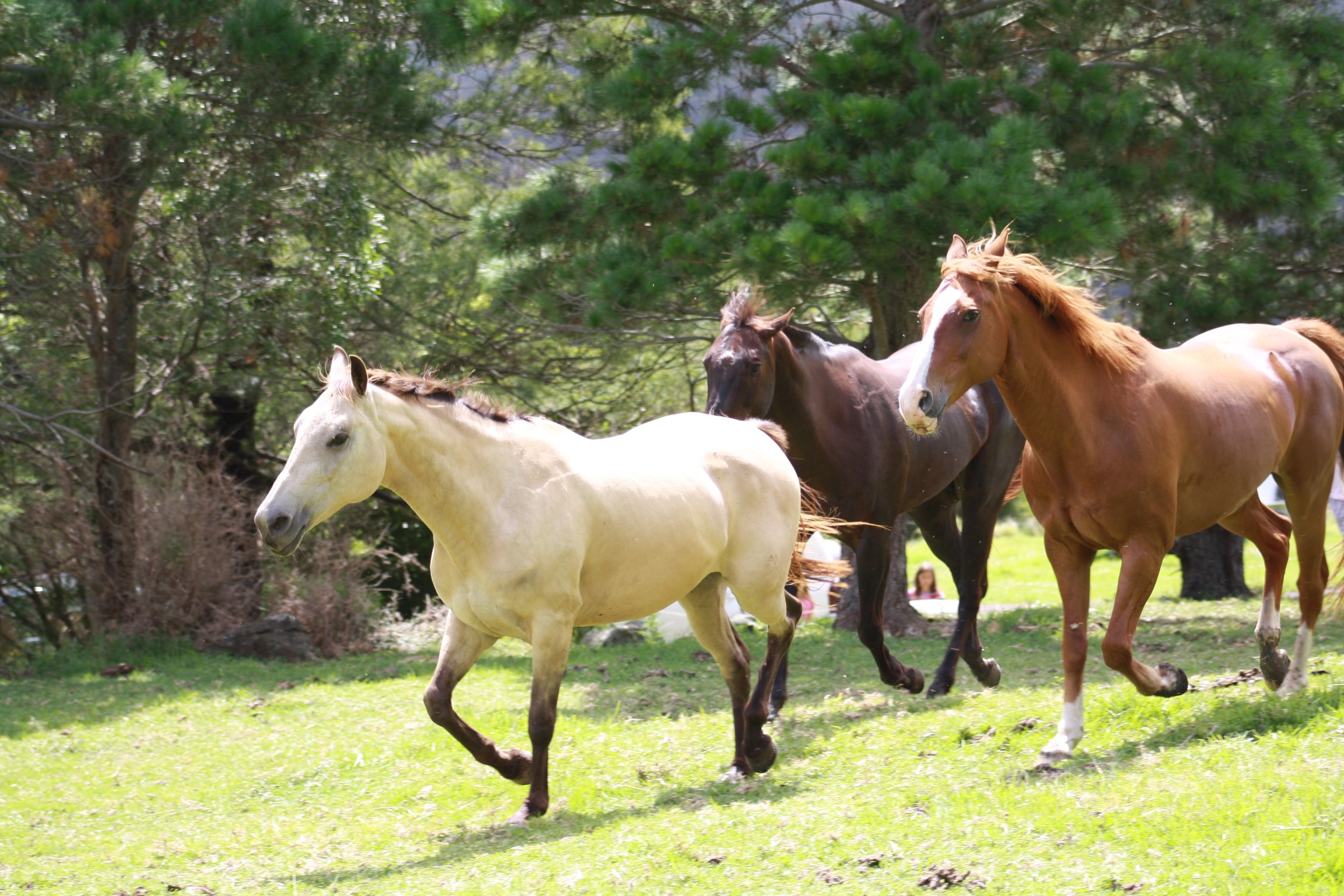 So, let's get the bad out of the way first. Blackwattle Lake flowed from my fingertips virtually fully formed. Like a newborn baby it just needed to good rub down and some TLC to make it presentable. But this time round I'm finding the whole birthing process more than a little painful and feeling the impact of Second Book Syndrome, where the self doubt and perfectionism that all writers suffer from seems to be even more entrenched than they were the first time round. What if it's not good enough? What if the publisher doesn't like it? What if people who read the first one read this one and hate it? What if ... what it ... what if ...?You get the picture.So, what am I doing to push through these dreaded symptoms? Well, after procrastinating by checking Facebook, tweeting and writing blog posts like this one, making cups of tea and hot chocolate and playing with the dog, I'm sticking my butt in the chair and writing through the fear. I'm reminding myself that this is a first draft and at this stage quantity is more important than quality. And I'm trusting that if I could do it once I can do it all over again.
So, let's get the bad out of the way first. Blackwattle Lake flowed from my fingertips virtually fully formed. Like a newborn baby it just needed to good rub down and some TLC to make it presentable. But this time round I'm finding the whole birthing process more than a little painful and feeling the impact of Second Book Syndrome, where the self doubt and perfectionism that all writers suffer from seems to be even more entrenched than they were the first time round. What if it's not good enough? What if the publisher doesn't like it? What if people who read the first one read this one and hate it? What if ... what it ... what if ...?You get the picture.So, what am I doing to push through these dreaded symptoms? Well, after procrastinating by checking Facebook, tweeting and writing blog posts like this one, making cups of tea and hot chocolate and playing with the dog, I'm sticking my butt in the chair and writing through the fear. I'm reminding myself that this is a first draft and at this stage quantity is more important than quality. And I'm trusting that if I could do it once I can do it all over again.

- Rock and Sea and Sky
On the up side I'm falling in love with a whole new set of characters, escaping to gorgeous settings like the one shown above and spending imaginary time with my very favourite creatures. As part of the book is set back in the 1940's and 50's I'm also doing some research and learning some interesting facts:
- The Australian government discouraged the enlistment of indigenous soldiers until the threat of Japanese invasion
- Blackouts during the war in towns and cities made it easier for those involved in the black market to break into warehouses
- During the 50's and 60's people could be committed to a psychiatric institution like Callan Park even if they were only mildly depressed. Many patients stayed for years or even the rest of their lives.
I still have a way to go on this draft and even though that That voice keeps saying "you can't do this, what are you thinking, you're writing rubbish" I'm blocking my ears, focusing on what is working and believing that if I put in the time the muse will get me through.Better get back to it :)
***
May 2, 2013
Today I’m very happy to welcome to the blog Australian Rural Fiction author Fiona McCallum
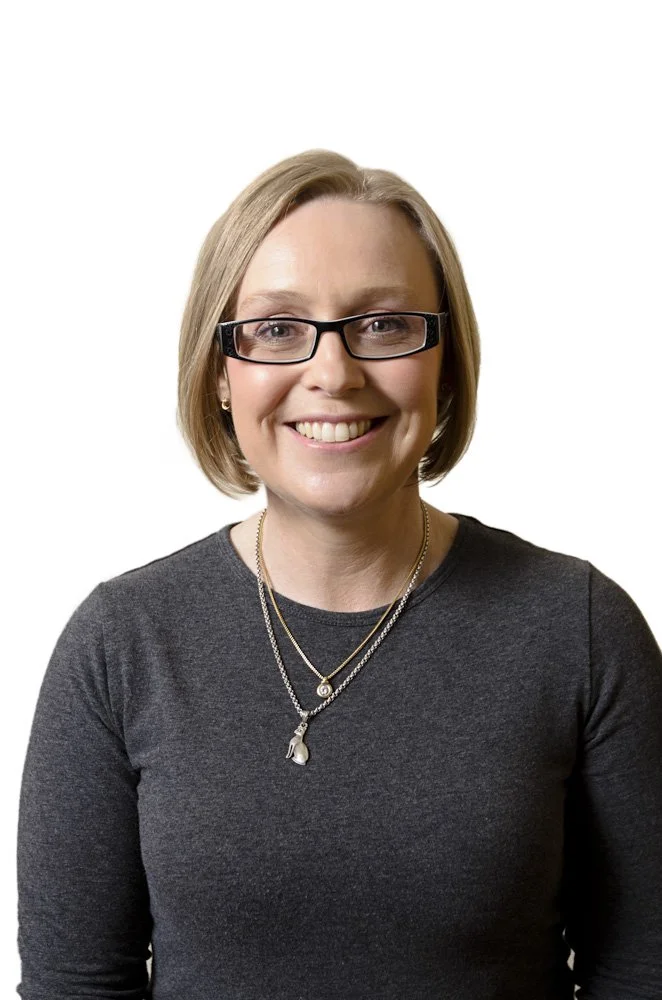
Fiona is the author of Paycheque, Nowhere Else and Wattle Creek and her latest release is Saving Grace.
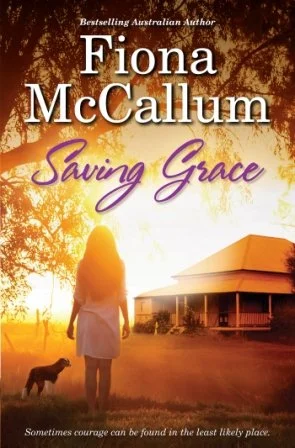
When Emily Oliphant married John Stratten, she thought it was the beginning of an exciting new adventure — standing shoulder-to-shoulder with the most eligible farmer in the district and pitching in to build a thriving agricultural business. Three years later, however, Emily sees her marriage for what it is — a loveless tie to a callous man.
When John’s cruelty reaches new heights, Emily is forced to move out, braving both her husband’s wrath and her mother’s glaring disapproval. With the encouragement of her new friend Barbara, Emily moves into an abandoned property and takes on the mammoth task of turning the unloved house into a home. In the process she discovers a new business venture, meets new friends and finds an inner strength she never knew she had.
Emily’s newfound confidence is soon tested, though, when the owners of the property make her a tempting offer. Will she risk everything and invest in the ramshackle house that has finally given her a sense of purpose? Or will Emily listen to the views of the community — and the voice of her mother — and go back to continue on the road more travelled?
Sounds like a wonderful story which I’m definitely adding to my tbr pile.
Thanks for visiting Flying Pony Fiona!
*
- What activities (other than writing) get your creative juices flowing?
Anything and everything! Ideas come to me in the shower, whilst out walking, gardening, watching movies, reading books, visiting art galleries and antique shops, etc.
- What sort of writing routine do you have – disciplined or undisciplined, regular or erratic, focused or easily distracted?
When in writing mode I am very disciplined and have a strict routine. On weekdays I start at 8am and write (which also includes reading) until noon. I write by hand and then type up what I’ve written in the afternoon.
- Do you ever suffer from writer’s block and if so what do you do about it?
Not really. I’ve never experienced the angst of not being able to write, but there are times when the creative juices aren’t flowing easily. For me when the story doesn’t flow easily, it’s a sign that it needs more percolating and/or that I’ve got too much on the non-writing plate and I need to stop and deal with some things before I’ll be free to write again. While waiting for inspiration to strike I’ll spend my writing time reading.
- Which aspects of the writing life do you most love?
I love hearing from readers who have enjoyed my work. I also really enjoy working with a good editor I’ve clicked with. I’ve always been a very solitary writer (i.e. not a member of any critique or writing groups etc.) so it’s wonderful to have someone to discuss the story with and bounce ideas off during editing. Oh, and who wouldn’t absolutely love being paid to live their dream!? J
- Which aspects do least love (or detest!)?
Negative reviews! It’s just like being unpublished and having your work rejected all over again! I do try to take them with a pinch of salt because, really, you can’t please everyone all of the time – but it does hurt. One of the annoying things about being a writer (well it’s certainly the case with me) is that we tend to have to be quite sensitive creatures in order to write a story and characters with a decent amount of emotional depth, but then we’re expected to have a thick skin in order to survive the criticism – it’s a crazy old world!
- What books and writers have most influenced your own writing?
Since I’ve been seriously writing, Maeve Binchy, Debbie Macomber, Barbara Delinsky.
- Can you describe for us your writing process, from getting the original idea to completed manuscript?
I’m a highly structured, organised person so I like to plan out the major plot points before sitting down to write. I won’t start writing until I know how the story starts, the most important things that will happen and how the story ends. Then it’s just a matter of working through the story in chronological order and picturing it like a movie playing in my head.
- Please describe your path to publication.
It was a nine year, four manuscript journey filled with rejections from agents and publishers! I got to the point where I stopped submitting because it was too demoralising and it was ruining my love of actual writing. And then quite by accident I met my publisher at a function and soon after was given my break. (It’s a long story.)
- What advice would you give to writers who are working towards publication?
Work hard and don’t give up.You can connect with Fiona at:Website – www.fionamccallum.comFacebook – http://www.facebook.com/fionamccallum.author
***
April 23, 2013
Today I’m over the moon to welcome Australian author Kate Forsyth to the blog.

Kate is well known for her children’s fantasy books and also writes adult fantasy and historical fiction. Her most recent novels are Bitter Greens and The Wild Girl.
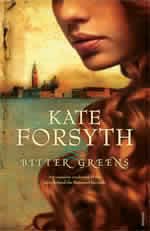 Bitter Greens is a retelling of the Rapunzel fairy tale interwoven with the dramatic life story of the woman who first told the tale, the 17th century French writer, Charlotte-Rose de la Force. Bitter Greens has been called ‘the best fairy tale retelling since Angela Carter, and has been nominated for a Norma K. Hemming Award, the Aurealis Award for Best Fantasy Fiction, and a Ditmar Award.
Bitter Greens is a retelling of the Rapunzel fairy tale interwoven with the dramatic life story of the woman who first told the tale, the 17th century French writer, Charlotte-Rose de la Force. Bitter Greens has been called ‘the best fairy tale retelling since Angela Carter, and has been nominated for a Norma K. Hemming Award, the Aurealis Award for Best Fantasy Fiction, and a Ditmar Award. I’m currently reading The Wild Girl and loving it. It’s based on Kate’s research into the Grimm Fairy tales and tells the true, untold love story of Wilhelm Grimm and Dortchen Wild, the young woman who told him many of the world’s most famous fairy tales. Set during the Napoleonic Wars, The Wild Girl is a story of love, war, heartbreak, and the redemptive power of storytelling.Kate’s books have been published in 14 countries around the world, including the UK, the US, Russia, Germany, Japan, Turkey, Spain, Italy, Poland and Slovenia.Kate is a direct descendant of Charlotte Waring, the author of the first book for children ever published in Australia, ‘A Mother’s Offering to her Children’. She lives by the sea in Sydney, Australia, with her husband, three children, and many thousands of books.As you’ll see from Kate’s interview below she is an extremely disciplined writer which accounts for her current total of 26 books. She is a wonderful story teller and if you ever get the opportunity to see her speak definitely take it up.
I’m currently reading The Wild Girl and loving it. It’s based on Kate’s research into the Grimm Fairy tales and tells the true, untold love story of Wilhelm Grimm and Dortchen Wild, the young woman who told him many of the world’s most famous fairy tales. Set during the Napoleonic Wars, The Wild Girl is a story of love, war, heartbreak, and the redemptive power of storytelling.Kate’s books have been published in 14 countries around the world, including the UK, the US, Russia, Germany, Japan, Turkey, Spain, Italy, Poland and Slovenia.Kate is a direct descendant of Charlotte Waring, the author of the first book for children ever published in Australia, ‘A Mother’s Offering to her Children’. She lives by the sea in Sydney, Australia, with her husband, three children, and many thousands of books.As you’ll see from Kate’s interview below she is an extremely disciplined writer which accounts for her current total of 26 books. She is a wonderful story teller and if you ever get the opportunity to see her speak definitely take it up.
Thanks for being my guest on Flying Pony, Kate!
*
- What activities (other than writing) get your creative juices flowing?
I’m an avid reader, and find inspiration for stories in many different types of books. I also love my garden, and find time spent among my herbs and flowers very restorative for the soul. I am a keen cook, and it makes me happy to create delicious feasts for people I love. I walk every day, and think through what I plan to write that day, plus I love to dance, swim in the ocean, listen to music and go to the ballet.
- What sort of writing routine do you have – disciplined or undisciplined, regular or erratic, focused or easily distracted?
I am highly focused, highly disciplined, and as regular as a monk in my writing vocation. When I’m at home (ie not touring or away at festivals and conferences), I have a cup of tea in bed and write in my journal, then I get up, and read book blogs and the twitter feed while I have my breakfast. I then do as much housework as I can before taking my daughter to school. I walk for an hour, and am at my computer by 10am, with another cup of tea. I answer important emails and flag others for my attention later, then I open my novel file and read through what I wrote the previous day, cutting and adding, editing and polishing as I go. I then settle in for a couple of hours intense work pushing the story forward. I jot down any questions or problems I encounter in my notebook to be answered later. I stop at around 12.30pm for lunch, and read something book-related – a blog post, a newspaper article, a book on writing. I normally hang out a load of washing and put another one, and I’ll quickly check my emails before again settling down to work. Again I’ll work for about two hours, having a small break at around 3.30-4pm when my kids get home from school. Once I’ve heard all their news, I go back to work and work steadily through till 5.30-6pm, when I normally stop and start thinking about what to cook for dinner. Two days a week, my daughter has gymnastics and doesn’t get home till 8pm, so I normally work through to 7.30pm on those days. After dinner and the kids’ bedtime (around 8.30pm-9.30pm), I will – if the book is in its early stages – go to bed and read. I may be reading for research, or for my academic studies, or I’ll be reading for pleasure. However, if I’m getting towards the end of a novel and in the grip of obsession, I will go back to my computer and write for another couple of hours. Sometimes I stay writing till long after midnight, and I will often, in the final stages of the book, also wake very early and write in the quiet and dark of the sleeping house. I’ve been known to write for 10-12 hours a day when nearing the end of a novel. After the book is finished, I generally collapse in a heap for a week or two, before starting the process all over again.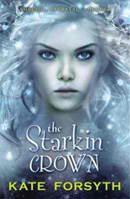
- Do you ever suffer from writer’s block and if so what do you do about it?
It depends what you mean by writer’s block. Most people think of writer’s block as that terrible paralysis that overcomes some writers, so that they cannot write at all. Other people think of it as a lack of ideas, a lack of a story to tell. If this is what you mean, then the answer is no. I am constantly brimming over with ideas, and I always want to write. Writing is one of the primary sources of joy in my life, and as natural and essential to me as breathing.If, however, you mean – do I ever get stuck while working on a novel? Then the answer is yes, of course. Usually it means I don’t know enough – about the story, the world, my characters – and so I need to go and do some more research, or go back to my notebooks, or spend more time thinking and daydreaming and solving whatever problem I’ve encountered. Usually I’ll sleep on the problem and trust my subconscious mind to throw up the solution. I’ll think about it all the time I’m busy doing different things – washing up, driving my daughter home from ballet, walking the dog. If I still can’t find the solution, I’ll try and jolt my subconscious by listening to music, reading poetry, browsing the internet, playing word games, asking myself questions and answering them, opening books at random and seeing what my eye falls upon, or going for a very long, swift walk, thinking, thinking, thinking. The answer has always come, sometimes in the most astonishing serendipitous way, and I have learned to trust in that, and wait for it, keeping my mind open to the world.
- Which aspects of the writing life do you most love?
I love the first flash of an idea, which shakes me from head to foot. I love buying a new notebook with all its blank pages so full of potential. I love the early daydreaming and pondering and playing with ideas, and the way the story slowly comes to life in my imagination. I love finding my first line, my first scene … I cannot write till I have these clear in my mind’s eye. I love writing the novel, and overcoming all the obstacles in my way, and learning something new about the art and the craft of writing with every new book. It gives me immense satisfaction to see the novel slowly grow. I love the golden glow of writing that flows, the way it tingles in my fingertips and shivers along my nerves. I love the way the story fights me sometimes, and I have to struggle to conquer it. I love the giddy relief of reaching the end, and then I love the slow painstaking deconstruction of the novel, the cutting and polishing and putting together of all the cogs and wheels so the story engine races along, powerful and sure. I love nearly every aspect of the job.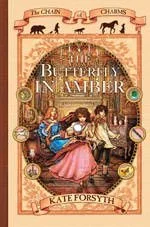
- Which aspects do least love (or detest!)?
I’m not particularly fond of proofreading, because I have read the novel so many times by then it feels stale and jaded to me. And I get anxious when the novel is first published. I so want everyone to love my new baby, and I’m afraid the world will be cruel. Sometimes I’m hurt by a review, or a careless comment on a social media site, but I try hard not to be unbalanced by such things or to brood on them too long. It’s hard, though.
- What books and writers have most influenced your own writing?
Every book I have ever read has influenced me in some way. If I love the book, I read it many times and I try and understand what the writer has done to affect me so. If I don’t like it, I think about the reasons why and then try not to do that in my own writing. As I have read an average of five books a week since I first learnt to read at the age of four, I have read around 10,000 books so I’ll not try to list them all here. On my website, however, I do have a list of my favourite authors and I am always adding more.
- Can you describe for us your writing process, from getting the original idea to completed manuscript?
Each book is so very different, and its always difficult to explain one’s creative process. I’ll do my best, however!I usually begin with a story idea. With my novel ‘The Puzzle Ring’, this first idea came to me while I was idly reading a jewellery catalogue and read an article about the making of the first puzzle ring. I have always been drawn to mysteries and puzzles and so I was intrigued by a ring that fell apart into four separate loops, and could not be put back together unless you knew the secret sequence of movements. I thought to myself what a wonderful thematic structure such a ring could give to a quest story – a journey to find the four separate loops of the rings and put them back together again. But who would want to find the ring, and why? Where and when would such a story be set? By mulling over these questions, and playing with different ideas, I began to see the story. I slowly assemble my cast of characters and think of possible adventures for them. Stray images come to me and seem to belong to the story. In ‘The Puzzle Ring’, an important early image was that of a toad hopping out of a pool and dropping a ring at the feet of my heroine. I didn’t know how the toad had got the ring, or what role the toad played in the story until almost at the end of my first draft when suddenly the answer was revealed to me in a flash and I thought, ‘of course!’ It was as if I was discovering a story that had already been written, or already existed in some way, and only my own blindness had stopped me from seeing the truth earlier.Sometimes a story squats in my back brain for a long time, glowering at me, occasionally nudging me, waiting for the right time to be born. I have books that I first thought of when I was a child, among them ‘Bitter Greens’. I first tried to write a Rapunzel retelling when I was about 11 or 12 – I only wrote a page or so and then put it aside. I never forgot the idea, however, thinking about it many times over the years until the time seemed right. Again, I begin by asking myself questions. The Five Ws (Who, What, Where, When & Why) are the simplest and most effective planning tool and is always how I begin. For example, why did the witch lock the maiden in the tower? Why was the girl’s hair so long? Why didn’t she just cut it all off and use it to escape?I formulate answers to these questions, and I read and research and think and daydream and scribble notes to myself and slowly build a sense of my narrative thread, tying together bright glittering beads of scenes. I worry and wonder and ponder and play, until I feel as if my head is so full of story its going to burst. Only then do I begin to write. I work at the novel systematically, building it sentence by sentence, scene by scene, section by section, constantly rewriting, reshaping, rethinking my ideas. Sometimes the writing comes swiftly, sometimes it is painstakingly slow, but it steadfastly grows and gains shape, and that gives me great satisfaction.When I have a complete first draft, I look at the novel in totality and then set myself to trying to make it better. I cut it very hard, often by as much as a third, and I look at my dialogue, my chapter beginnings and endings, my use of adjectives and adverbs (I always over-use these), plus repetitions of favourite words (heart, mouth, shadowy, sombre, stagger, leap, and so on). I read the opening lines out loud, I check my facts, and I try and make sure all the disparate parts of the novel work together smoothly, sinuously, with a sense of inevitability.When the book is as good as I can get it, at that point in time, I send it to my agents and publishers, and then wait, with an acute anxiety mixed with eagerness, for their feedback. By the time I get my editorial report, I have had time to think of things I’m not happy with, that I think I could do better, and I also have a greater degree of emotionally detachment from the book. I always love the editorial process, working with people I trust to make the book as best it can be.
- Describe your path to publication.
Well, I wrote my first novel at seven and gave it a publication page with a copyright sign next to my name and the words ‘London-New York-Sydney’ so I had my heart set on publication right from the very beginning. I first sent out a manuscript at the age of 16 and, although it was rejected, I received a very encouraging letter from the publishers. All through my 20s, I sent out poems, articles, short stories, and novel manuscripts. Some were accepted; most were not. My novel – which I’d been working on since I was 16 – was almost published a couple of times and was long-listed for the Vogel Award, but didn’t make the shortlist. At the age of 25, I quit fulltime work and freelanced, writing articles for newspapers and magazines, and sub-editing corporate brochures, while I studied a MA in Writing and worked on a new novel in my university holidays. I sent the opening chapters to an agent, who told me she loved the book and could definitely sell it. I worked like a maniac to get a complete draft to her and then she took it out to publishers. After a bidding war, I signed a multiple book contract with Australian, US, German and Russian publishers. It was all very exciting. I was transformed, practically overnight, from an impoverished university student to an internationally published author. I’ve been lucky enough to sell well, and so have been a full-time writer ever since.
- What advice would you give to writers who are working towards publication?
I always say you must be brave. Not only by facing up to the hurt of rejection and criticism, but also in your writing. The longing to be published can stop a writer from taking risks, both with the actual writing and with the storyline.Then I say you must have faith, both in yourself and your story.Then, I say, be patient. A novel is a big and intricate mechanism, and it takes time both to create it properly and to publish it properly. Too many people try and publish work that’s simply not ready, and then are bitterly disappointed and give up. It’s a shame because their work had potential, but they rushed it and wrecked it.*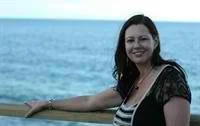 Connect with Kate:Website: http://www.kateforsyth.com.au/Facebook: http://www.facebook.com/kateforsythauthorTwitter: @KateForsyth
Connect with Kate:Website: http://www.kateforsyth.com.au/Facebook: http://www.facebook.com/kateforsythauthorTwitter: @KateForsyth
***
April 17, 2013 by pamelacook
This Week’s Author Interview on Flying Pony With …Me!
Over the last few months I’ve had many wonderful authors answering my questions about creativity and the writing process as well as their path to publication. Recently I sat down and had a go at answering those questions myself. And here is the result – hope you enjoy it!So today (even though this is very weird) I welcome Pamela Cook to the blog.
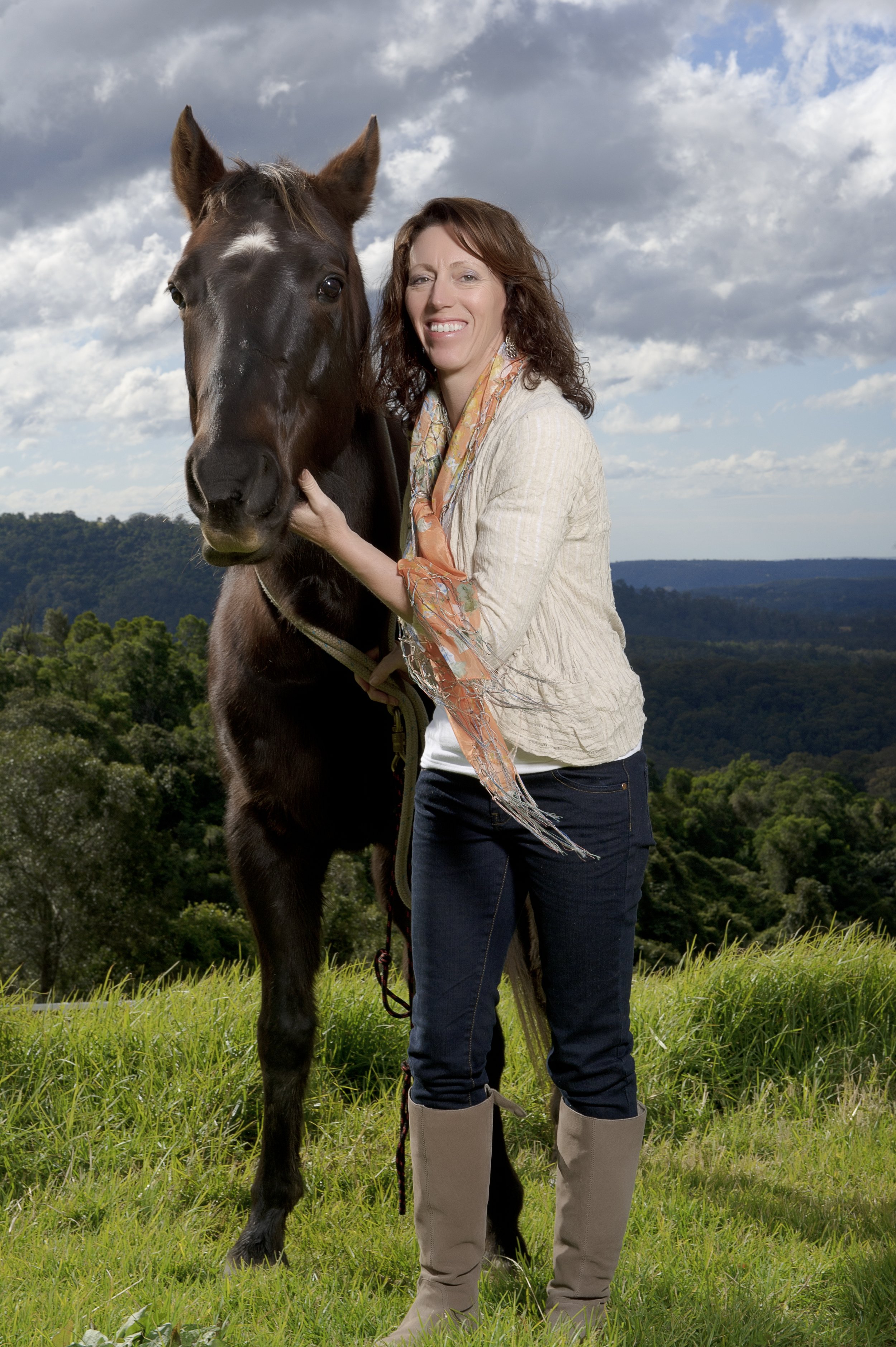
Me and my gorgeous horse Morocco.
Pamela is the author of Blackwattle Lake, a rural fiction novel set in the south-east of NSW.
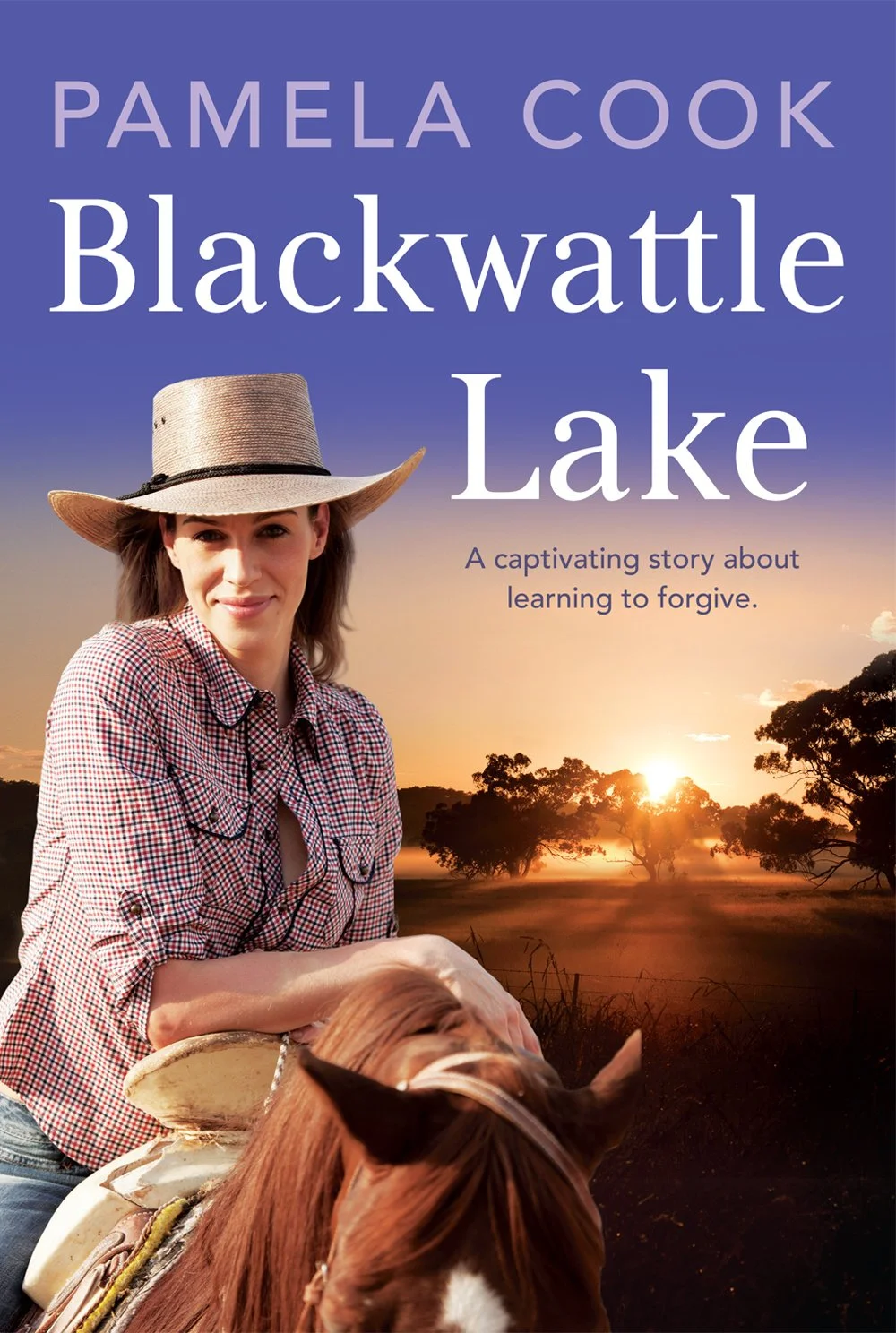 For Eve Nicholls, walking up the driveway of her childhood home brings up many emotions, and not all good. The horses that she loved still dot the paddocks but the house is empty, and the silence inside allows her memories to flood back. She’s glad to have her best friend Banjo the kelpie with her . . . and a bottle of bourbon. Her plan is simple: sell the farm, grab the cash and get the hell out.Despite Eve’s desire to keep a low profile, within days of her return she runs into all the people she hoped to avoid. At the house she is surrounded by memories and worse. But with a lifetime of clutter to sort out, there’s plenty to take her mind off it all. Slowly, she begins to discover the girl she used to be: Angie Flanagan – adventurous, animal-loving, vulnerable. When tragedy strikes, Eve realises that changing her name all those years ago in an attempt to hide from her past has not changed the truth of what happened or who she really is.Blackwattle Lake is an engaging debut for those who long to uncover who they used to be, and who they might still become.
For Eve Nicholls, walking up the driveway of her childhood home brings up many emotions, and not all good. The horses that she loved still dot the paddocks but the house is empty, and the silence inside allows her memories to flood back. She’s glad to have her best friend Banjo the kelpie with her . . . and a bottle of bourbon. Her plan is simple: sell the farm, grab the cash and get the hell out.Despite Eve’s desire to keep a low profile, within days of her return she runs into all the people she hoped to avoid. At the house she is surrounded by memories and worse. But with a lifetime of clutter to sort out, there’s plenty to take her mind off it all. Slowly, she begins to discover the girl she used to be: Angie Flanagan – adventurous, animal-loving, vulnerable. When tragedy strikes, Eve realises that changing her name all those years ago in an attempt to hide from her past has not changed the truth of what happened or who she really is.Blackwattle Lake is an engaging debut for those who long to uncover who they used to be, and who they might still become.
*
- What activities (other than writing) get your creative juices flowing?
Reading would have to be number one. Since I’ve been writing I can never read a book without analysing the sentences, structure, characterisation and writing style. This has it’s down side but also gives me great ideas for my own writing.When I get the chance I love a solitary beach walk. And riding my horse is a great way of getting away from it all because I have to be totally focused on what I’m doing.
- What sort of writing routine do you have – disciplined or undisciplined, regular or erratic, focused or easily distracted?
Generally it’s very undisciplined and wildly erratic. Time management is not my thing! At the moment though I’m working on a new book which has a very tight deadline so I am learning to be more organised with my time and trying to write every day
- Do you ever suffer from writer’s block and if so what do you do about it?
If writer’s block is having no idea of what to write next and feeling completely stuck then I definitely suffer from it on a regular basis. The only way to get unstuck is to sit down and write. Anything! You have to switch off the critic, accept that you may – and probably will – write pages of rubbish but at some point your right brain will click on and the ideas will start to flow again.
- Which aspects of the writing life do you most love?
Where do I start? I absolutely love it when I’m so involved in what I’m writing that I enter the place, see and hear the characters and become part of the story. It’s an amazing escape to be physically sitting at my computer but to be somewhere else in my imagination.The other part of the writing life I adore is connecting with readers and other writers in person, via Facebook, my blog and on twitter. I’ve had so many wonderful conversations with people I’ve never met, not only about my own novel but about other author’s work and about books in general.
- Which aspects do least love (or detest!)?
If I have to come up with something it’s probably the review process which can be very nerve-wracking. Luckily I’ve had great reviews for Blackwattle Lake so I can’t really complain.
- What books and writers have most influenced your own writing?
I have a passion for Australian Literature. My absolute favourite is Tim Winton. His succinct yet vivid description and realistic characterisation is something I can only aspire to. I also love Geraldine Brooks and Kate Grenville. The Book Thief by Markus Zusak is wonderful. There are too many others to mention.The book I first read that made me think “I want to write like that” is The Hours by Michael Cunningham. I’ve yet to actually write a book like that of course but I’ll keep trying!
- Can you describe for us your writing process, from getting the original idea to completed manuscript?
The two novels I’ve completed have been completely different in terms of process. The first one (still unpublished) evolved from a short story I wrote as part of my Masters Degree. I put it away for a while and then spent over 5 years writing and revising it.Blackwattle Lake was a Nano novel. The Nano challenge requires you to write a 50,000 word novel in the month of November which I did in 2009. I then put it away for a year, took it out and started revising it and sent it off to the Hachette Manuscript Development Program (more on this below). I didn’t need any major revisions just additional scenes and some tidying up. I really believe that writing fast and continuously is the way to go. It keeps you in the “dream” of the story and helps the ideas to flow.Lucky for me that I do believe that as I have about two and a half months to complete my current project!
- Describe your path to publication.
After years of High School English teaching I wanted to do something more creative. I enrolled in a Masters of Creative Writing and was hooked. I also did a year-long course at The NSW Writer’s centre over the course of one year where I met the writers who were to become my writing group. That group is The Writers’ Dozen and initially there were 13 of us. We meet on a fortnightly basis to support and provide inspiration and feedback for each other. We self published an anthology of our work called Better Than Chocolate, the proceeds of which went to Room to Read the not for profit organisation I then became a volunteer for. That anthology was a great process and allowed us all to see out work in print. It also sold enough copies to fund the setting up of a library in Nepal. The group has shrunk to a half-dozen these days but those of us still involved are all committed writers. Along the way I also had a few poems and memoir pieces published in other anthologies.I had entered the Hachette/QWC program twice with my first novel but entered again in 2011 with that one (revised – again!) and Blackwattle Lake. I was over the moon to receive the phone call to say I was one of 9 writers selected to attend the four-day program in Brisbane. I learnt so much, met a great bunch of writers and managed to speak one on one with a publisher who had read my manuscript. She liked what she had read, gave me some advice which I followed and then re-submitted. That was on April 30 2012. Words cannot describe my elation when my now publisher called me to say Hachette loved the manuscript and wanted to publish it. The novel was released in December 2012 and I’m still pinching myself that I am actually a published author.
- What advice would you give to writers who are working towards publication?
Firstly, just write. Write because you love it, write for yourself first and others later. You learn how to write by just doing it.Don’t censor yourself and learn to ignore your inner critic. You will never find your voice as a writer if you’re constantly worrying “is it good enough” or listening to the voice that tells you you’re writing is rubbish.Join a writing group. Get feedback on your writing and be open to criticism. Give back too – constructive criticism helps make us better writers. Support your writing buddies – celebrate each others successes and spur each other on in the face of rejection.Be brave and put your writing out there – once you have been through the writing, editing and revision process and also have had trusted readers give you feedback. If you put your writing out there too early you’re not giving yourself the best chance of success. But if you never put it out there you’ll never know what might have been,Expect to be rejected. Use it to make your writing better.Lastly, keep on writing.
*
Blackwattle Lake is available at all good book stores In Australia and New Zealand - if it’s not on the shelf please ask for it be ordered in.Booktopia: http://www.booktopia.com.au/search.ep?keywords=Blackwattle+Lake&productType=917504It’s also available as an e-book on:Amazon: http://www.amazon.com/Blackwattle-Lake-ebook/dp/B008XXXJE0/ref=sr_1_1?s=books&ie=UTF8&qid=1366198282&sr=1-1&keywords=blackwattle+lakeYou can connect with me via this blogMy website: www.pamelacook.com.auOn Facebook: http://www.facebook.com/PamelaCookAuthor?ref=hlTwitter: @PamelaCookAU
***
April 10 20113
Today I welcome Alissa Callen to the blog. Isn't this a gorgeous photo of Alissa?
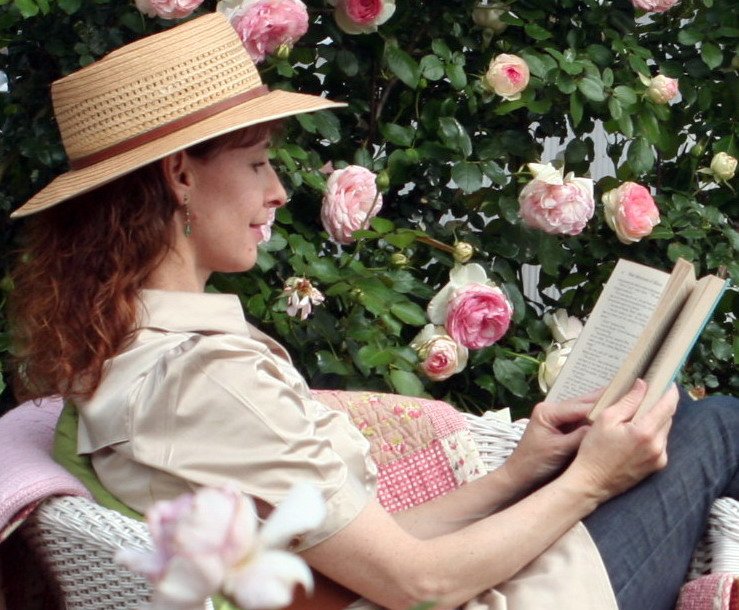
Alissa's new release is Beneath Outback Skies published by Random House.

A captivating rural romance featuring an indomitable young woman determined to save her family farm, and the city-boy who is not all he seems...Paige Quinn will let nothing and no one distract her from caring for her crippled father, Connor, and fighting for her remote, drought-stricken property, Banora Downs. Least of all a surprise farm-stay guest named Tait Cavanaugh, whose smooth words are as lethal as his movie-star smile. Except Paige can’t help noticing that, for a city-boy, Tait seems unexpectedly at home on the land. And he does ask a lot of questions…It doesn’t matter how much he helps out or how much laughter he brings into her life, she soon suspects he is harbouring a big secret – the real reason he has come to Banora Downs…Show moreShow lessAlissa is a fellow horse lover and also established the Facebook Page Books for Country Girls and Guys. You can find the link along with links to connect with Alissa at the end of the interview.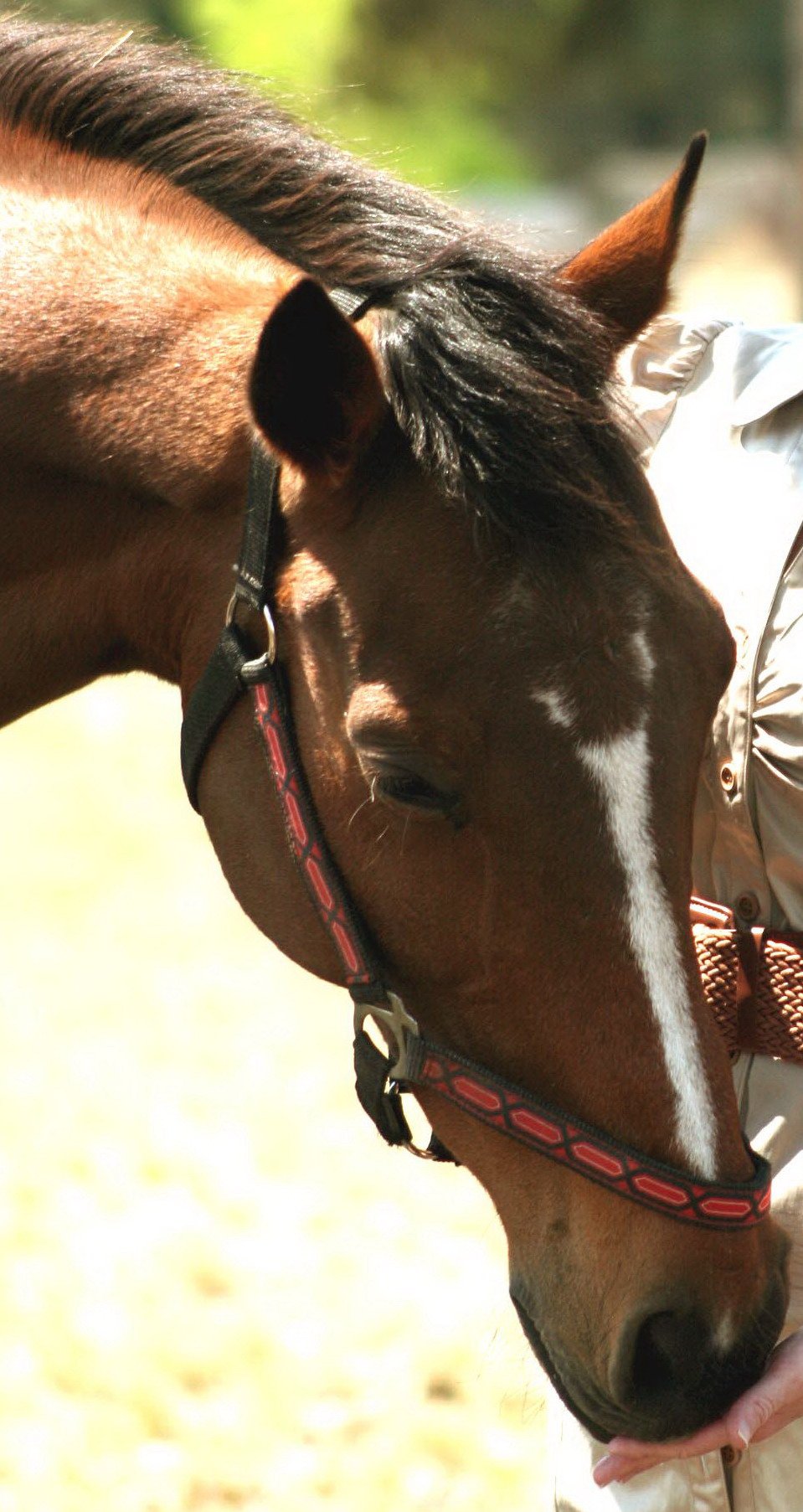
Thanks for visiting Flying Pony Alissa and for sharing your writing journey.
*
- What activities (other than writing) get your creative juices flowing?
Walking. I try to walk everyday with the dogs and whether it be in the paddocks or on a track down to the river every stroll brings with it time to think, plan and plot.
- What sort of writing routine do you have – disciplined or undisciplined, regular or erratic, focused or easily distracted?
In a perfect world I’d have a disciplined and focused routine but the reality is the polar opposite. I write while the kids are at school and then try to sneak some more time in after dinner. But the best laid plans often go awry – there could be homework to be completed, farm jobs to be done or I need to visit my older two kids at boarding school. So as many New Year resolutions as I make there are just as many interruptions to establishing a set writing routine.
- Do you ever suffer from writer’s block and if so what do you do about it?
Sometimes the words won’t flow and the characters won’t come out to play but this is more a result of poor planning than writers block. Often I’ll go for a walk or do something non-writing related and then the scene will fall into place. It is amazing how the subconscious solves a problem when you least except it.
- Which aspects of the writing life do you most love?
The creative process. Breathing life into a blank page.
- Which aspects do least love (or detest!)?
Reviews. Being the eldest child I like to please everyone and adhere to the status quo but it is a fact of writing-life that there will be readers who, for various reasons, won’t connect with your characters, voice or story.
- What books and writers have most influenced your own writing?
Elyne Mitchell, the Silver Brumby, series engaged me as a child and today still feel the magic of her stories. Think every author that you read proves inspirational in some way – whether by making you think about how they drew you into their fictional world or by causing you to reflect upon the perfect synchronicity of their word choices.
- Can you describe for us your writing process, from getting the original idea to completed manuscript?
My story will start with an image or a theme, characters will form and conflicts will be examined and then discarded until a fitting conflict-lock is reached. I’ll then become way-too-obsessed with Google seeking visual inspiration and conducting research. I’ll then sketch in plot turning points and have an idea of the black moment. Like a torch shining a little way ahead in the dark I’ll write and with each chapter the story-path ahead will become slightly more illuminated.
- Please describe your path to publication.
I have been writing for a long while, often taking one step forward and then three back, but it was thanks to Romance Writers of Australia that was in the right place at the right time. At the 2012 Gold Coast RWA conference I sat in on a panel where the very lovely Beverley Cousins of Random House Australia offered to look at unsolicited RWA member’s manuscripts. So post-conference I sent off Beneath Outback Skies and was then lucky enough for my submission stars to align.
- What advice would you give to writers who are working towards publication?
To keep writing – even when all doors appear dead-bolted – and to keep reading. Sometimes the twists and detours that we envisage for our characters will be nothing compared to the turns that our own life journey may take.*Book/buy link: http://www.randomhouse.com.au/books/alissa-callen/beneath-outback-skies-9780857980397.aspxFace book page: http://www.facebook.com/pages/Alissa-Callen-Author/355366704552838Website: www.alissacallen.comRural fiction face book page: http://www.facebook.com/pages/Books-for-Country-Girls-and-Guys/409351725807505
***
Friday 5th April:
Pop on over to Cathryn Hein's Friday Feast and see what I've cooked up:
http://cathrynhein.wordpress.com/2013/04/05/friday-feast-with-pamela-cook/
***
Author Interview April 3rd: Romance Writer Juliet Madison
This week's guest in the Writer Wednesday series (even though it's Thursday!) is Romance writer Juliet Madison.
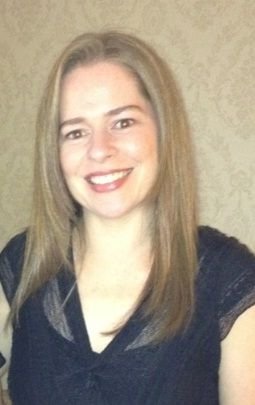
Juliet's latest release Fast Forward recently hit the digital shelves. It's a romantic comedy with a twist:
Aspiring supermodel, Kelli Crawford seems destined to marry her hotshot boyfriend, but on her twenty-fifth birthday she wakes in the future as a fifty-year-old suburban housewife married to the now middle-aged high school nerd.
Trapped in the opposite life of the one she wanted, Kelli is forced to re-evaluate her life and discover what is really important to her. Will she overcome the hilarious and heartbreaking challenges presented to her and get back to the body of her younger self? Or will she be stuck in the nightmare of hot flushes, demanding children, raunchy advances from her husband and hideous support underwear forever?
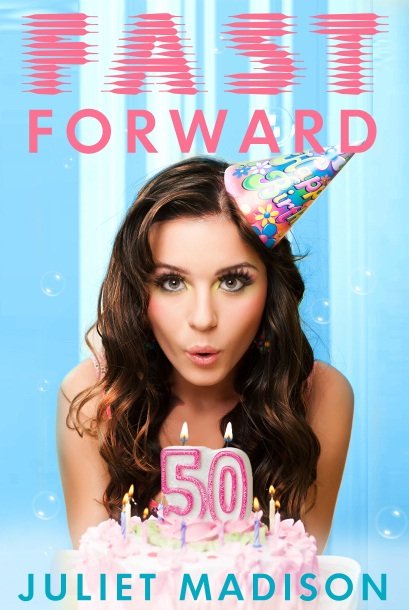
Fast Forward sounds like a lot of fun and I look forward to reading it. You can find out where to buy it below.
Thanks for being my guest on Flying Pony Juliet.
*
- What activities (other than writing) get your creative juices flowing?
I find movement good for creativity, whether it be walking in nature or just around the house. Some of my best ideas come this way. Also taking time out to rest and relax and let the mind wander often results in a surge of creativity (that’s if I don’t drift off to sleep!). I’m also a very visual person and have an art background, so looking at inspiring pictures helps me feel creative (Pinterest is great for this!).
- What sort of writing routine do you have – disciplined or undisciplined, regular or erratic, focused or easily distracted?
It changes regularly. I’ll set a new routine and then I’ll get out of the habit of following it and I’ll try something new. Overall, it depends what I’m working on. If I have to get something done in a fairly short time frame I can be very disciplined. In fact, I think I thrive under a bit of pressure. When I don’t have that deadline or goal, I get distracted easily and end up writing spontaneously, whenever I feel the urge. Most of the time, I try to write every day, or at least five out of seven days. This isn’t all day, I don’t have that luxury as I have to work around other responsibilities, so I try to take every opportunity I can.
- Do you ever suffer from writer’s block and if so what do you do about it?
I’ve been writing for three and a half years and I’ve never suffered from writers block. Quite the opposite... I find my mind gets overloaded with ideas and I have trouble getting them all down fast enough! Occasionally the words come slowly, but I find if I try to imagine the scene in my mind like a movie, I can soon get back into the rhythm. If I can’t imagine it easily, it often means the scene is not worth writing and I need to think up something else.
- Which aspects of the writing life do you most love?
I love the thrill of creating something from nothing. Coming up with a story, characters, a setting, and making it seem real. Story creation and the writing process is my favourite part. I also love interacting with readers and authors, it’s fun and provides a much needed social side to what is usually a solitary type of work.
- Which aspects do you least love (or detest!)?
The fact that I can’t get the story out of my head in one day!
- What books and writers have most influenced your own writing?
All good books inspire me, but when I was starting to seriously consider writing my own book, I was reading Sophie Kinsella and Monica McInerny at the time, so I guess they helped me with the desire to get started. I wanted to create books with both humour like in Sophie’s, and heart like in Monica’s. I now call my work ‘humorous and heartwarming fiction’.
- Can you describe for us your writing process, from getting the original idea to completed manuscript?
My process is being refined with each book, but what I do now is start with the basic premise and title (in most cases, title comes first for me), and I usually write a little blurb so I can sum up what the book is about. I make it clear in my mind how the book is going to end, and then I start planning it and writing it. I often start by writing the first scene without having plotted much, and once that is down and I have a feel for the story, I’ll write an outline, usually in bullet points with a list of main plot events. I don’t plan out the chapters, because I find that when I’m writing I’ll naturally find the best place to end a chapter (always trying to end them on a hook), so I work in scenes instead.Before each writing session, whether I have twenty minutes or two hours, I jot down a brief list of what’s going to happen in the scene I’m up to, sometimes on a post-it-note (using my outline as a guide), and stick it where I can see it while writing. Then it’s just a matter of getting from A to B to C to D and so on, filling in the gaps.Once a chapter is complete, I’ll do a quick read-through and fix up any basic errors or change a few words, and then move onto writing the next bit. I usually send of a few chapters at a time to my critique partner and then make additional changes after that.Once the book is complete, I’ll edit some more until I feel it’s ready!
- Describe your path to publication.
I’ll give you the brief version! ;)I started writing seriously in late 2009, working on a contemporary women’s fiction manuscript which I finished a year later. I then got to work on another manuscript, still women’s fiction but with more of a contemporary romance bent, and after that, I wrote my romantic comedy, Fast Forward.I sent Fast Forward to many agents and a few publishers, and received about twenty rejections, until I submitted it to Harlequin Australia’s new digital imprint, Escape Publishing. Within a few weeks I had an offer of publication, and was thrilled! It was almost exactly three years to the day, from when I started my first book, to when I received my first offer of publication. And now they’ve bought another of my novels; a small town romantic women’s fiction called The January Wish which releases December 2013.You can read the full details of my ‘Call Story’ on my blog: http://julietmadison.wordpress.com/2012/11/30/my-call-story/
- What advice would you give to writers who are working towards publication?
If you love writing and it’s your dream to be a published author, never give up. Keep learning about the writing craft, keep writing stories, polish your manuscripts, and keep a look out for new opportunities. Research various agents and/or publishers and compile a list of those that would suit your book. When you feel your manuscript is ready (and if you’re not sure, ask for some outside feedback), start submitting. Editors and agents are very busy and it can take a while to hear back, so put your best work out there, then while you’re waiting, get to work on something else.Going to writers conferences is also very valuable and there are usually opportunities to pitch directly to editors, so take advantage of this. Twitter also has many opportunities to get your work looked at - pitching competitions, editor/agent chats...etc. Start exploring, follow those in the publishing industry, and keep an eye out!Most of all, believe you can do it. Every bestselling author was once an aspiring writer, just like you.Buy FAST FORWARD via...Escape Publishing, Amazon, Amazon UK, iTunes/iBookstore, Kobo, Google Play, B&N/Nook.Connect with Juliet online:Website, Blog, Facebook, Twitter.
***
Author Interview: Francis Guenette March 28 2013
Today I have great pleasure in welcoming to the blog Francis Guenette.
It’s wonderful to have a Canadian author visiting Flying Pony. And if there are any writers out there reading this who would like to be part of the Writers on Wednesday Interview Series please let me know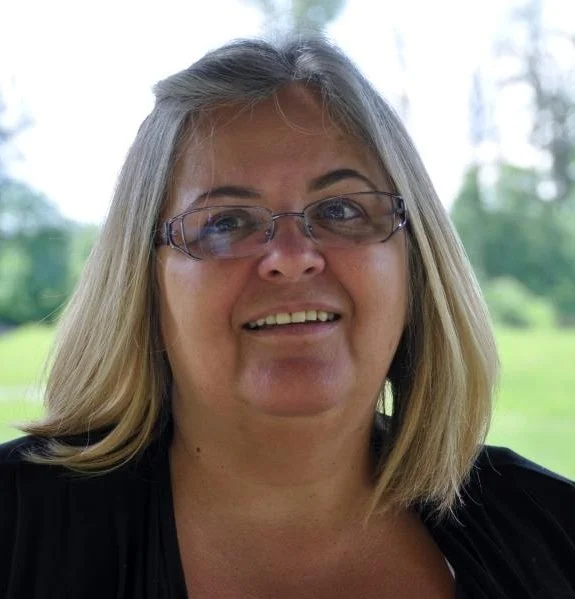
Francis debut novel is Disappearing In Plain Sight.
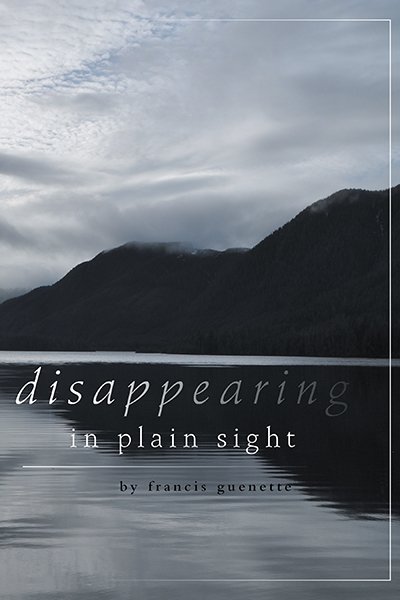
Thank so much for being my guest Francis and for your insightful answers to my questions.
*
1. What activities (other than writing) get your creative juices flowing?Creativity, for me, has a lot to do with carving out a space where silence can prevail. I need alone time and quiet to allow my thoughts to percolate.Walking has always been the time when I mull over ideas. For years I thought of this as nothing more than daydreaming. When I started to write my first novel, the daydreaming became very focused on a group of characters (and I’m still asking myself where they came from) and how they might handle being tossed into a variety of situations.On a more abstract scale, I think my creativity comes from my curiosity. I’m always wondering – what if? This quality has made me a people observer and every observation becomes more grist to the mill.2. What sort of writing routine do you have – disciplined or undisciplined, regular or erratic, focused or easily distracted?If I’m on my own, I can write twelve hours at a stretch. I might spend the entire day in my PJ’s, eating over the keyboard and forgetting to let the elderly dog out until she makes her needs quite vocal. I’m not sure this equals discipline – feels more like an obsession. But it is what it is.If I’m alone and writing, I’m extremely focused and I can resent the above mentioned dog and even the phone ringing. When other people are around it’s harder for me to maintain focus.When I’m actively writing, I’m very regular about writing every day. I do take extended breaks every few months. I leave the solitude of our cabin by the lake and go out into the world.3. Do you ever suffer from writer’s block and if so what do you do about it?I am happy to say that since I started writing fiction, I have seldom had a serious writer’s block. I did have the experience many times with academic writing and it was agonizing. When I get in a tangle with fiction writing, it’s because I’ve strayed off track. I’m zipping along the writing freeway and whiz down an exit ramp I wasn’t planning to take. The writing bogs down. I have to stop and figure out where I’ve ended up in terms of where I thought I wanted to go. This doesn’t always mean retracing my way – sometimes it means rethinking what has come before or what I have envisioned for later.4. Which aspects of the writing life do you most love?Hands down, I love the experience of being caught up completely in the lives’ of my characters. Having them become so real to me that I can’t let them go – I actually dream about them. They become part of my life. When this happens, the writing flows – it really is as if I can’t take down what the characters are doing and saying fast enough. I begin to hear their voices. I know what they would say in a given situation and how they would say it. This was particularly important in Disappearing in Plain Sight, because I wanted to present the authentic voice of both young people and the adults who surrounded them.5. Which aspects do least love (or detest!)?I have just embarked on the promotion and marketing of my book and even though it’s an exciting process, chalk full of experiences exactly like this guest blog (which, by the way, I love), it is a part of the overall process of having written a book that is not my favourite.I am an introvert who spends most of her time in a wilderness setting, seeing few if any people other than my husband. I have never been a fan of blowing my own horn and this has held me back more than once over the course of my work life.I imagine that my promotion and marketing will end up being what most of my life has been – I’ll read and review your book (if, in good conscience, I can) and maybe you will return the favour. I’ll check out your blog and comment and maybe you’ll do the same for me. I’ve always believed that collaboration based on mutual respect is the way to prosper. And I’ll probably enlist the help of a flaming extrovert friend to help me navigate the public aspects of being published.6. What books and writers have most influenced your own writing?I’ve been influenced by Canadian authors whose novels are firmly rooted in a specific place. Reading these novels gives me a felt sense of what it would be like to live in that area of my country, which includes understanding how the people who do live there are formed by their environment. Some of my favourite Canadian authors who write in this way are: Alistair MacLeod (Cape Breton), Eden Robinson (Pacific Coast), Timothy Taylor (city of Vancouver) Jane Urquhart (rural Ontario), Elizabeth Hay (city of Ottawa, the Canadian North and the prairies), and Wayne Johnson (Newfoundland).I think it has been this influence that made me strive to give the readers of my novel an experience of what rural life, on the Northern end of Vancouver Island, on the Pacific coast of British Columbia, might be like and how it could shape the people who live here.7. Can you describe for us your writing process, from getting the original idea to completed manuscript?With Disappearing in Plain Sight – the first draft came out in a rush – over the space of one summer. I felt in the grip of a writing virus and I couldn’t stop until it had run its course. The first draft was a bare bones structure of what the book turned out to be. I shelved the whole project for a while – too long, but life does intercede. When I came back to it, I found parts that didn’t make as much sense as they could have and themes that needed to be expanded. The second draft added at least one hundred pages. Next was the process of feedback from beta readers and a number of subsequent rewrites followed. At the moment I thought the novel was finished, I was fortunate enough to be told I needed the help of an editor – my story was good, but the book was missing the mark in a couple of key areas. The person I worked with turned out to be a phenomenal copy editor as well as proof reader.(Check out the difference between these two types of editing on http://changeitupediting.com/2013/03/14/copyediting-or-proofreading-5-steps-to-determine-what-you-need/ Change it Up Editing – a great site.)The manuscript went through a major revamp – I had crammed the first few chapters with far too much backstory. Those rewrites were the hardest – it felt as though I had torn the book apart with no way of getting it back together. I also needed to work on point of view issues. For every scene, I had to ask myself, who has the most at stake here? Whose point of view should dominate? Seemingly endless rounds of chapter by chapter editing followed. Then, of course, there were the final proof readings – each time I said final, it turned out the manuscript required just one more.My current novel is coming together in a somewhat different manner. (The Light Never Lies – a sequel to Disappearing in Plain Sight.) I’ve been more organized in the writing – working from a detailed outline with a fair idea of beginning, middle and end. I’m also trying to put into practice what I learned through the endless editing rounds of the last book. I don’t anticipate having to add material this time around; no doubt I’ll find myself in a slashing process. I’ve already eliminated two characters – gone in a few moments of deleting. (Well, they aren’t really gone – maybe they’ll resurface in a third book.)8. Describe your path to publication.Early on, I decided that I would pursue self-publishing without trying to get an agent or submit my manuscript to traditional publishers. My decision was based on a couple of factors. I’ve published academically and a twenty page article accepted to a peer reviewed journal can take upwards of a year from when it is submitted to when it is actually in print. The thought of going through a similar process with an entire book seemed overwhelming. I also considered the gatekeeping function of many traditional publishing houses and this struck me as a major stumbling block for a new author. Then there is the reality of my age – I didn’t want to wait around for something to happen. I researched what indie authors were saying about their experiences and decided it was the right path for me.For my first novel, I wanted someone to hold my hand through the self-publishing process. I chose Friesen Press (http://friesenpress.com/ ). It was pricey and it probably isn’t the route I will go the next time around, but for a novice it has worked out well. I’ve learned so much that I will put to good use when I am ready to publish my next novel.And now for a blatant plug of my own work: Disappearing in Plain Sight is available through Amazon – just follow this link : http://www.amazon.com/disappearing-in-plain-sight-ebook/dp/B00BMHF2IA/ref=tmm_kin_title_0?ie=UTF8&qid=1363299763&sr=1-1If you use an e-reader other than the Kindle please follow links from the Friesen Press Bookstore page – http://www.friesenpress.com/bookstore/title/119734000008622178/francis-l.-guenette-disappearing-in-plain-sight .You can read every single thing you ever wanted to know about me on my blog – http://disappearinginplainsight.com10. What advice would you give to writers who are working towards publication?Don’t give up. This novel took close to four years of my life to bring from initial ideas to publication. I went through periods of despair along the way – the journey is long and sometimes difficult. As I sit now with a published book for sale on Amazon, every bit of the work seems more than worthwhile. As my son told me the other day – many people say they have a book in them, but how many of them actually do the work to make it happen? I say, believe in yourself and be one of the few who do.In order to make that happen, give yourself permission to take what you’re doing seriously. When I worked as a grad student supervisor in a very busy research office, I used to tell the students who were struggling with doubts about their ideas for research – the only committee you need to convince is the one in your own head. I think this speaks to an important truth – we worry a lot about how others will view our ideas and work. When it comes to being a writer, the only person I really had to convince was myself.
***
Author Interview March 20th Charlotte Nash
Today I welcome Charlotte Nash to the blog.
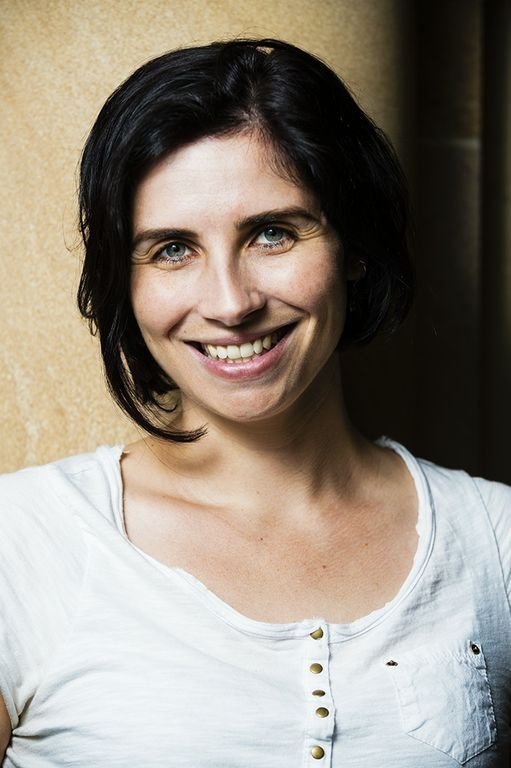
Charlotte's debut novel Ryder's Ridge is just about to be released.
Set in the Australian outback Ryder's Ridge is the story of Dr Daniella Bell who escapes to the small north-west Queensland cattle town of Ryder's Ridge after a tragic incident in the city hospital where she worked. Caring and dedicated, Daniella quickly wins the trust of her patients, and the attention of handsome station heir, Mark Walker. As their relationship grows, Daniella begins to think she could make a new life for herself in Ryders. But country towns have their own problems.Under the big outback sky, Daniella discovers that the local rumour mill can threaten both friendships and careers, and that like the city, Ryder's Ridge also has secrets. Mark, too, is a complication - as good as they are together, how can a doctor maintain a practice and live on a cattle station.Just as Daniella considers running away for a second time, a terrible accident forces her to face the secret she left behind in Brisbane, and risk losing Mark forever.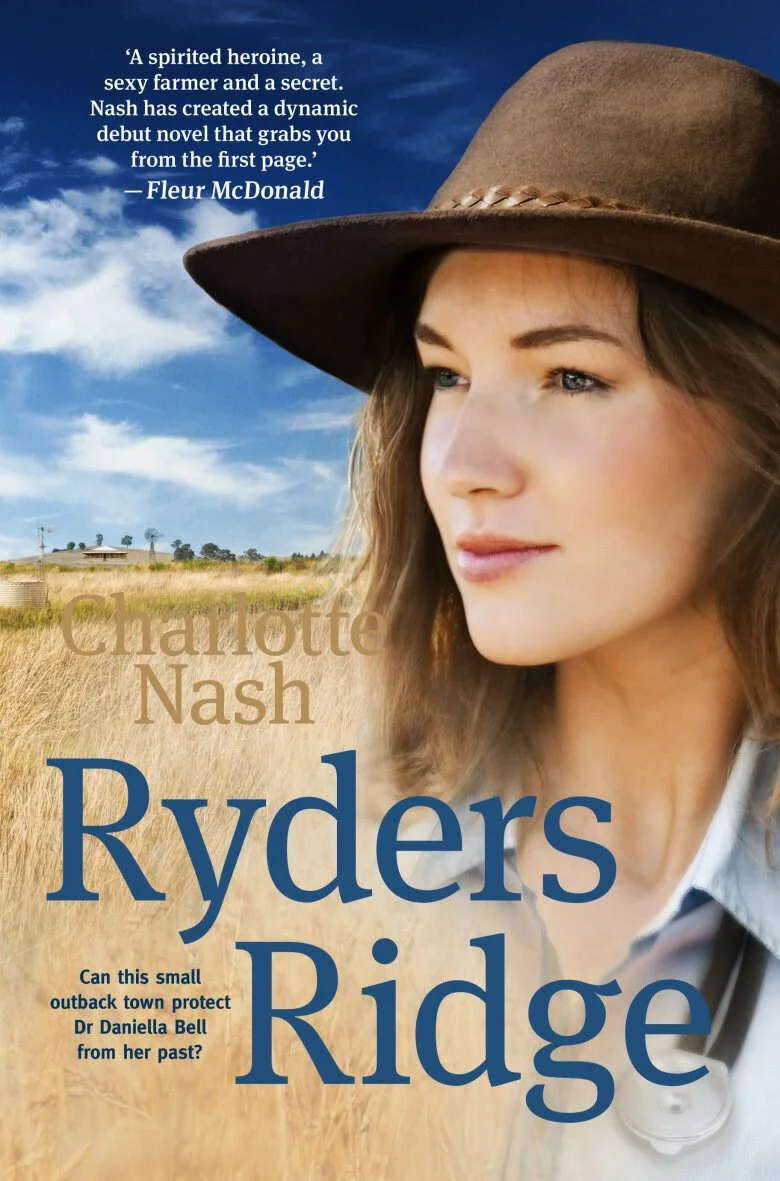
Thanks for visiting Charlotte.
*
1.What activities (other than writing) get your creative juices flowing?Running. I used to do a lot of my creative thinking on the treadmill. Other than that, it's group-effect situations – talking ideas with other enthusiasts.
- What sort of writing routine do you have – disciplined or undisciplined, regular or erratic, focused or easily distracted?
I'm disciplined, but I don't believe in the practicality of writing every day. Sometimes it just can't happen and there's no point being anxious about breaking some idiom. I tend to do projects in planned chunks with clear, self-imposed deadlines. I almost always meet them (especially the important ones).In hand with that, I'm usually focused. My existence has been highly itinerant for the last two years, so I've developed a work-anywhere system (in cafes, in airports, on planes, in libraries, in friends' houses) which gets around distraction. I've actually come to enjoy noise and activity around me to work in. For example, I did the entire structural edit of Ryders Ridge while on a trip home to Brisbane, in libraries and on a friend's dining table. The copy edit was done on another trip, over Christmas, at my mum's table.
- Do you ever suffer from writer’s block and if so what do you do about it?
I don't believe in writer's block. (I picked up this attitude from both Kim Wilkins and Stephen King very early on, and I live by it.) Like in any profession, there are days when you don't feel like it or when you're just not on the game, but words only get written when you show up and start putting them down. I simply make myself, sometimes, using self-bribing techniques if necessary (like this). If I truly don't know what to write, it's a failure of planning, not of the muse. So then, I go back to the plan. And even bad words are clay on the wheel, ready to be shaped.And just the same as in any profession, you can get to points when you're burned out or fed-up. But that's not block ... it's time for a holiday. J
- Which aspects of the writing life do you most love?
I love creating stories and working on them until they sing (to me, at least). Editing has grown on me – I used to hate it, but now its essential nature is so plain to me and I love how it can reveal a story like polishing a gem. I also love teaching – my classes at UQ give me immense enjoyment.
- Which aspects do least love (or detest!)?
I do miss hands-on, technical work. That's no fault of writing in itself, but writing is an oft-solitary, theoretical pursuit, and there's a part of me that hankers for dirty hands and working with others. I think that's why I write a lot about things I've done... living vicariously through memory.
- What books and writers have most influenced your own writing?
Jilly Cooper (especially Riders), Neal Stephenson, Michael Crichton, J R Ward ... a strange list, but I admire each of them in their own way and have learned a lot about the craft from their work.
- Can you describe for us your writing process, from getting the original idea to completed manuscript?
From an idea, I start working with structure, usually on index cards. I brainstorm the kinds of scenes I'll need, and start putting them in approximate places in the story. I'll do preliminary research, too. When I have a clearer sense of the 'arc', and who the characters are, and major milestones in the story (including a good collection of scenes that will occur through the middle and end of the story), I focus on the beginning and map out the chapters in scenes. When I have a few chapters planned, I start writing. I then go backward and forward between the plan and writing the scenes, doing more research on the fly. I plan in detail about six scenes in advance, but the fine detail comes out during the writing as ideas, images and links occur as the text goes down. That's it – just repeat until 'the end'. I usually set a completion deadline around other responsibilities.Once the first draft is done, I rest it. Then it's time to have someone else read, offer feedback, and then I begin editing.
- Describe your path to publication.
I'd been writing seriously since 2007, both short stories and novel manuscripts. In 2009, I applied for the QWC/Hachette Manuscript Development Program with a science fiction manuscript. It was long-listed, and the next year, after heavy revisions, I applied again and was selected. At the program, I met Bernadette Foley from Hachette, and though the sci-fi manuscript (and later, another historical fantasy manuscript) ultimately weren't accepted, I kept in touch. Then when I had an early draft of Ryders Ridge (my fourth full-length novel manuscript), I queried and they were interested. The manuscript wasn't ready, but Bernadette gave me some guidance that allowed me to submit again, again after heavy revisions. It was at this point an offer was made.
- What advice would you give to writers who are working towards publication?
Like any apprenticeship, persistence and learning are key. Talent is cheap and counts for little. Seek out critique; there's no other way to learn how to produce better work. It will hurt at first, but you'll learn to love it when you see your work improve. Find mentors where you can. Listen to what they say. Give back to other writers less experienced than you. And above all, stay sane.
***
March 14th .Author Interview with Dawn Barker, author of Fractured:
Today’s author interview is with Dr Dawn Barker. Dawn’s debut novel
Fractured is in stores now. I started reading it last night and couldn’t put it down.
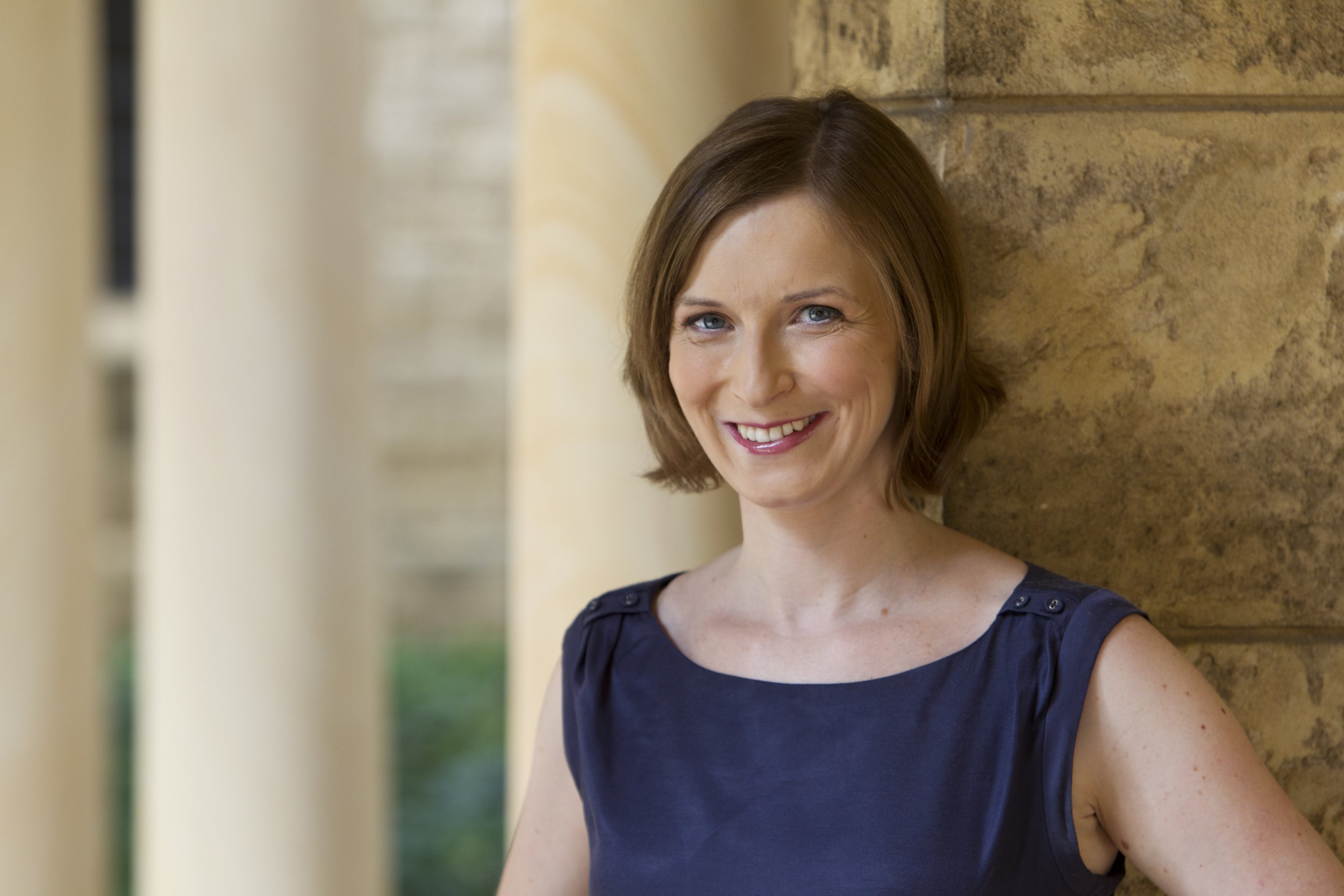 Fractured
Fractured is the compelling and emotional story of Tony, Anna and their newborn so, Jack. Beautifully written, it’s a story about how even the most perfect of families can fall apart.
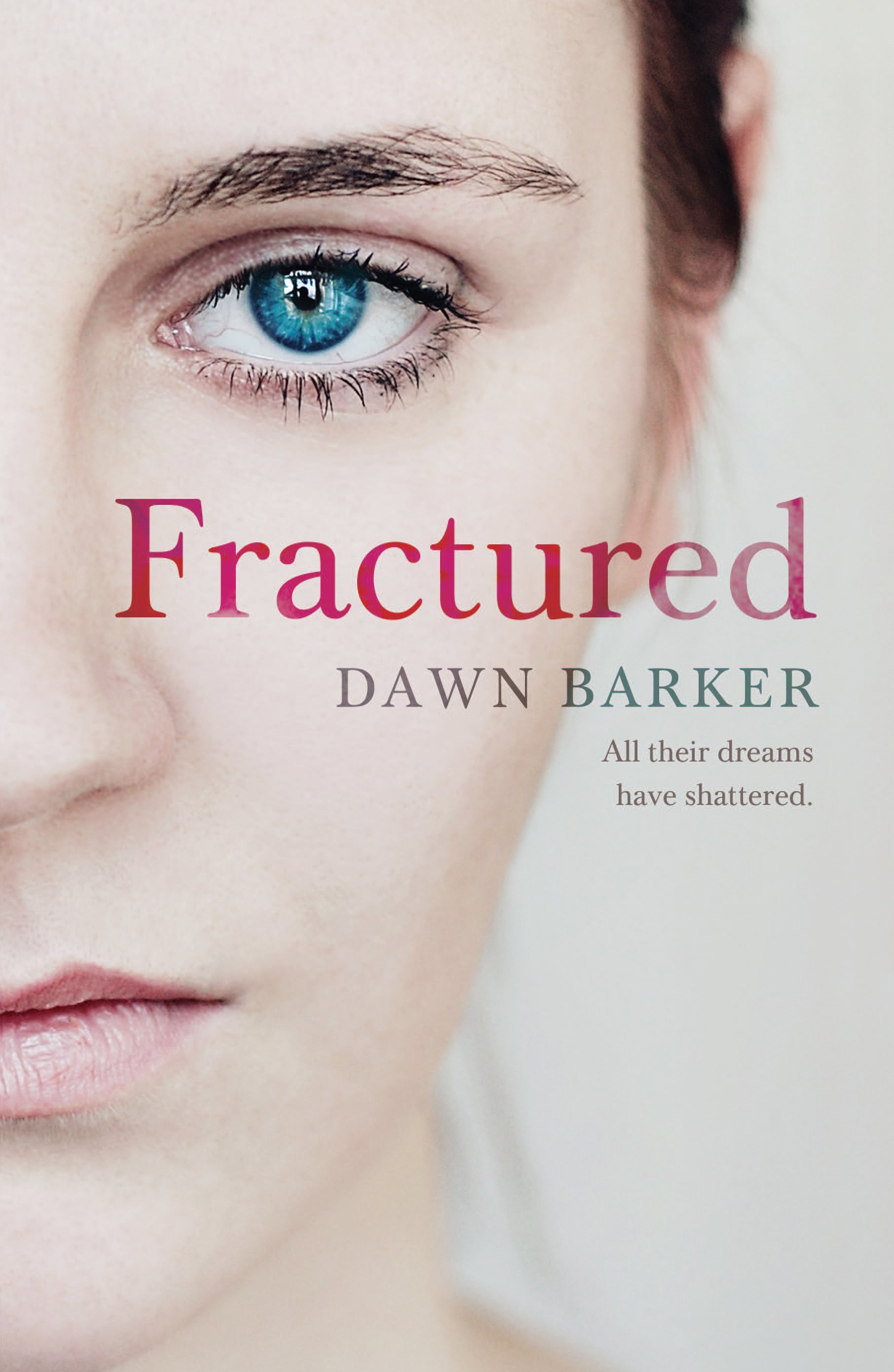
Thanks for visiting Flying Pony Dawn.
*
1. What activities (other than writing) get your creative juices flowing?I have three young children so don’t have much time for other activities! In saying that, I do like exercise, and if I find myself stuck in my writing, I like to go for a run. Often the answers to my creative problems come to me when the endorphins start flowing!
- What sort of writing routine do you have – disciplined or undisciplined, regular or erratic, focused or easily distracted?
I have to be quite disciplined because of the children, so I write a minimum of 500 words a day, Monday to Friday. As the momentum builds, I increase my target to 750 words. The only time I have to work is when the children nap after lunch, so as soon as they’re in bed, I make a coffee and sit at my writing desk for an hour or two. If I’m working to a deadline, I get up at 4.30 am to write before my ‘job’ as a mum starts.
- Do you ever suffer from writer’s block and if so what do you do about it?
Oh yes! But I still make myself write something: 500 words isn’t much and anything is better than nothing. I don’t tend to write a book in order – I write scenes or different viewpoints and then move them around later and fill in the blanks, so I can always just throw a character into a situation and see what happens! That scene may not make the final cut but it might help me to see the character in a different way, or give me one sentence I can use.
- Which aspects of the writing life do you most love?
I love those moments when my hands seem to fly across the keyboard and I can barely keep up with my thoughts. It feels fantastic when I re-read something and just know that it works. Those are the scenes that survive from the first draft to the last with little editing.
- Which aspects do least love (or detest!)?
I must say I’ve been thrilled with almost every stage of my publication journey! But the most stressful for me was the structural edit – I could no longer avoid the problems that I knew were there from the beginning, but had hoped would go unnoticed! I remember long, frustrating, nights with index cards, multi-coloured highlighters and pens, blu-tac and a big wall, as I tried to shape the scenes into some kind of cohesive narrative.
- What books and writers have most influenced your own writing?
So many! Like most writers, I read a lot. My favourite writers are people like Margaret Atwood, JM Coetzee, Kate Grenville, Jeffrey Eugenides, Tim Winton, Chris Cleave, David Vann… Too many!In terms of influencing the writing of Fractured, I loved Lionel Shriver’s We Need To Talk About Kevin and Kate Grenville’s Dark Places for showing me that fiction can tackle difficult issues.
- Can you describe for us your writing process, from getting the original idea to completed manuscript?
I’m lucky in that I have no shortage of ideas; narrowing them down is the problem! I like to write about real life issues – all I have to do is open a newspaper.For Fractured, I knew what the central event had to be, and what would lead up to it, but had no idea what would happen to the family afterwards. I wrote it in temporal order from the Anna’s point of view, then Tony’s, and only later added in other viewpoint characters. Then I wrote index cards for each scene, spread them out on my office floor and tried to find a way of telling the story that would work! Once I had a first draft, I read it through and made pages of notes of things to add and delete, then repeated this process again and again until I felt able to start tidying it up at the level of sentences and words.
- Describe your path to publication.
I’ve been really lucky and have had a bit of a dream run to publication! In 2010, the manuscript for Fractured was chosen for the Hachette/Queensland Writers Centre manuscript development programme. As part of the process, I attended a retreat in Brisbane along with six other writers where we learned about the publishing industry and received fabulous feedback on our work. Hachette asked to see the manuscript once I’d make some changes, and then offered to publish it!
- What advice would you give to writers who are working towards publication?
My advice is nothing new, but you must make your manuscript as good as you can before submitting it, as you only get one chance. Make sure you’ve let it ‘rest’ between readings, and make those first 50 pages amazing so the agent or publisher has no excuse to stop reading. Obviously, I’m now a big fan of manuscript development programmes, which lots of publishers run.Connect with Dawn:Webpage: www.authordawnbarker.comFacebook: http://www.facebook.com/#!/pages/Dawn-Barker/245938708815749Twitter: @drdawnbarkerRead a review of Fractured here : http://thehoopla.com.au/fiction-fever/
Posted in Inspiration, Interviews With Writers, The Writing World, Writing Tips, Advice and Information | Tagged Australian Fiction, creativity, Dawn Barker, Fractured, Hachette, inspiration, women writers, writing, writing a novel, writing fiction, writing process | Leave a Comment »
***
Today on Flying Pony we have a visit from Rural Fiction Writer Fiona Palmer.
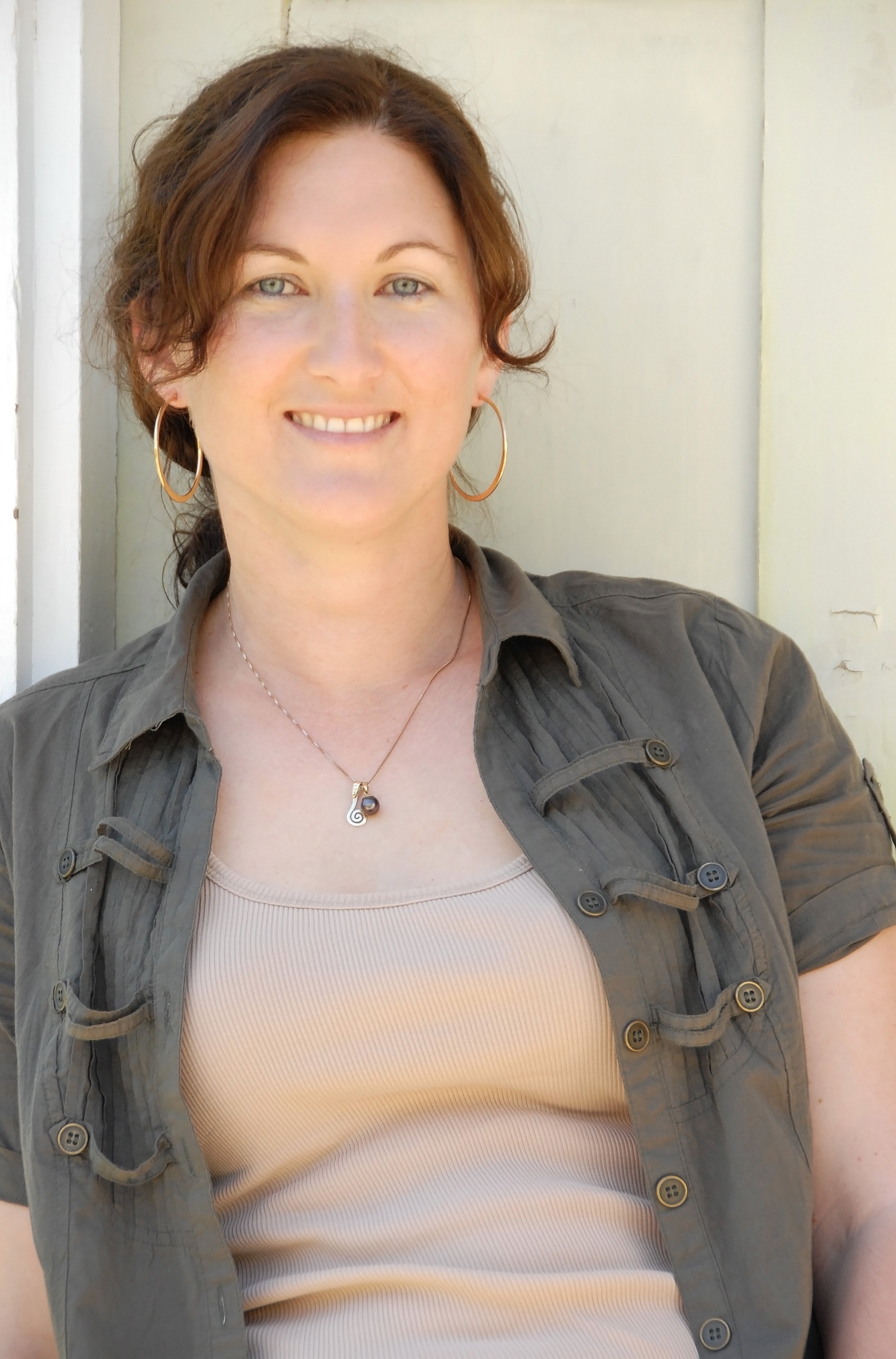 Fiona’s latest release, The Sunburnt Country hit the shelves his week.Here’s a lttle taste of what you can look forward to reading:Jonelle Baxter is a young woman in a man’s world – a tough, hardworking motor mechanic from an idyllic country family. But lately things in her perfect life have been changing, and her workshop isn’t the only local business that’s struggling. Daniel Tyler is new in town, posted from the city to manage the community bank. As he tries to rein in the spiralling debts of Bundara, he uncovers all sorts of personal dramas and challenges. The last thing Jonny and Dan need is an unwanted attraction to each other. It’s going to take more than a good drop of rain to break the drought and to keep this small but very colourful community thriving. From the bestselling author of The Road Home comes a moving and heartwarming story about love, change and courage – and the beauty that’s found in the bush, even in the harshest of times.
Fiona’s latest release, The Sunburnt Country hit the shelves his week.Here’s a lttle taste of what you can look forward to reading:Jonelle Baxter is a young woman in a man’s world – a tough, hardworking motor mechanic from an idyllic country family. But lately things in her perfect life have been changing, and her workshop isn’t the only local business that’s struggling. Daniel Tyler is new in town, posted from the city to manage the community bank. As he tries to rein in the spiralling debts of Bundara, he uncovers all sorts of personal dramas and challenges. The last thing Jonny and Dan need is an unwanted attraction to each other. It’s going to take more than a good drop of rain to break the drought and to keep this small but very colourful community thriving. From the bestselling author of The Road Home comes a moving and heartwarming story about love, change and courage – and the beauty that’s found in the bush, even in the harshest of times.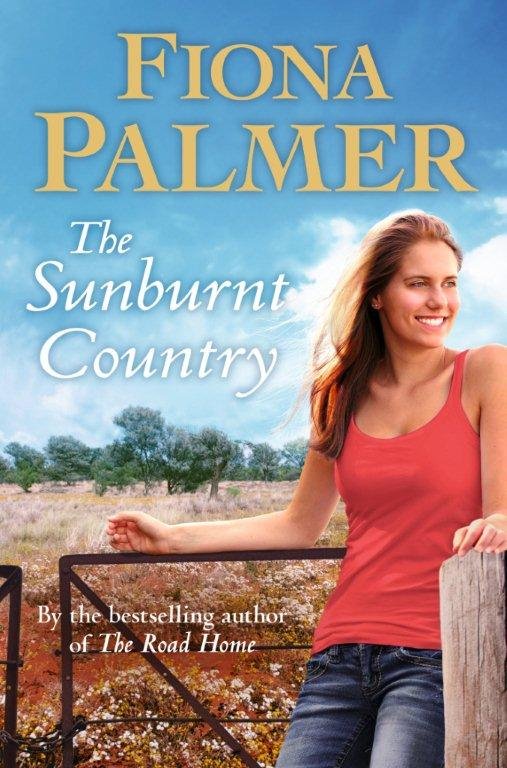
Watch the book trailer here: http://www.youtube.com/watch?v=IkWOJZbxXFU
Thanks for joining us Fiona and sharing your creative process.
*
- What activities (other than writing) get your creative juices flowing?
Okay, don’t laugh but housework! It’s usually those daily grind jobs where my mind wanders and before I’ve finished the vacuum cleaning I have the next chapter plotted out. Also I get up at five to go walking with my mum. Sometimes just being out in the crisp morning, watching the sun come up and the kangaroo’s in the paddock can be inspiring. Being out and about in my rural community and appreciating the life I have is sometimes all I need to get my thoughts going.
- What sort of writing routine do you have – disciplined or undisciplined, regular or erratic, focused or easily distracted?
I’d like to be disciplined but I fly by the seat of my pants most times. Between kids and housework, I try to write when I can. I’m more in a routine when the kids go back to school and it’s much easier without having to stop writing because they are hungry or the buggy has run out of fuel.
- Do you ever suffer from writer’s block and if so what do you do about it?
Sort of. I like to plan out the story in my head while doing those ‘daily grind’ jobs I was talking about. So when I do sit down to write I usually know where I am heading. I hate sitting at the computer with no idea where to go, so I’m thinking of my story as much as I can while I’m away from it. If I am really stuck I find talking to my mum and bouncing ideas off her really helps. Sometimes just having someone to talk through the story with works wonders. Half the time my mum doesn’t even get a word in but she has helped just by being there and listening. (sometimes I don’t even think she is listening but just nodding in all the right places!)
- Which aspects of the writing life do you most love?
The part where I am living it, where I feel like I’m involved in the town or with the characters. I want to see them get their happy ending, I feel their heartaches and I love creating all of that.
- Which aspects do least love (or detest!)?
The part where I have to sit at my computer. I love being outside so sitting inside glued to a computer all day is not how I pictured my life. I was adamant growing up that I’d have an outside job. Thank god for early morning walks!
- What books and writers have most influenced your own writing?
I think originally it started from movies. Like Paperback hero with Hugh Jackman. I was rewriting endings to movies I didn’t like and then one day decided to write my own. I wasn’t a big reader back then, besides reading some of my mums collection of Danielle Steel’s books. Rachael Treasure’s Jillaroo was a turning point for me. It gave me the courage to send off my work to Penguin and I haven’t looked back since.
- Can you describe for us your writing process, from getting the original idea to completed manuscript?
I will plan it all in my head first. I’ll start with an idea and let it fester and grow. I keep trying to sort it into a rough synopsis and when I feel I have enough details I will type out a 3 to 4 page outline. Then I start from chapter one and work my way to the end. Sometimes I do feel like my head will explode while trying to keep all my thoughts together!
- Please describe your path to publication.
In 2005 I started writing The Family Farm. I was working full time running the local shop with a newborn and toddler. When I had the first draft complete I entered and won an Australian Society of Authors mentorship, which helped heaps as I had no idea on how a manuscript was supposed to be set out. Once I reached the desired word length I sent the first three chapters off to Penguin and it went from the slush pile into the hands of Ali, who was Rachael Treasure’s publisher at the time. I was offered a contract not long after that, which was 2008.
- What advice would you give to writers who are working towards publication?
To write what you are passionate about. You want your readers to feel how much you care about your characters and what you are writing. So you will need to put your heart in your work. Also write what you know and to keep writing. You can’t edit a blank page. 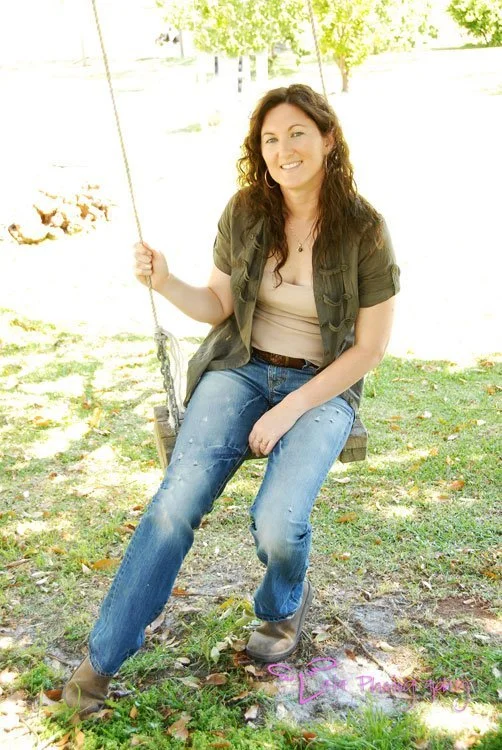 Connect with Fiona on her blog: http://www.fionapalmer.com/Read a review of The Sunburnt Country here: http://1girl2manybooks.wordpress.com/2013/02/27/the-sunburnt-country-fiona-palmer/
Connect with Fiona on her blog: http://www.fionapalmer.com/Read a review of The Sunburnt Country here: http://1girl2manybooks.wordpress.com/2013/02/27/the-sunburnt-country-fiona-palmer/
Posted in Creativity, Inspiration, Interviews With Writers, Writing Tips, Advice and Information | Tagged creativity, Fiona Palmer, inspiration, new releases, Penguin, Rural Fiction, The Sunbrunt Country, writing, writing a book, writing a novel, writing tips | Leave a Comment »
Today I welcome Jenn McLeod to Flying Pony.
 Jenn’s debut novel A House For All Seasons is out March 1 and has the most gorgeous cover. Here’s a little taste of what you can look forward to reading:
Jenn’s debut novel A House For All Seasons is out March 1 and has the most gorgeous cover. Here’s a little taste of what you can look forward to reading:
Bequeathed a century-old house, four estranged friends return to their hometown, Calingarry Crossing, where each must stay for a season at the Dandelion House to fulfil the wishes of their benefactor, Gypsy.
But coming home to the country stirs shameful memories of the past, including the tragic end-of-school muck up day accident twenty years earlier.
Sara, a breast cancer survivor afraid to fall in love;
Poppy, a tough, ambitions journo still craving her father’s approval;
Amber, a spoilt socialite addicted to painkillers and cosmetic procedures;
Caitlin, a doctor frustrated by a controlling family and her flat-lining life.
At the Dandelion House, the women will discover something about themselves and a secret that ties all four to each other and to the house – forever.

Thanks for visiting Jenn. A House For All Seasons sounds like my kind of book!And don’t forget anyone who subscribes to my blog (Flying Pony) or follows me on twitter (@justwritetoday) over the next two weeks goes in the draw to win a signed copy of Blackwattle Lake. Just remember to leave a comment or send me a message with the hashtag #Blackwattle Lake so I know you’ve signed up.Here’s Jenn’s interview – enjoy!
*
1.What activities (other than writing) get your creative juices flowing?Obviously reading will spark ideas. But for every book that makes me say, “I can write something better than this.” I will read a book and say, “I wish I could write like that.”I also love watching/deconstructing) DVDs, especially on a cold wintry day, with the dogs snuggled on my lap and a steaming cup of homemade soup warming my hands. Bliss. I find movies will help me get myself out of plot hole. Alexandra Sokoloff talks about breaking movies down into scenes to get a template for a story. I admit to deconstructing a novel for my 2nd book (out this time next year, called The Simmering Season.) Which book did I deconstruct? Hmm, maybe I’ll tell next year.2.What sort of writing routine do you have – disciplined or undisciplined, regular or erratic, focused or easily distracted?I’m disciplined in that I sit at the computer! Is that what you mean?These days, particularly now with House for all Seasons being launched, I am finding a lot of my creative energy goes into Facebooking, Tweeting and blogging (loosely defined as promotion!)But social media has become a necessary evil – a good evil, mostly – and should form part of a writer’s journey. It’s about connecting with readers. They expect it these days. So when I was asked to take part in a twelve month online blogging program (with some other amazing authors, I might add) I said ‘yes please’! That program is called Novel Writing in Australia – see link below.3. Do you ever suffer from writer’s block and if so what do you do about it?I walk. My writing buddy and I (yes, I am fortunate to have someone cheer me on from the sidelines, like a sideline Mum who yells when you are dropping the ball, then cajoles when you scrape your knee.) We walk every day and talk writing. When I’ve dug a plot hole deeper than the Grand Canyon (and House for all Seasons had a few) she gets me out – and usually with something so darn simple…!!Sometimes a writer gets too close. We need someone to pull us back so we can see the broader picture. The answer is usually always there.4. Which aspects of the writing life do you most love?
- The endless possibilities.
- That a writer can go places and experience things in their heads.
- Fictional friends who make you laugh and cheer (but who occasionally let you get in touch with your other emotions too).
5. Which aspects do least love (or detest!)?My pathetic hunt and peck typing. My fingers fail to keep up with my brain, which can mean losing that spurt of creativity before the words make it to the page. It’s like drinking from a cup with a leak. Some of the words will escape and drip down your jumper instead of landing on the page!6. What books and writers have most influenced your own writing?These days I’m drawn to authors for their specific styles: Lisa Heidke’s witty dialogue ( www.lisaheidke.com); Posie Graeme-Evans’ stunning scene setting (http://posiegraemeevans.net/), Sara Foster’s wicked weaving of plots and characters (http://www.sarafoster.com.au/); Monica McInerney’s eclectic cast and clever characterisation (http://www.monicamcinerney.com/); the mischievous Marian Keyes for the giggle factor (http://www.mariankeyes.com/Home), and Jodi Picoult’s tackling of real-life issues (http://www.jodipicoult.com.au/).Authors who influence my writing are generally the ones whose books sustain my interest to the end – but mostly the ones whose books don’t (because they are the books that teach me what not to do.)7. Can you describe for us your writing process, from getting the original idea to completed manuscript?My first two books – House for all Seasons and The Simmering Season – both started as NaNoWriMo projects (National Novel Writing Month). That means I did 50,000 words in 30 straight days, and 50k is the skeleton of a story that sits around 140k at the end. Having the bare bones in place (ie the hip bones connected to the thigh bones etc) I link them with good meaty muscle tissue, whack in a few vital organ, flesh out the characters (I call this layering/character depth), dress it up so it’s prose perfect. Then I polish it some more, sub it, edit it, proof it, hold it in my hands, promo it and get onto the next book.I will usually start a novel with a title and a tagline and a secret. I do love a secret and as my tagline suggests… “Small towns can keep big secrets.”8. Please describe your path to publication.My path started like most people start out: I dared to dream. Then came finding the discipline, making the time, learning the business and securing the right support (trying various options).
- I found an online support group that suited my needs and listened, practiced, wrote and ripened.
- I wrote and entered contests.
- I attended conferences and networked online.
- I built up a support group online and I found the courage to start submitting.
- I submitted earlier manuscripts dozens of times, learning something with each rejection – if not about my writing, then about myself and my ability grow and care less about the little stuff – and to keep trying.
- I set a do or die deadline – my 50th birthday.
- I signed with Curtis Brown Literary Agency the day before I turned 50! Phew!
- Two years later House for all Seasons hit the bookshops.
9. What advice would you give to writers who are working towards publication?Start now. It’s never too early, nor too late. Join a writing group. Attend a conference. Believe. Read widely. And if you’re going to tell anyone you’re writing (and show them your work) toughen up to criticism and feedback. Oh, and learn patience. The publishing business is a long process with lots of blank spaces and scary silences.And follow my blog posts! [http://writingnovelsinaustralia.com/2013/01/10/my-journey-of-becoming-a-published-novelist-by-jenn-j-mcleod/]If my posts don’t inspire, then one of the other eleven authors each month will, including: Helene Young www.heleneyoung.com, Phillipa Fioretti http://phillipafioretti.com.au/, Alison Booth www.alisonbooth.net, Belinda Dorio http://belindadorio.com.au/, Greg Baron http://gregbarron.com/Connect with Jenn:Website: www. jennjmcleod.comFacebook: https://www.facebook.com/JennJMcLeod.BooksTwitter: @jennjmcleodMy Novel Writing in Australia blog post #1 http://writingnovelsinaustralia.com/2013/01/10/my-journey-of-becoming-a-published-novelist-by-jenn-j-mcleod/House for all Seasons (Simon and Schuster, Australia) Available wherever books are sold (incl Big W, Kmart and Target). Also available on e-book (iBooks, Amazon www.amazon.com, and Kobo http://www.kobobooks.com/)Buy link:http://www.dymocks.com.au/ProductDetails/ProductDetail.aspx?R=9781922052049





















 On the music front I'm loving Ed Sheeran's new album, especially the song Thinking Out Loud. The line kiss me under the light of a thousand stars makes me swoon. Despite my protests I'm a Romantic after all. Here's the clip: https://www.youtube.com/watch?v=0bLQ6U-1nRc I've been listening to Sara Bareilles for a while now and can't believe I missed her when she visited Sydney earlier this week. The lyrics to Brave are so inspiring, and capture the sort of strength I try to create in my female protagonists. https://www.youtube.com/watch?v=QUQsqBqxoR4 With a few days up my sleeve before the revision starts I'm off to read, listen and relax. Hope you all get to do some of the same this weekend.
On the music front I'm loving Ed Sheeran's new album, especially the song Thinking Out Loud. The line kiss me under the light of a thousand stars makes me swoon. Despite my protests I'm a Romantic after all. Here's the clip: https://www.youtube.com/watch?v=0bLQ6U-1nRc I've been listening to Sara Bareilles for a while now and can't believe I missed her when she visited Sydney earlier this week. The lyrics to Brave are so inspiring, and capture the sort of strength I try to create in my female protagonists. https://www.youtube.com/watch?v=QUQsqBqxoR4 With a few days up my sleeve before the revision starts I'm off to read, listen and relax. Hope you all get to do some of the same this weekend.



















 5. What book has made you laugh out loud?Spanish Steps: Travels With My Donkey by Tim Moore. I laughed myself silly over this book, in public, to the point of tears. It was wonderful.Tim Moore is a travel writer and this book chronicles his journey along the pilgrimage route to Santiago de Compostela with his donkey Shinto.Moore’s French Revolutions: Cycling the Tour de France was hugely entertaining too. A great travel writer. 6. What book, or scene from a book, has made you cry?There is a scene in Code Name Verity, Elizabeth Wein’s World War II book of friendship and incredible bravery, that had me bawling like a baby. I can’t tell you anything about it because it would give away the plot and I wouldn’t want to spoil this brilliant book for anyone.Go read it. It’s heartbreaking and wonderful at the same time.
5. What book has made you laugh out loud?Spanish Steps: Travels With My Donkey by Tim Moore. I laughed myself silly over this book, in public, to the point of tears. It was wonderful.Tim Moore is a travel writer and this book chronicles his journey along the pilgrimage route to Santiago de Compostela with his donkey Shinto.Moore’s French Revolutions: Cycling the Tour de France was hugely entertaining too. A great travel writer. 6. What book, or scene from a book, has made you cry?There is a scene in Code Name Verity, Elizabeth Wein’s World War II book of friendship and incredible bravery, that had me bawling like a baby. I can’t tell you anything about it because it would give away the plot and I wouldn’t want to spoil this brilliant book for anyone.Go read it. It’s heartbreaking and wonderful at the same time. 
 10. What are the top three books in your TBR pile?City of Lost Dreams by Magnus FlyteKing Solomon’s Mines by H. Rider HaggardThe Perfect Wife by Katherine ScholesBut those are likely to change depending on my mood!
10. What are the top three books in your TBR pile?City of Lost Dreams by Magnus FlyteKing Solomon’s Mines by H. Rider HaggardThe Perfect Wife by Katherine ScholesBut those are likely to change depending on my mood!




































































